PLAY AFFORDANCES
Bringing play into our everyday
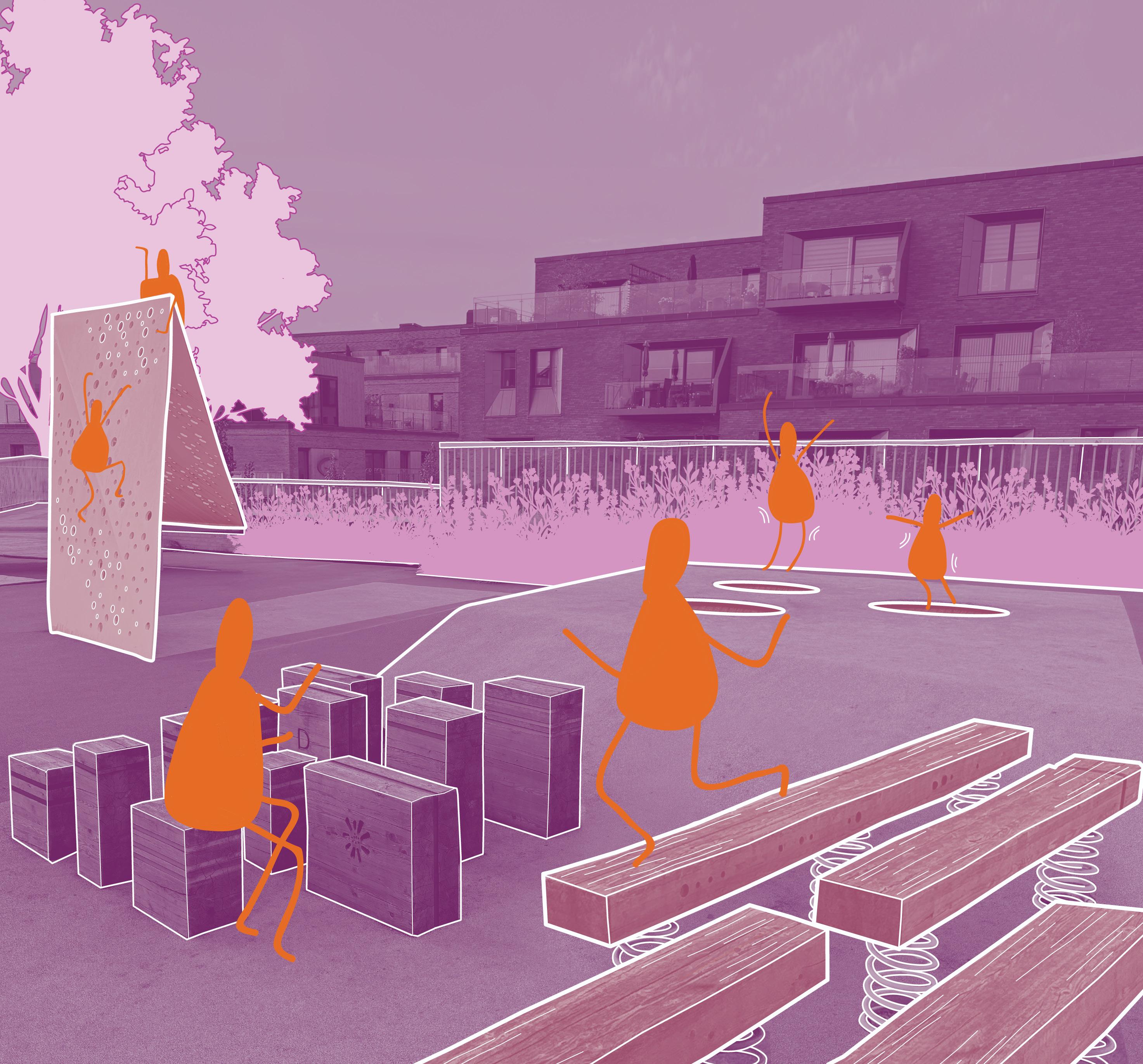
MAKING SPACE FOR PLAY: Volume Two

PHILADELPHIA, PA
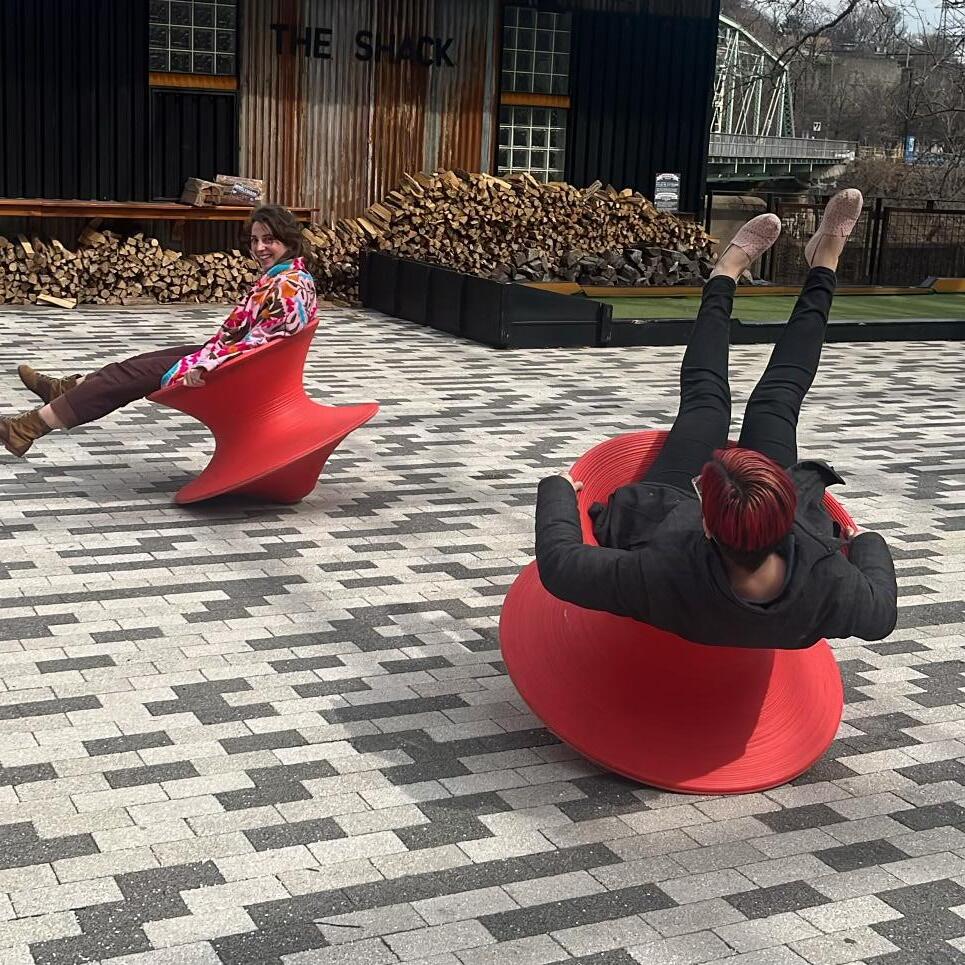

Bringing play into our everyday

MAKING SPACE FOR PLAY: Volume Two

PHILADELPHIA, PA

STUDIO LUDO is a 501(c)3 woman led non-profit founded in 2015 whose mission is building better play through research, advocacy, and design.
We are architects, landscape architects, city planners, and social scientists who have collected user demographics, physical activity, and play behavior data on over 60,000 people in 100 play environments around the world.
This dataset is the most current picture of behavior and user preference in play environments in the world, and directly influences all of our play space designs, from rooftops, to schoolyards, to neighborhood parks, to large scale destination playgrounds.
“The opposite of play is not work — the opposite of play is depression.”
- Brian Sutton-Smith
Play does not stop at childhood, it just evolves. As we age, we still crave movement, laughter, joy, and connection. All of this (and more) can happen through play.
Play provides opportunities for physical wellness, social cohesion, and emotional health for people of all ages. Weaving play into our everyday experiences supports kids (and kids at heart) to discover their inner ‘woohoo’.
Our play research began in 2008 in San Francisco with the simple question... what makes a great place to play?
From there, we traveled the globe, studying play behavior in the UK (London, Glasgow, Edinburgh), the US (New York City, Los Angeles, Seattle, Denver, Houston, Memphis, Chicago, Cincinnati, Boston), France (Paris), the Netherlands (Amsterdam), Belgium (Brussels), Iceland (Reykjavik), Slovakia (Bratislava), Albania (Tirana, Shkodër), and Denmark (Odense, Billund, and Copenhagen).
Our most consistent observation is that play is more than a playground
Play happens where there is a curb to balance on, a sculpture to climb, a hill to roll down, and a partner to challenge to a game. And play is not just for kids. Half of people in our studies are teens, adults, and seniors.
We launched our research at a global tipping point - when more than half the world’s population live in urban rather than rural areas, growing to two-thirds by 2050. As our cities become denser, and inequities grow, we believe that everyone, regardless of age, gender, or background, deserves space to play.
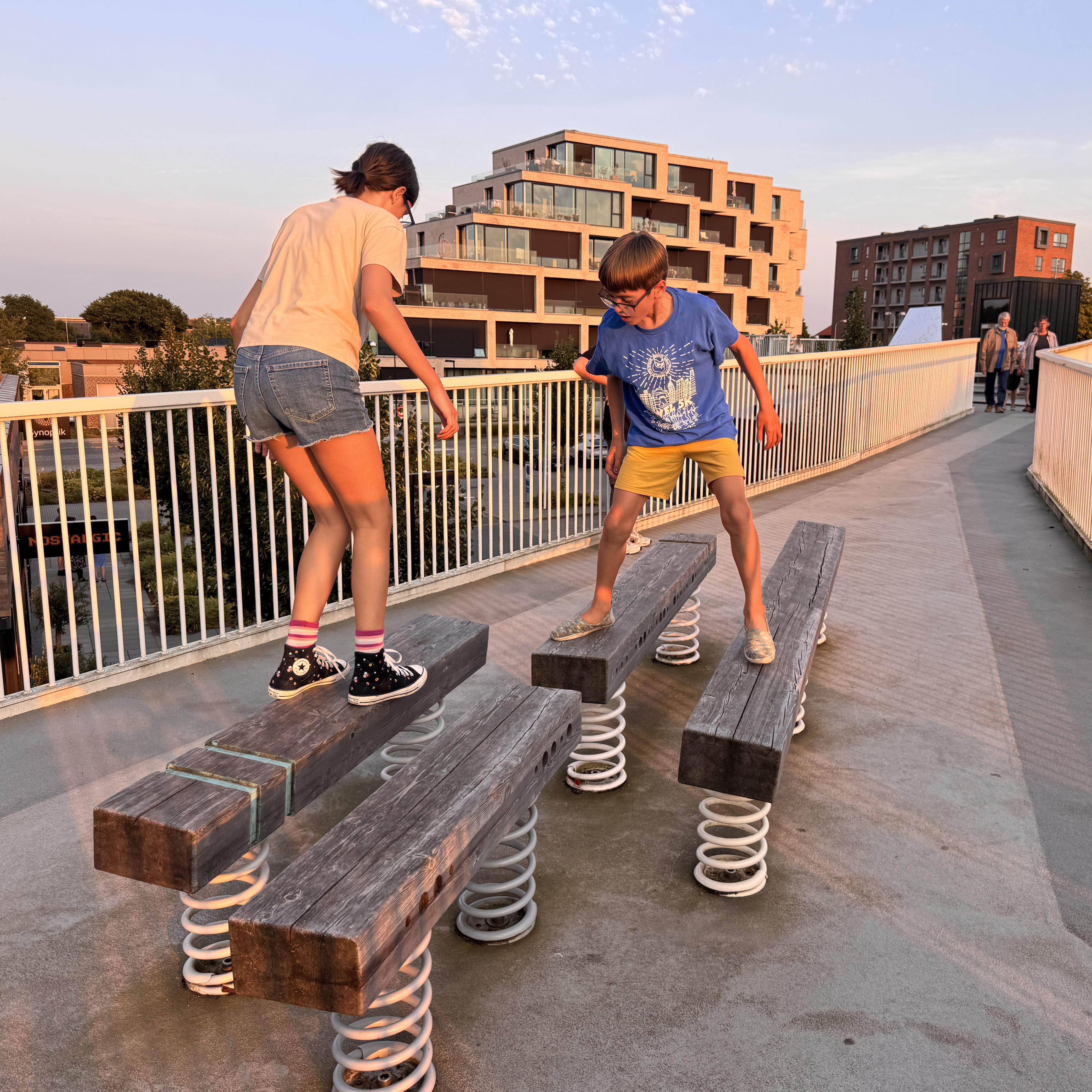
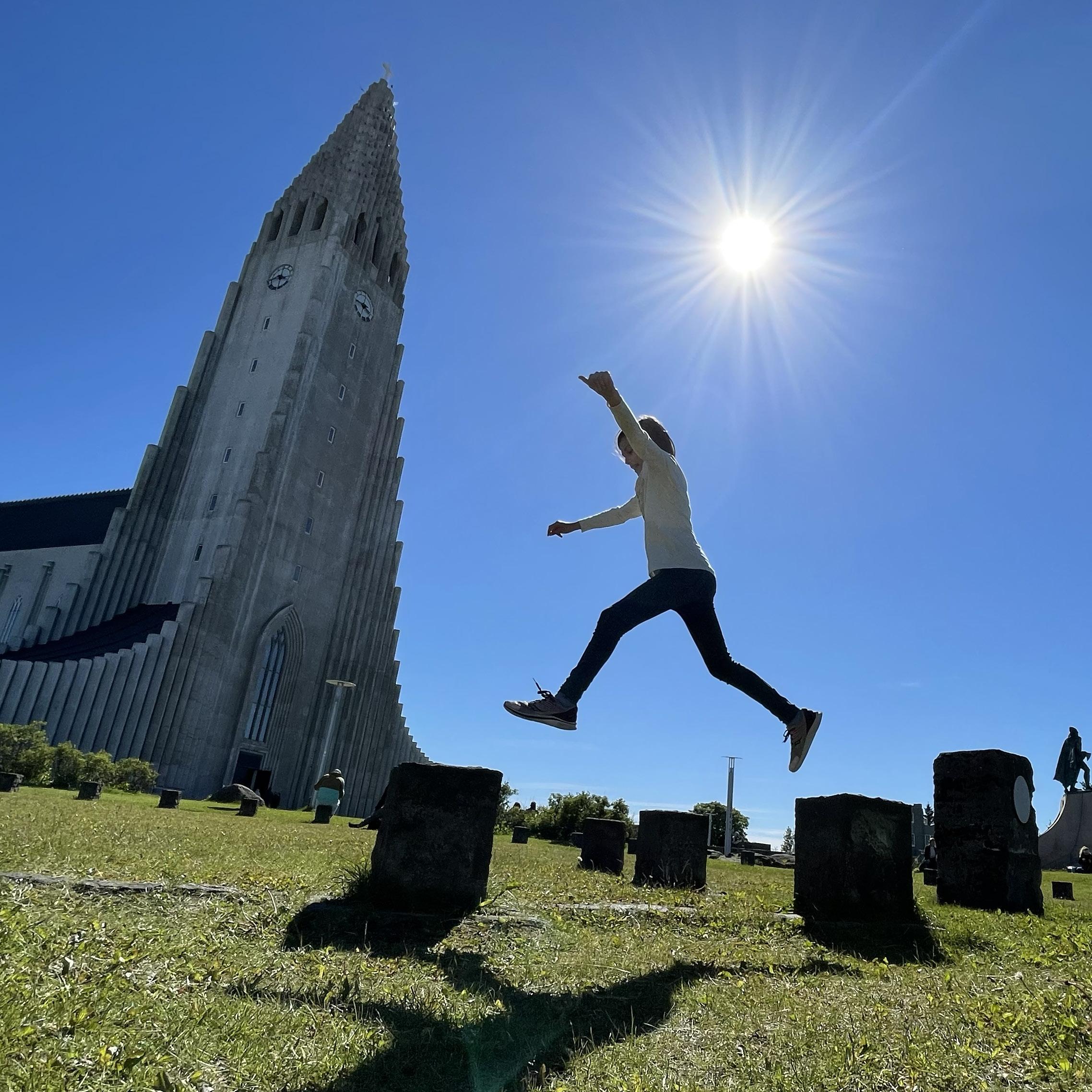
A ‘play affordance’ is a physical object in the built environment that invites play. It is a spark that ignites joy, encourages movement, and fosters connections across generations.
We need the time, space, and permission to play - to let go, be silly, laugh out loud, or just be. Taking play out of the playground and into our everyday, from plazas and rooftops, to pocket parks and transit stops, means that everyone gets the opportunity to play.
Play is the one of the best investments that we can make in community health.
Play gets people to move more, connect more, and spend more time outdoors, laying the foundation for a lifetime of health and happiness. Our studies show that playgrounds serve more people per square foot than almost any other public space amenity. Now imagine if play was everywhere.
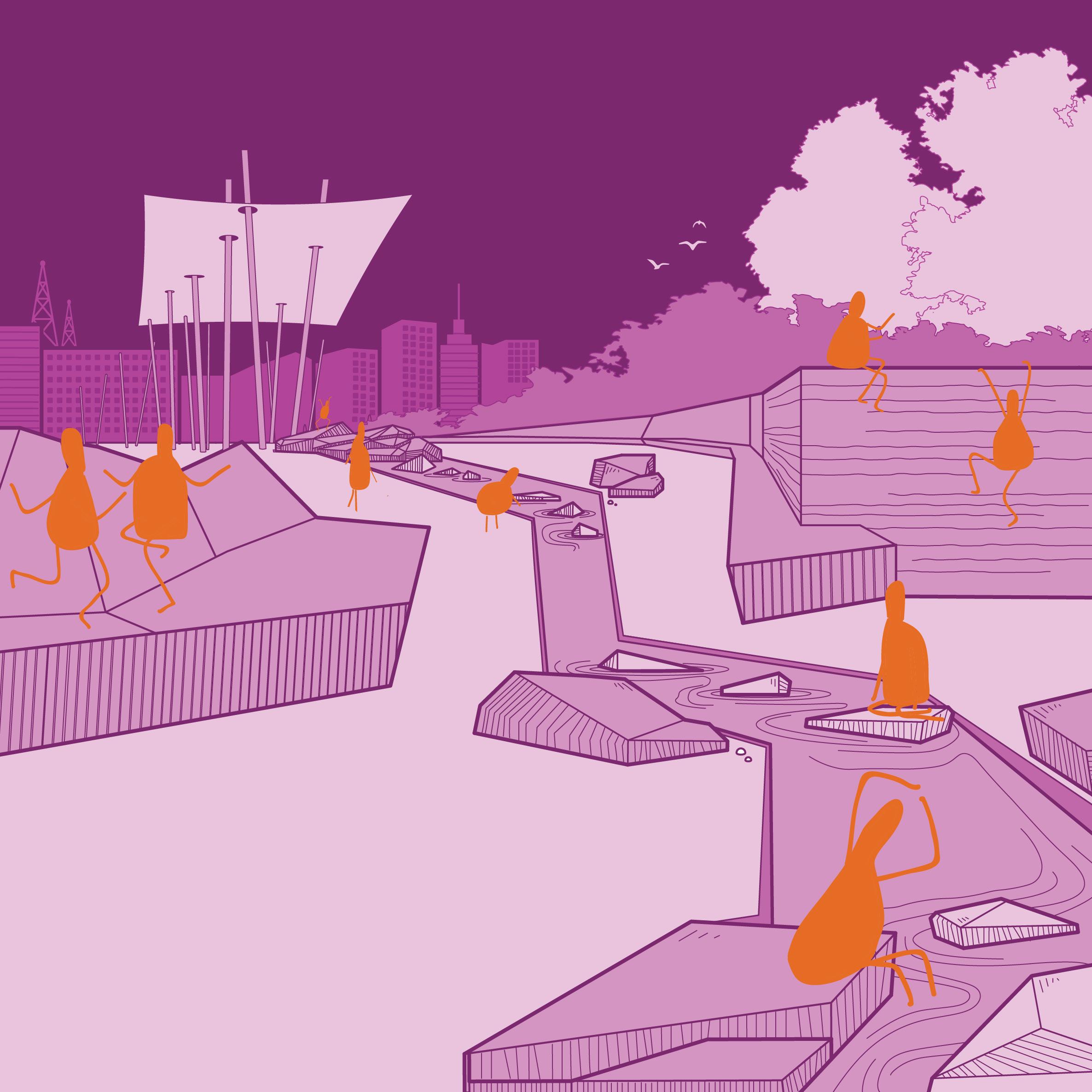
Traditional features of public space can be easily transformed into play affordances. A bench can be designed for balancing, chasing, or jumping. A bike rack can be a jungle gym. A bollard can be a perch. Think beyond typical site features to invite joy and connection into every day spaces.
Change the shape, size, or color of a bench to encourage play and movement
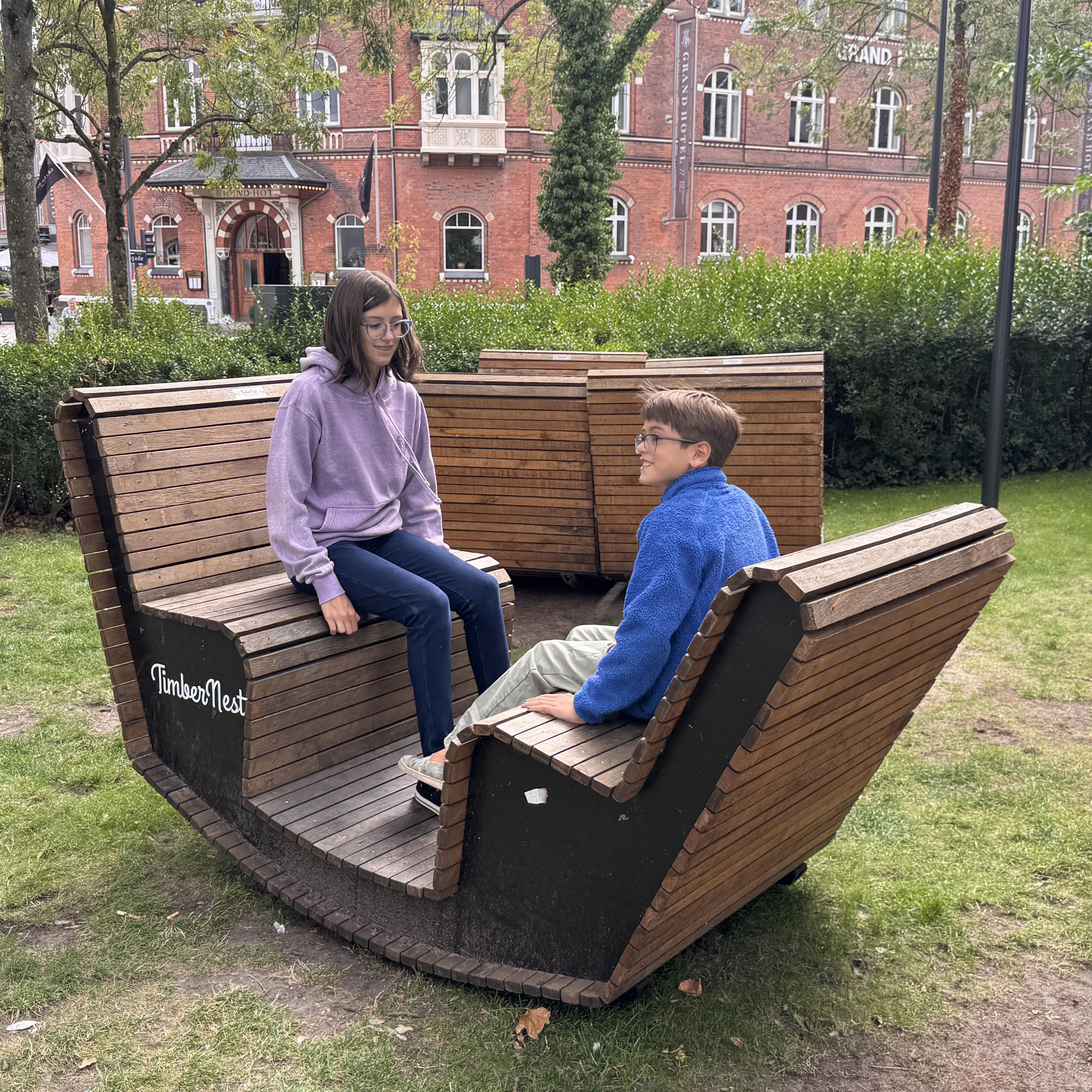
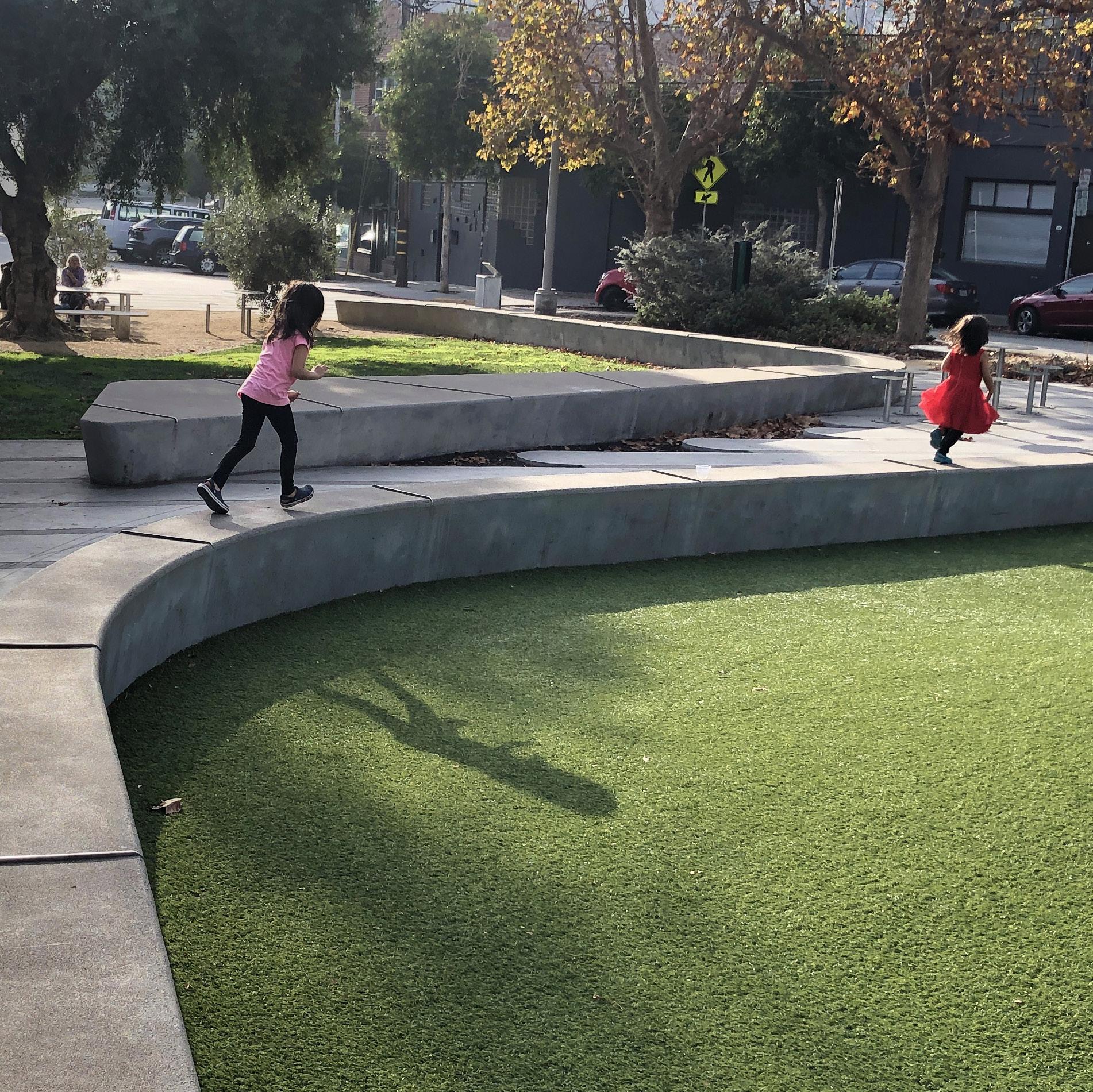
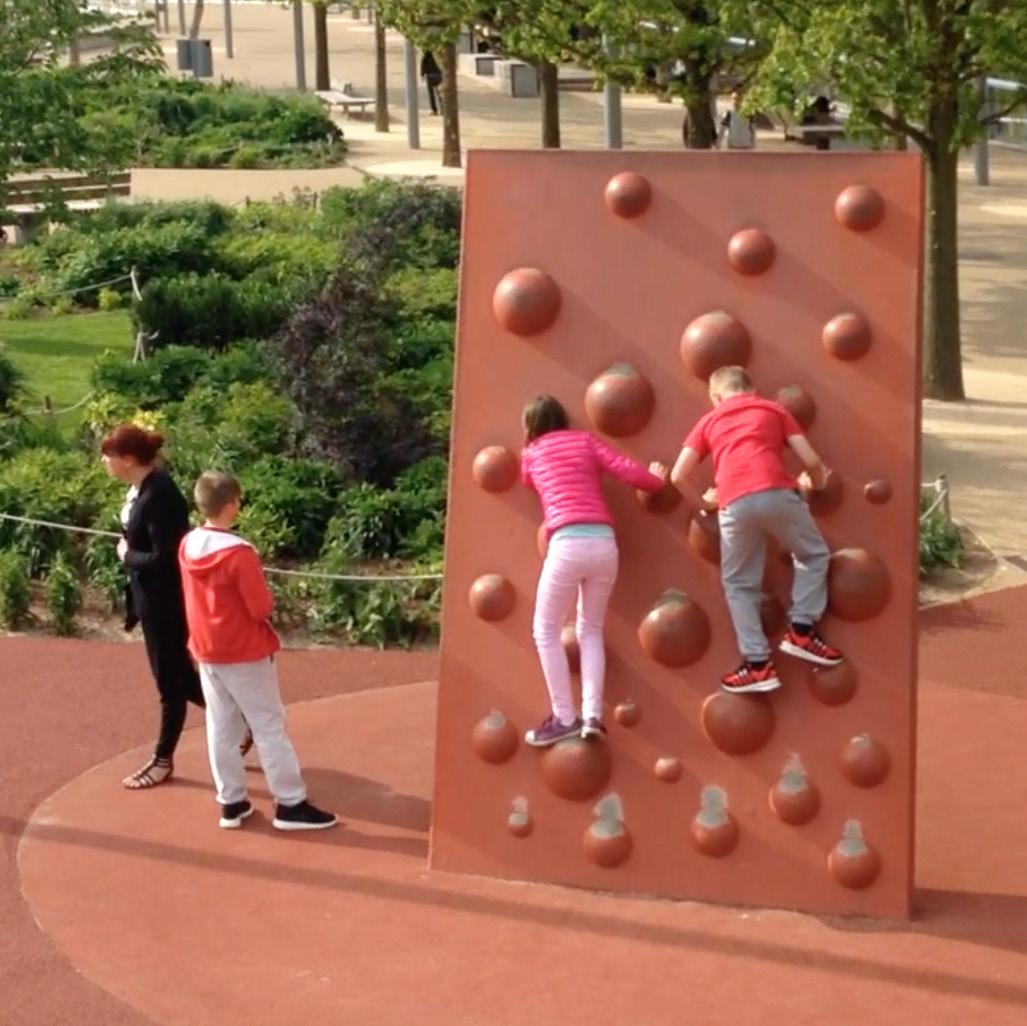

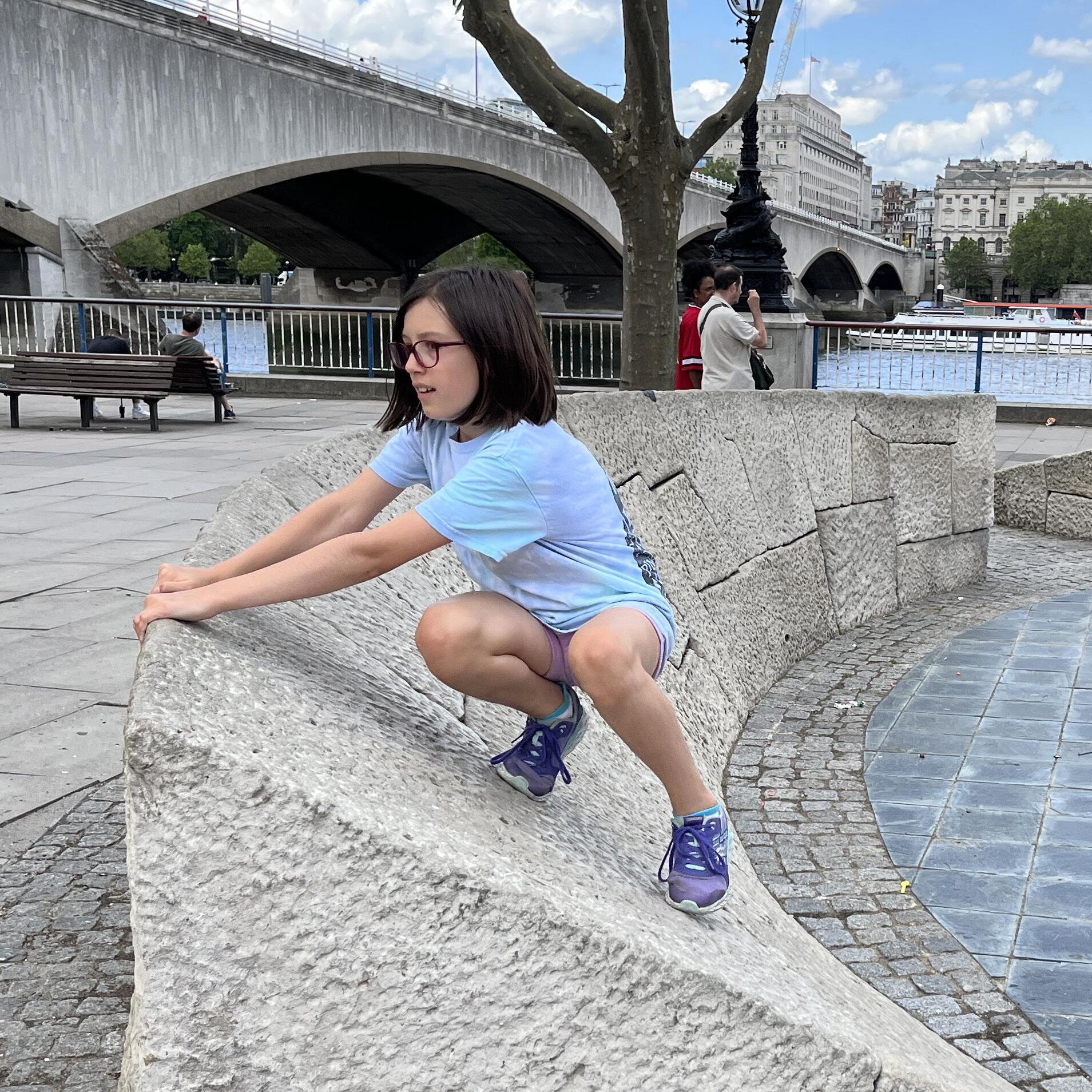
Activate walls with holds, texture, or slope to promote climbing and perching
Increase play value with loose parts, interactive runnels, or spray jets
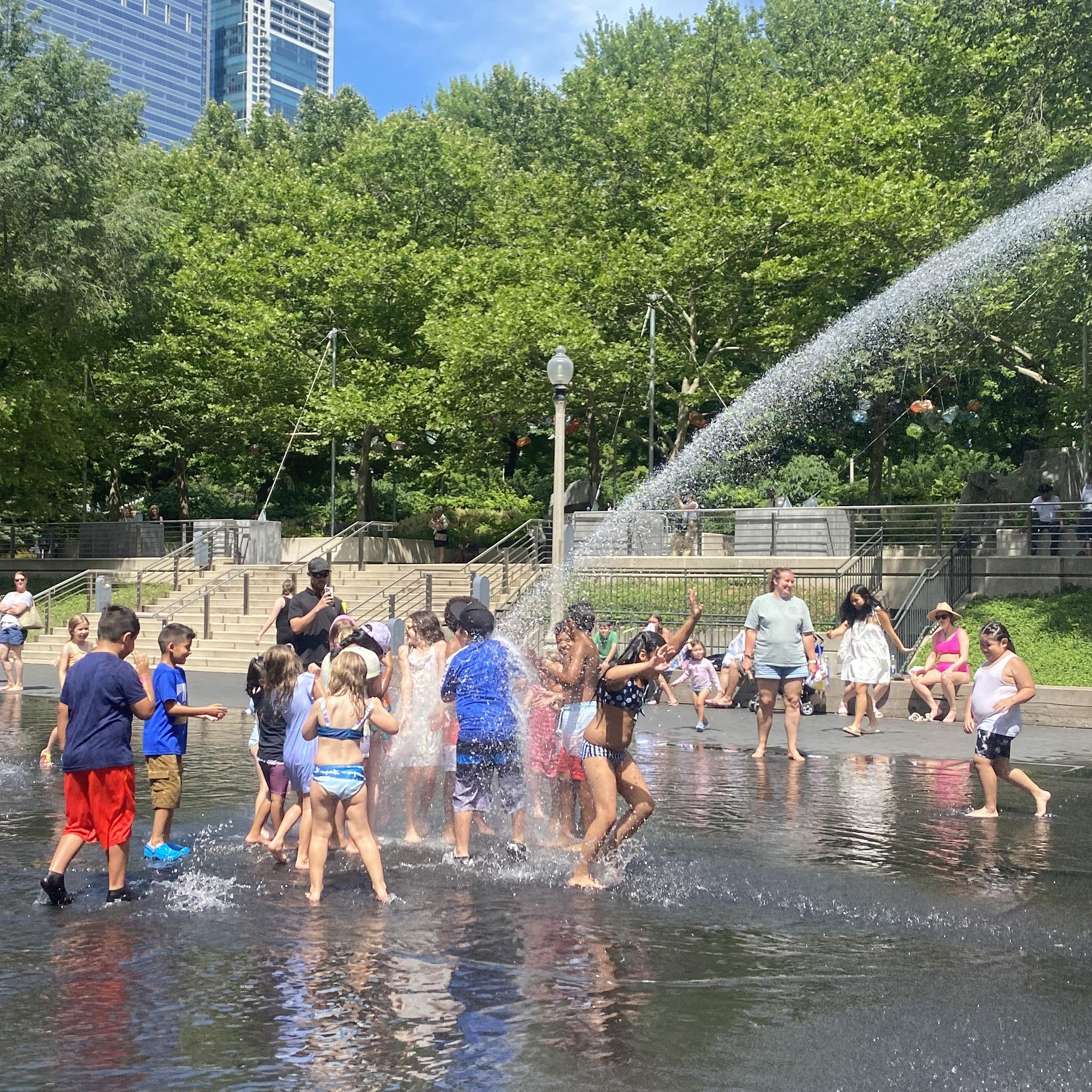
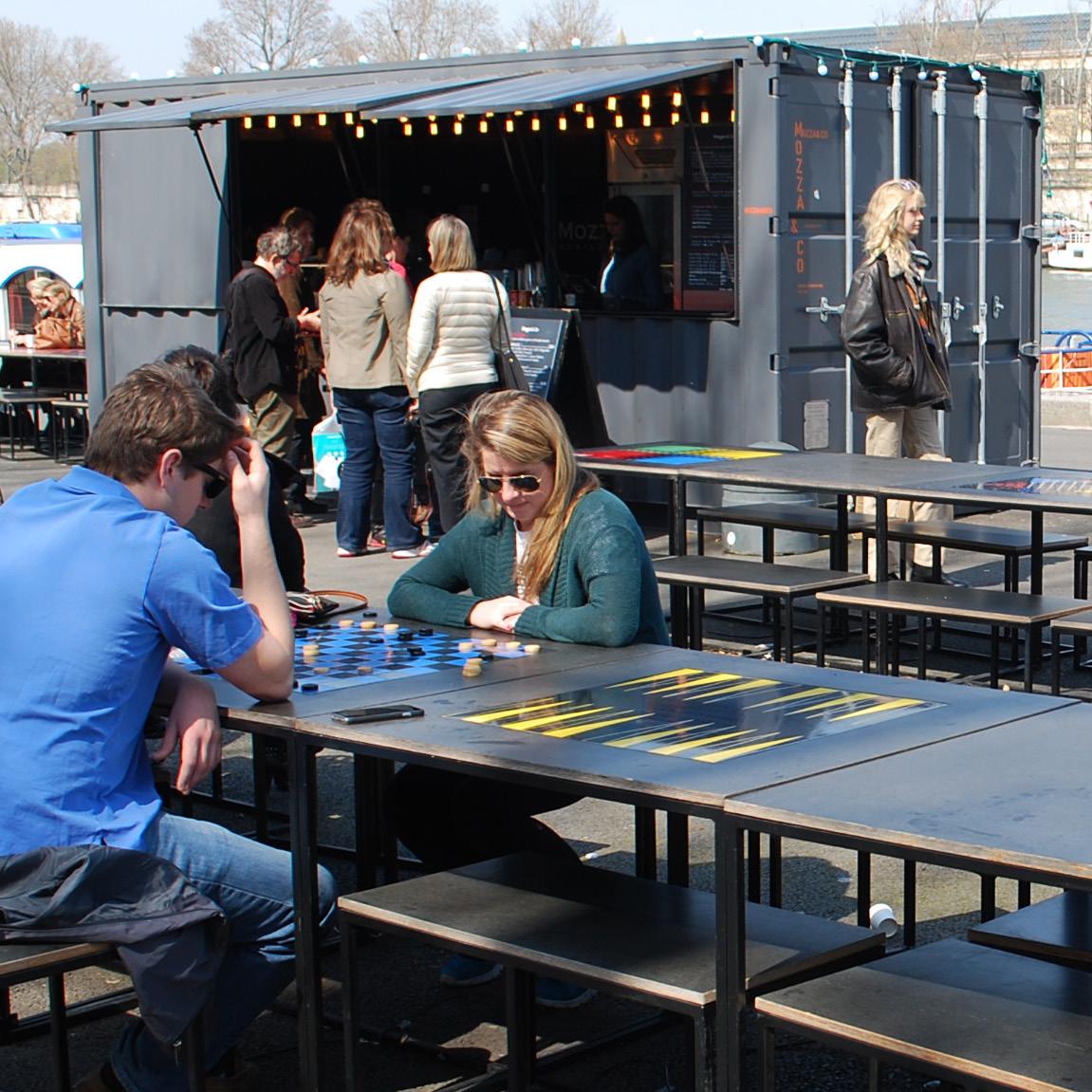
Introduce a variety of games for play opportunities for all ages
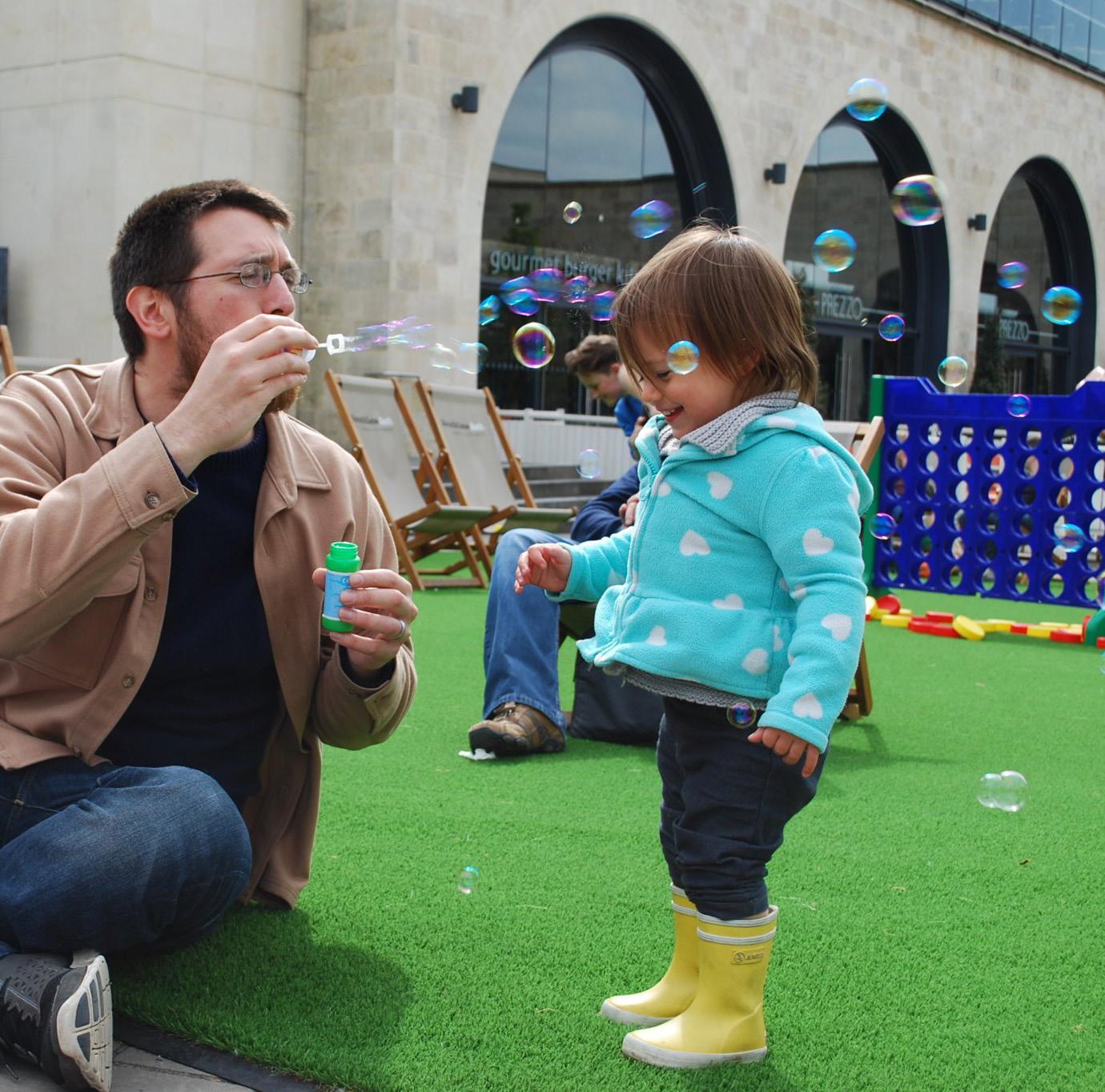
Encourage movement through playful bike racks, bollards, tables, and shade canopies
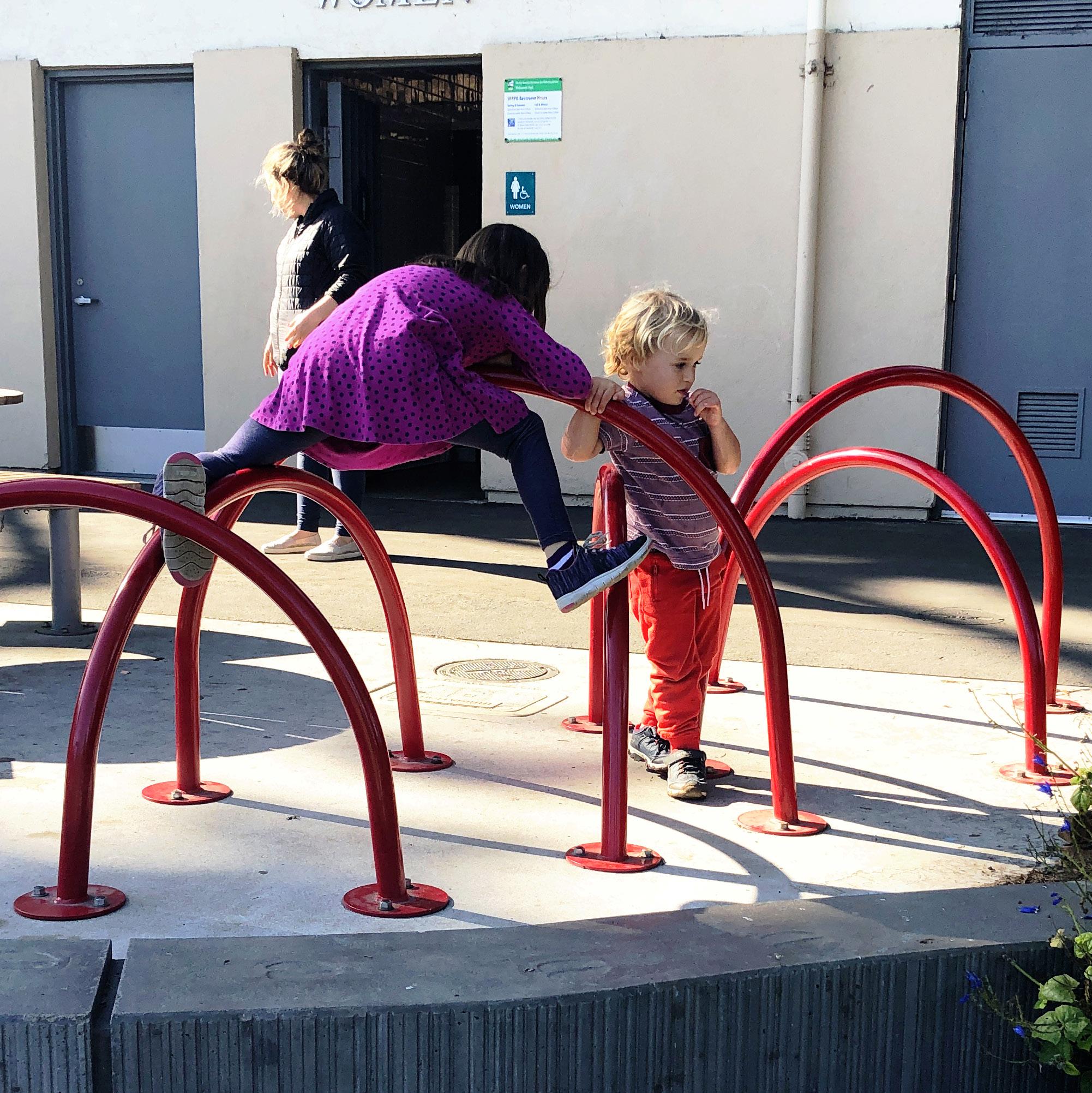
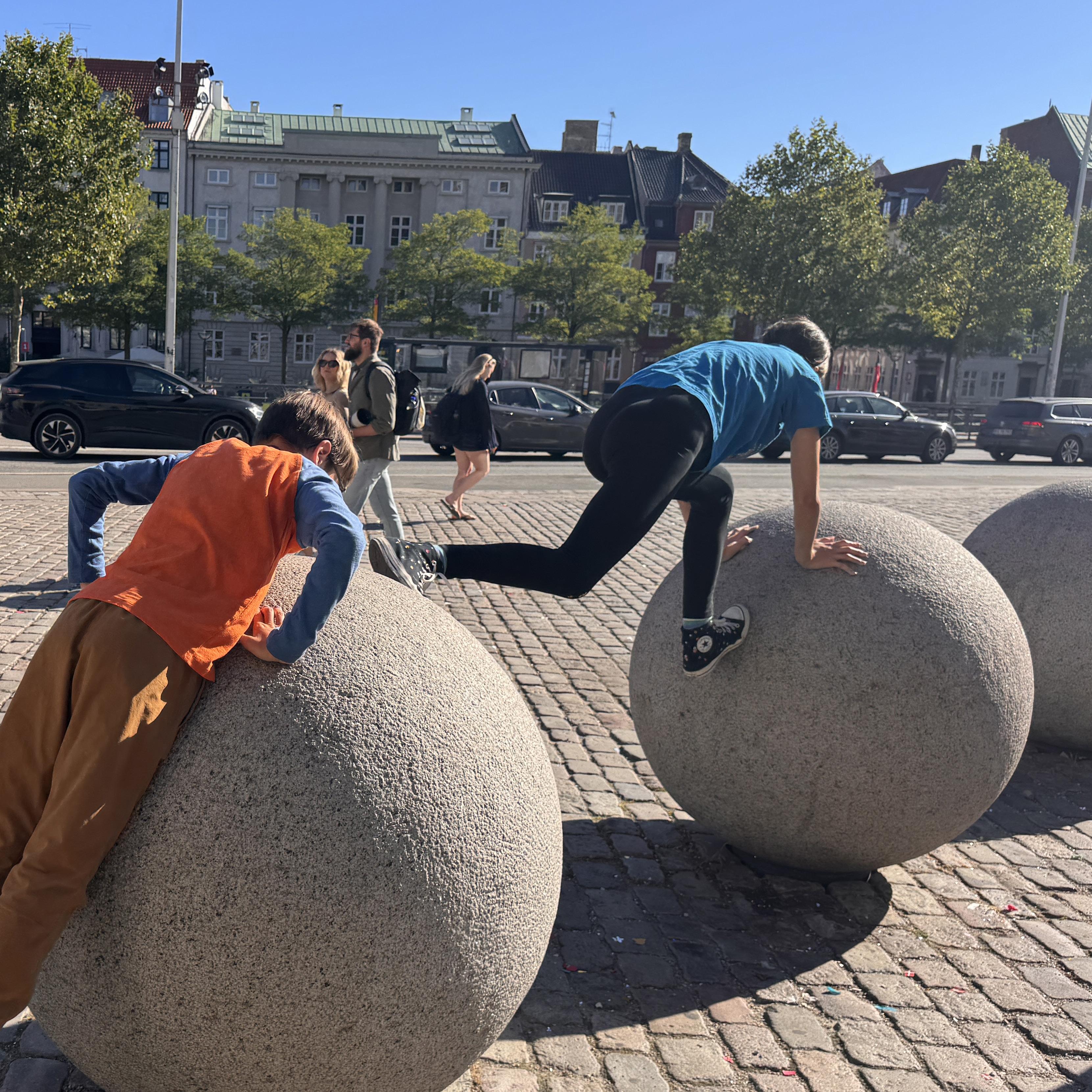
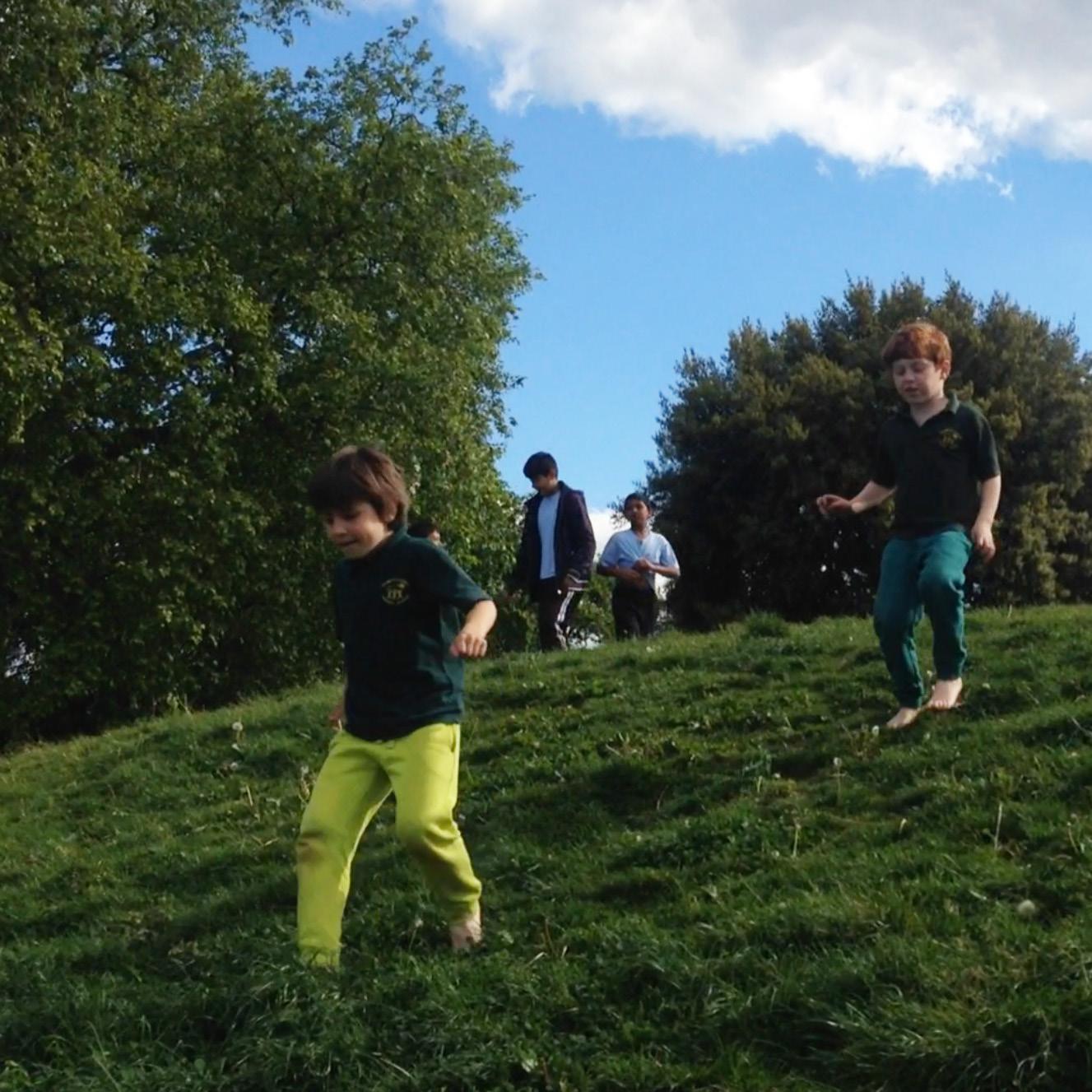
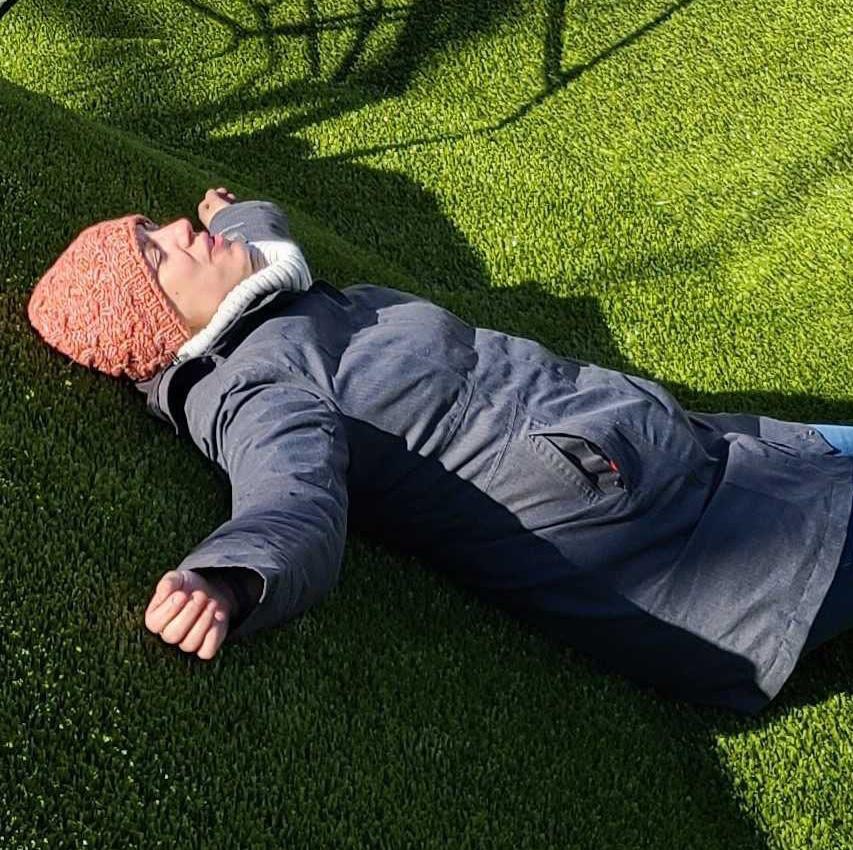
Add hills and valleys to inspire rolling, running, and sliding, or laying and relaxing
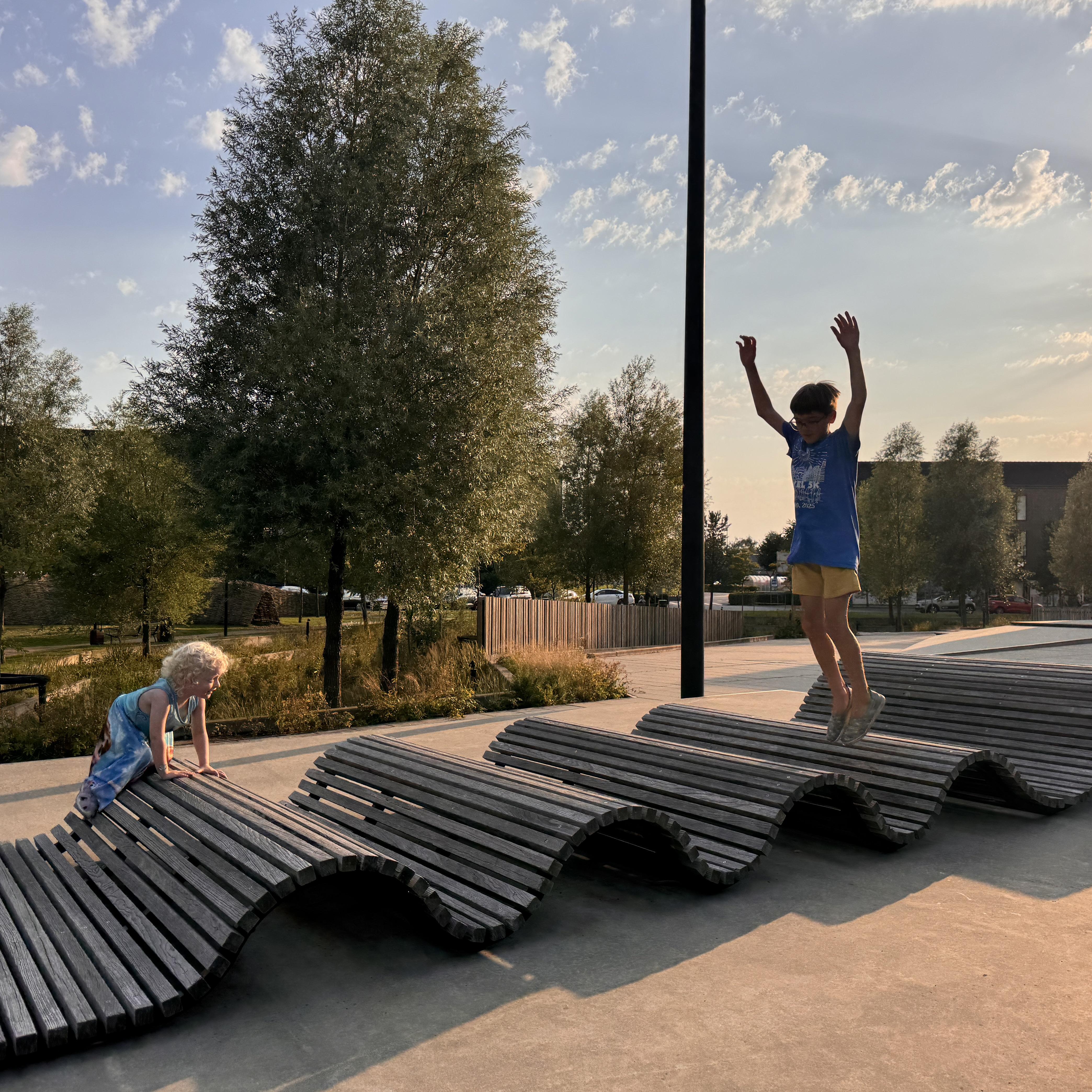
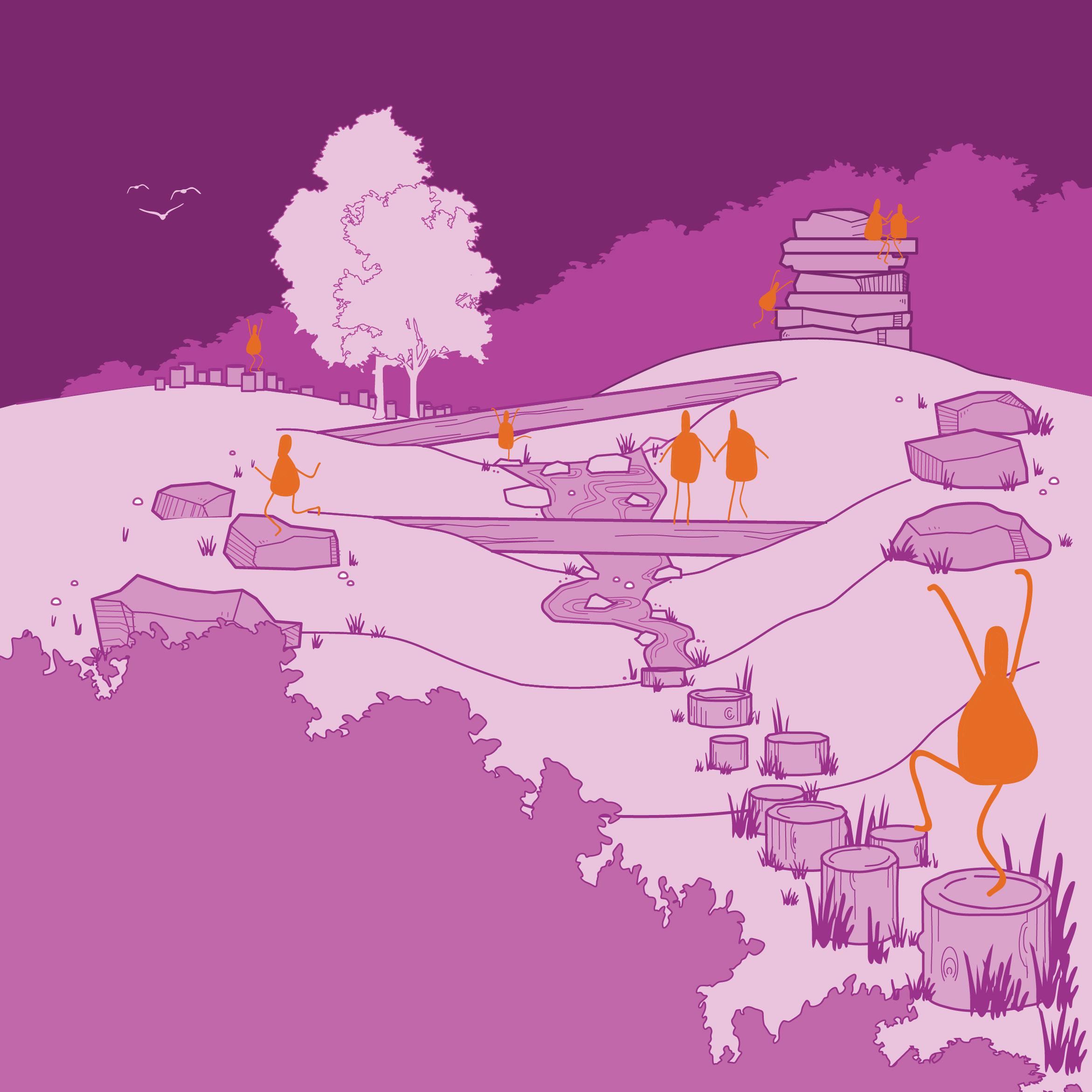
Play affordances come in all shapes and sizes - but our favorite are natural elements.
Logs and boulders can be open-ended climbers or places to gather and rest, while stepper paths through plants encourage exploration into local habitats, which provide a variety of loose parts play.
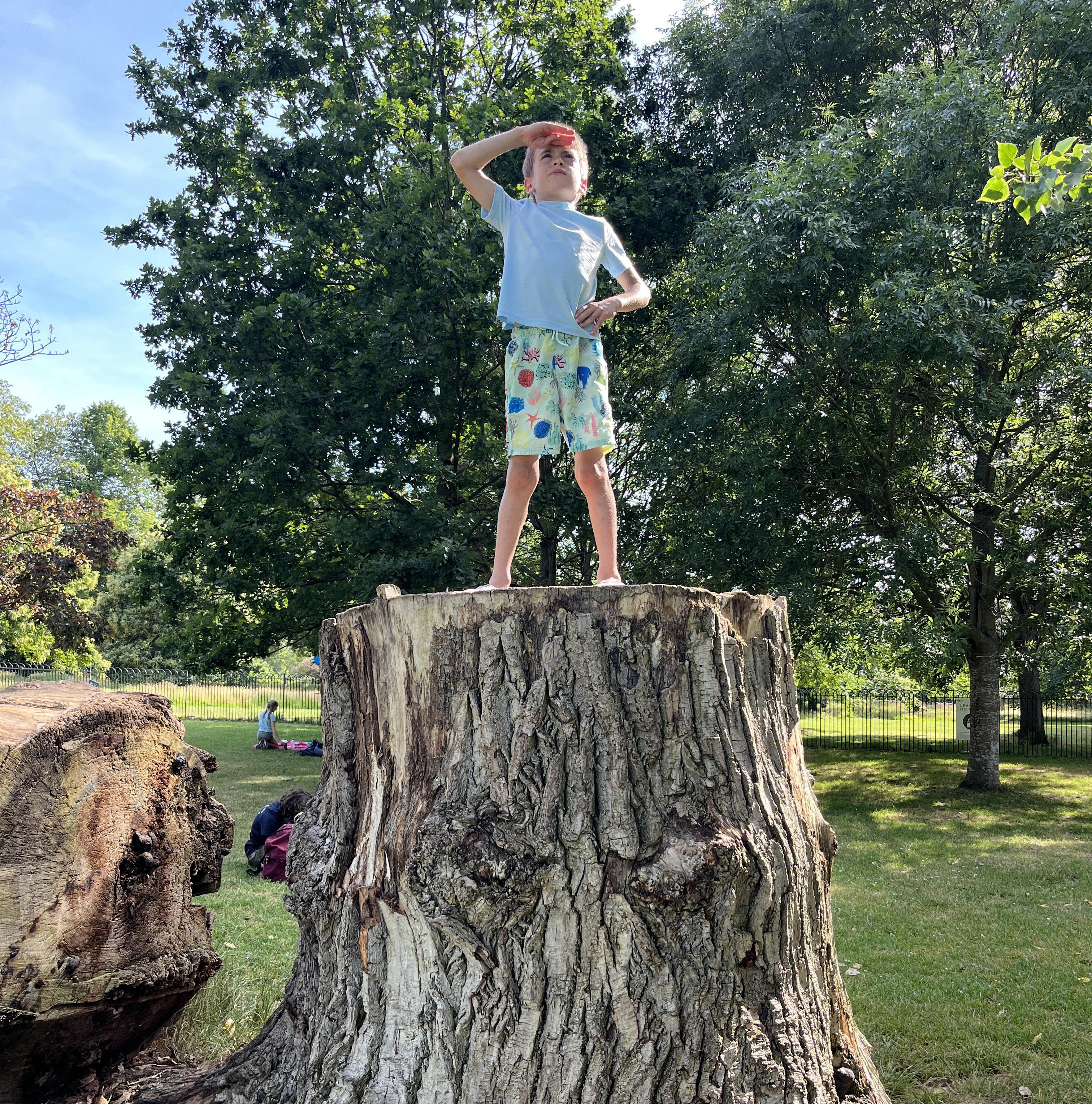
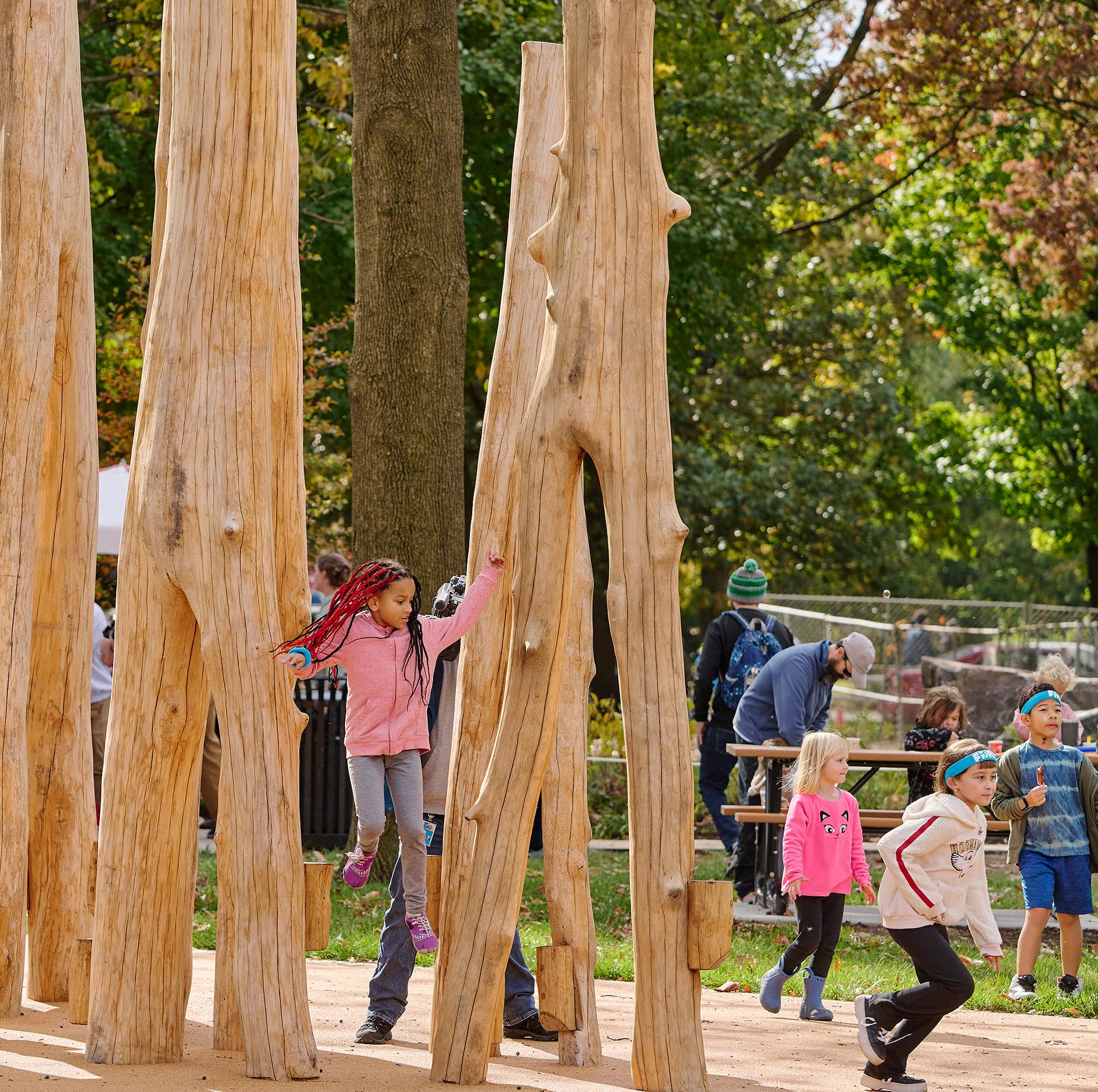
Include boulders to support seating, balancing, and climbing for all ages
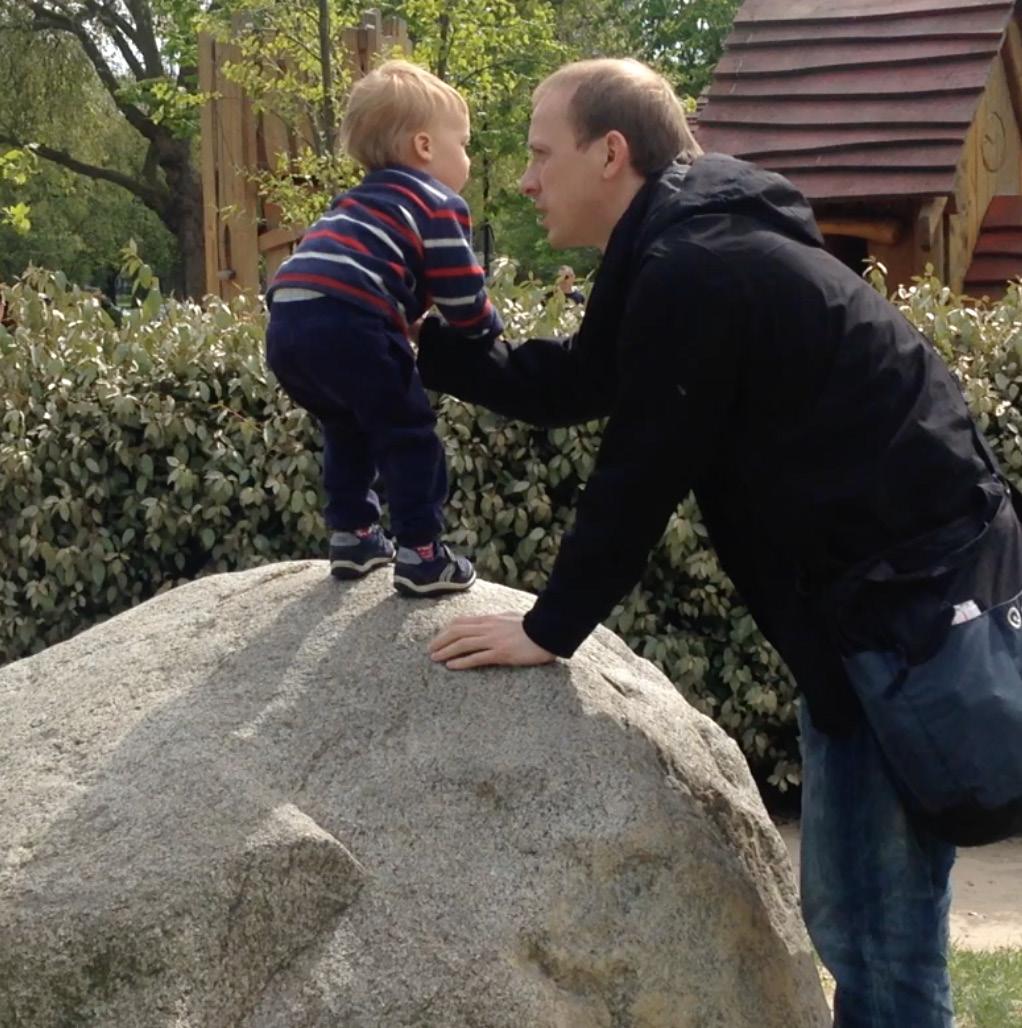
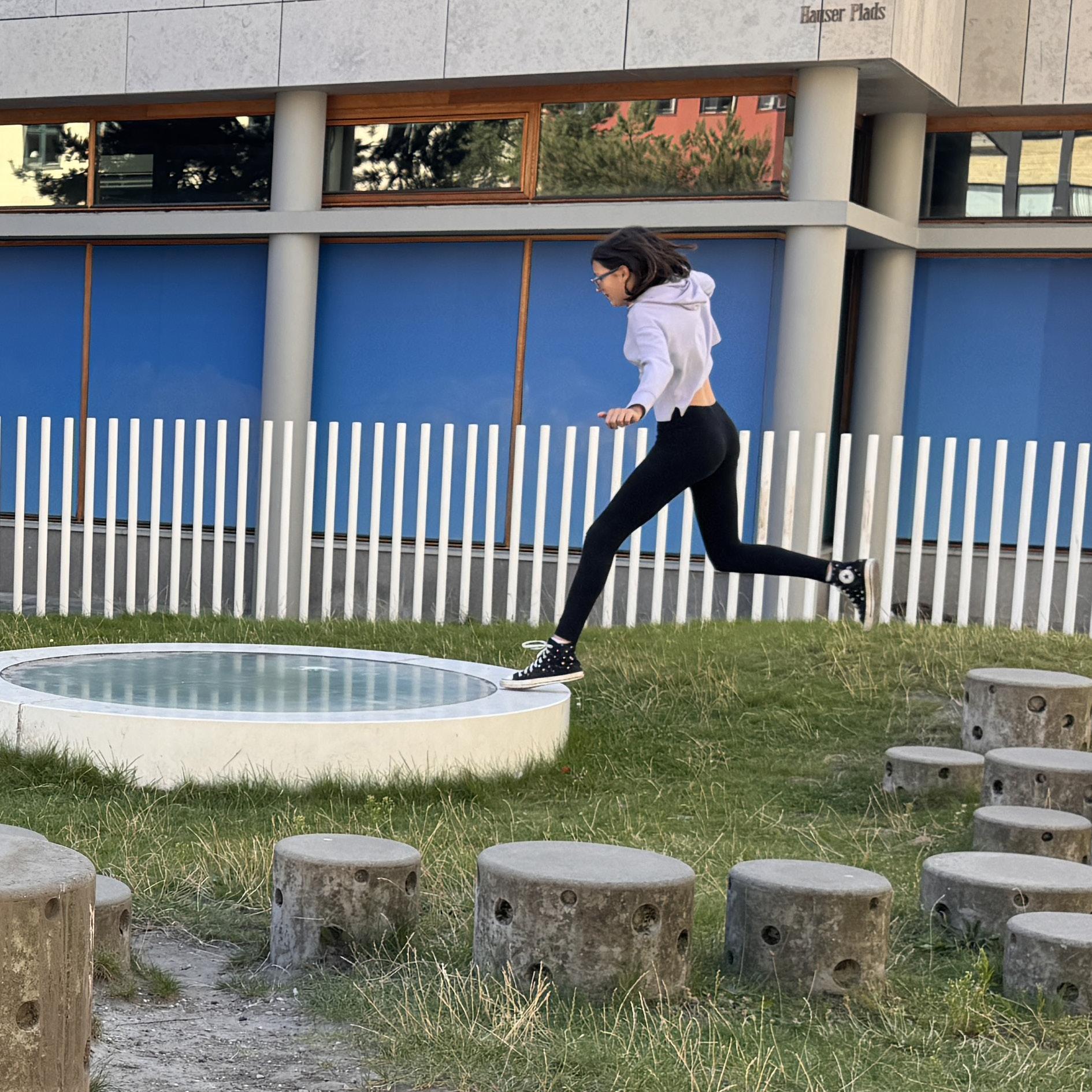
Place steppers to encourage discovery though a diversity of natural landscapes
Select logs for opportunities for sitting, perching, climbing, and leaping
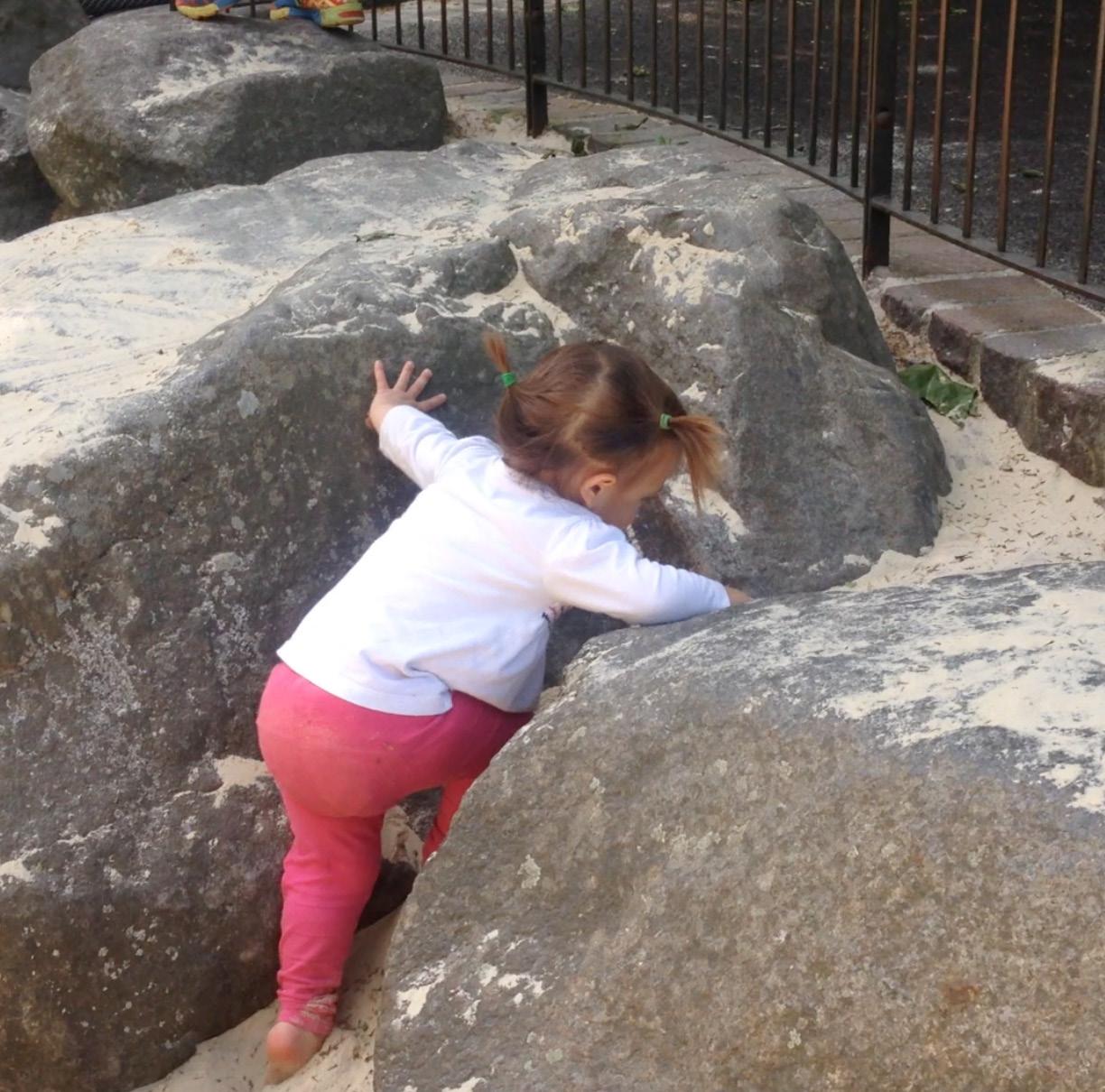
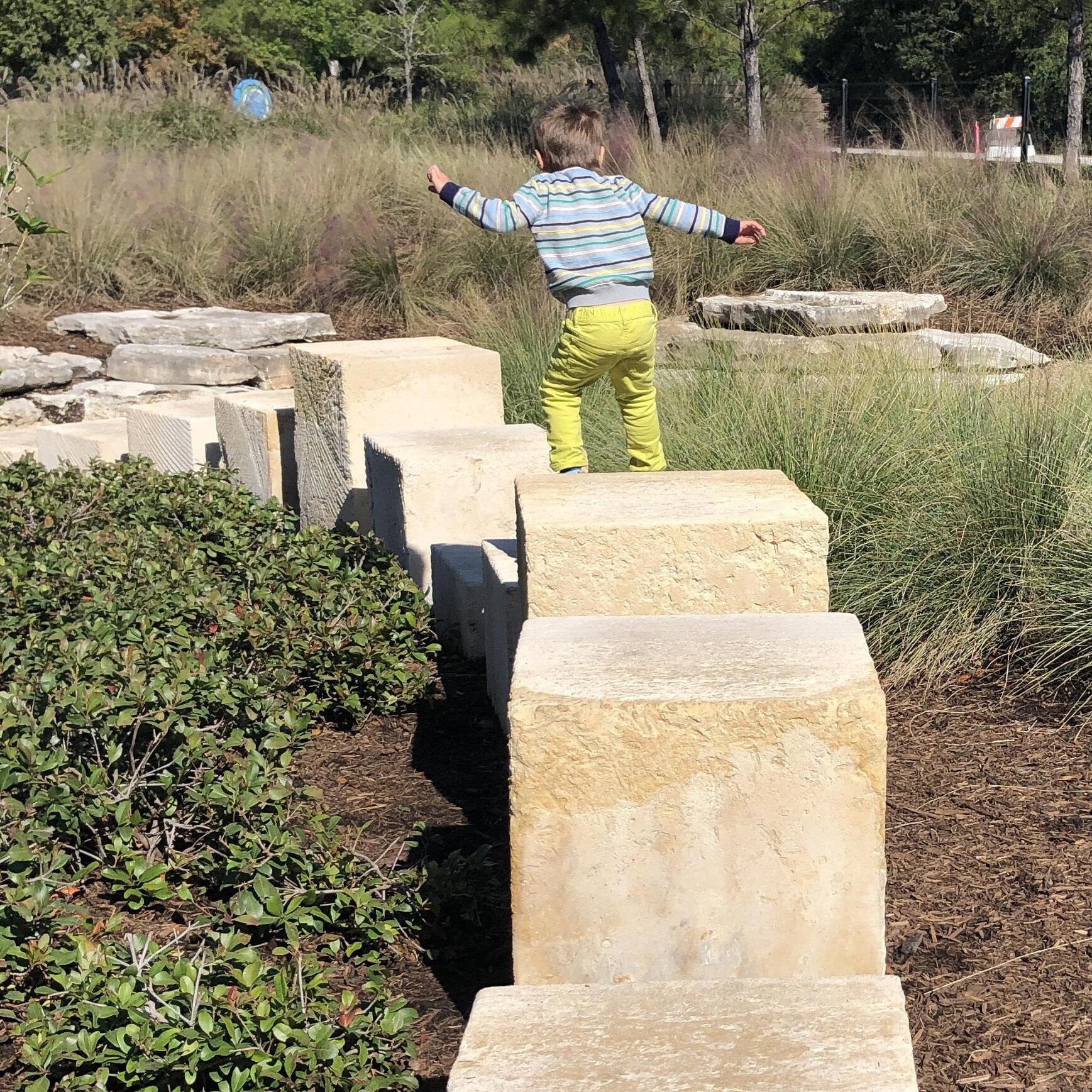
Stack boulders and logs for a natural incentive to scramble and climb
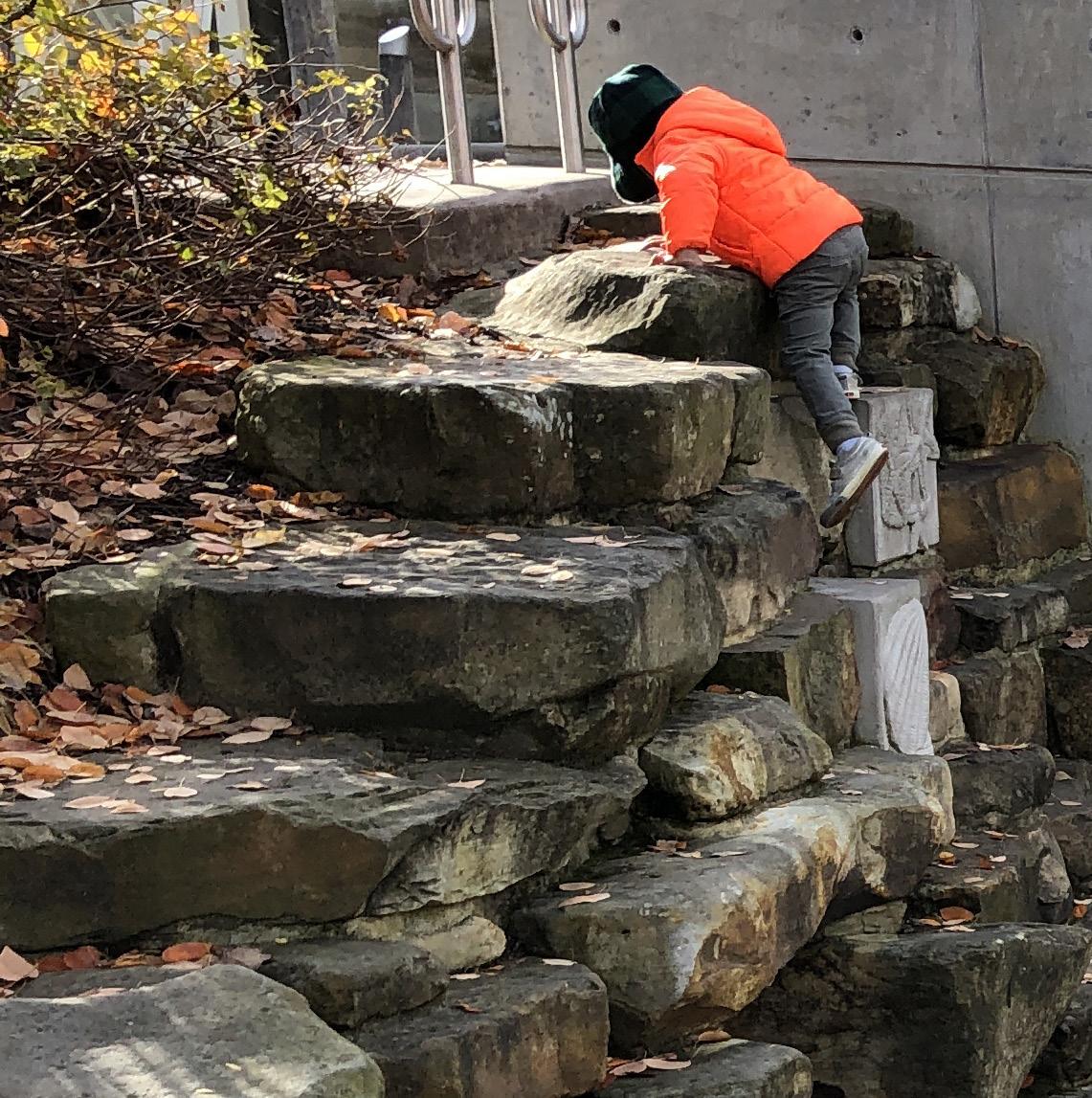
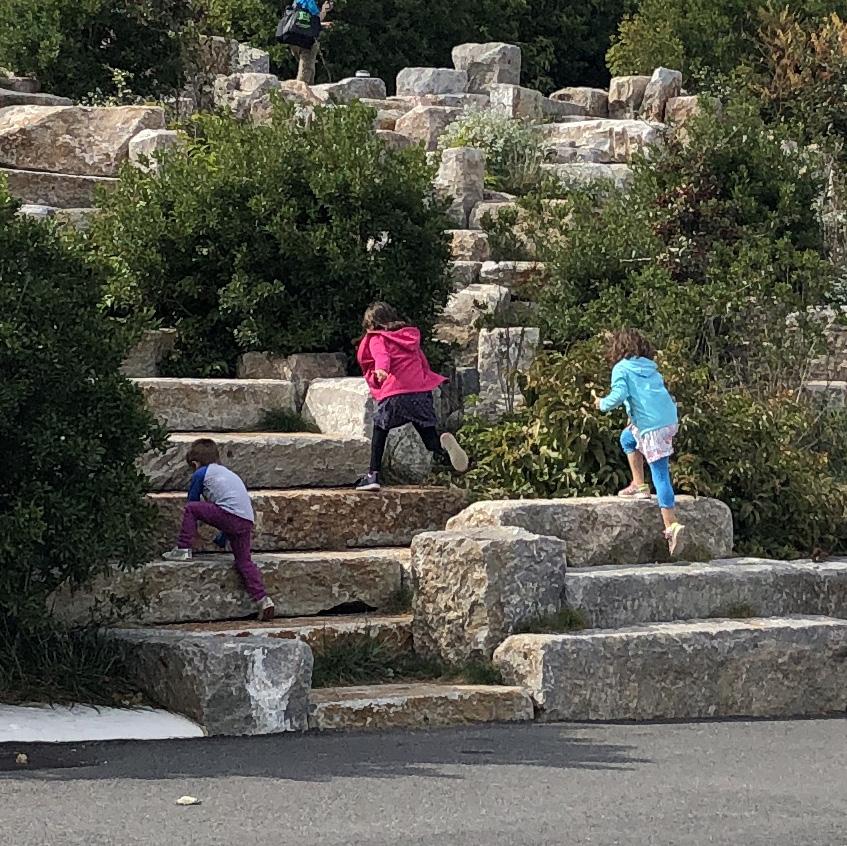
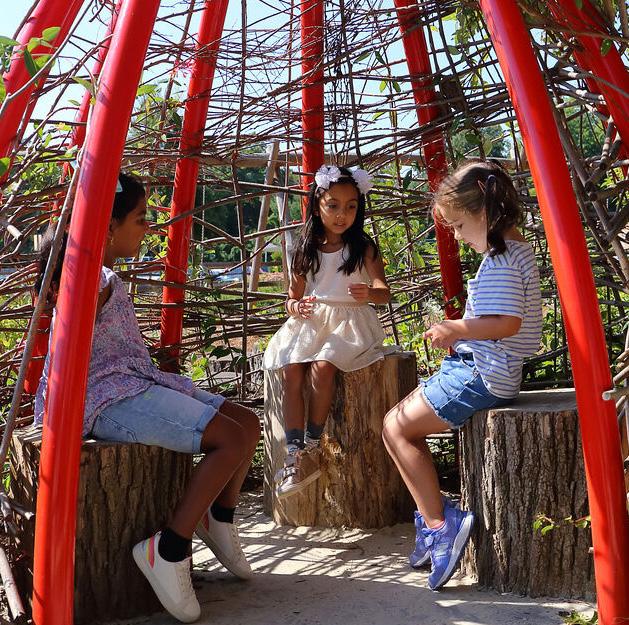
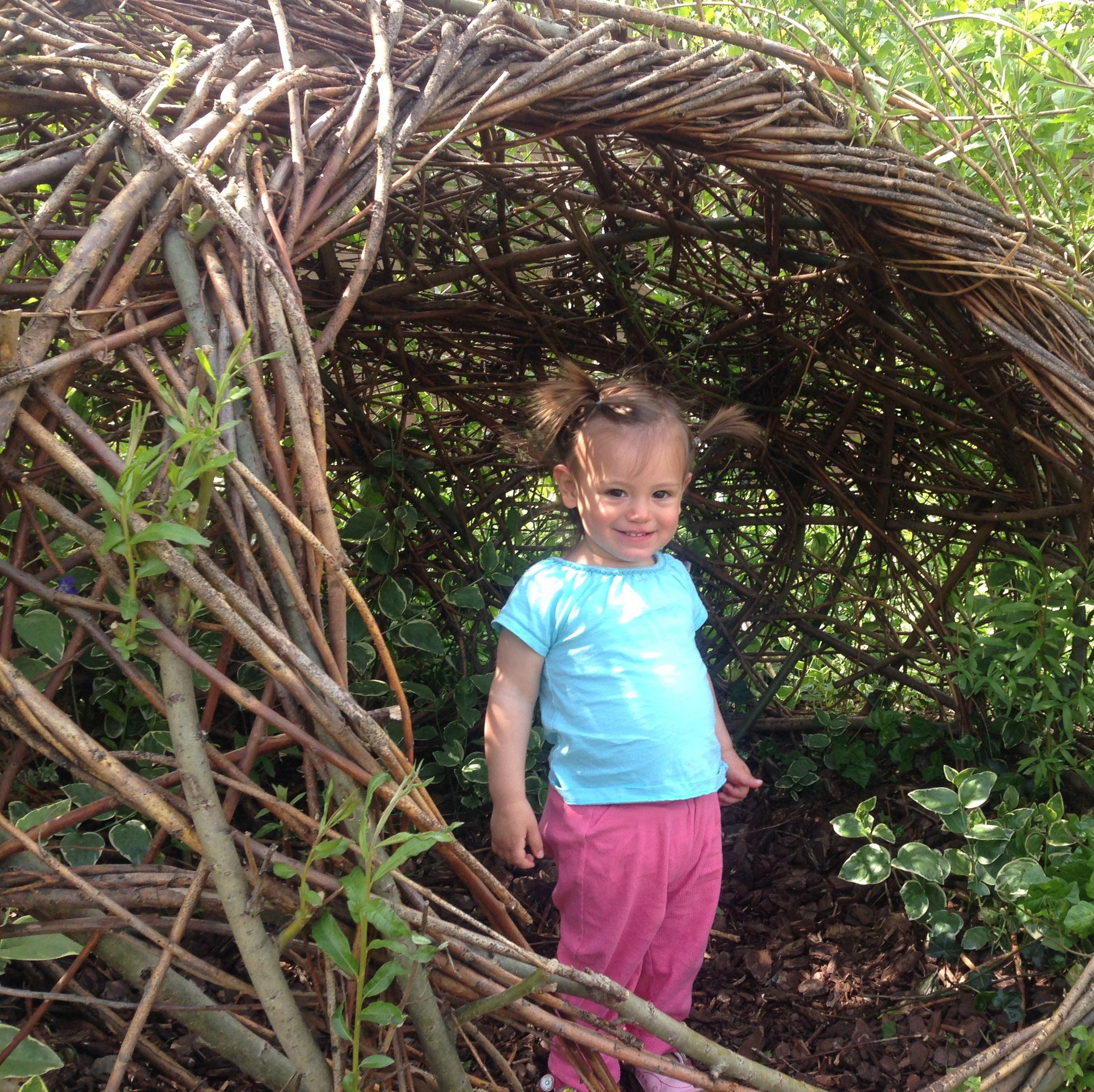
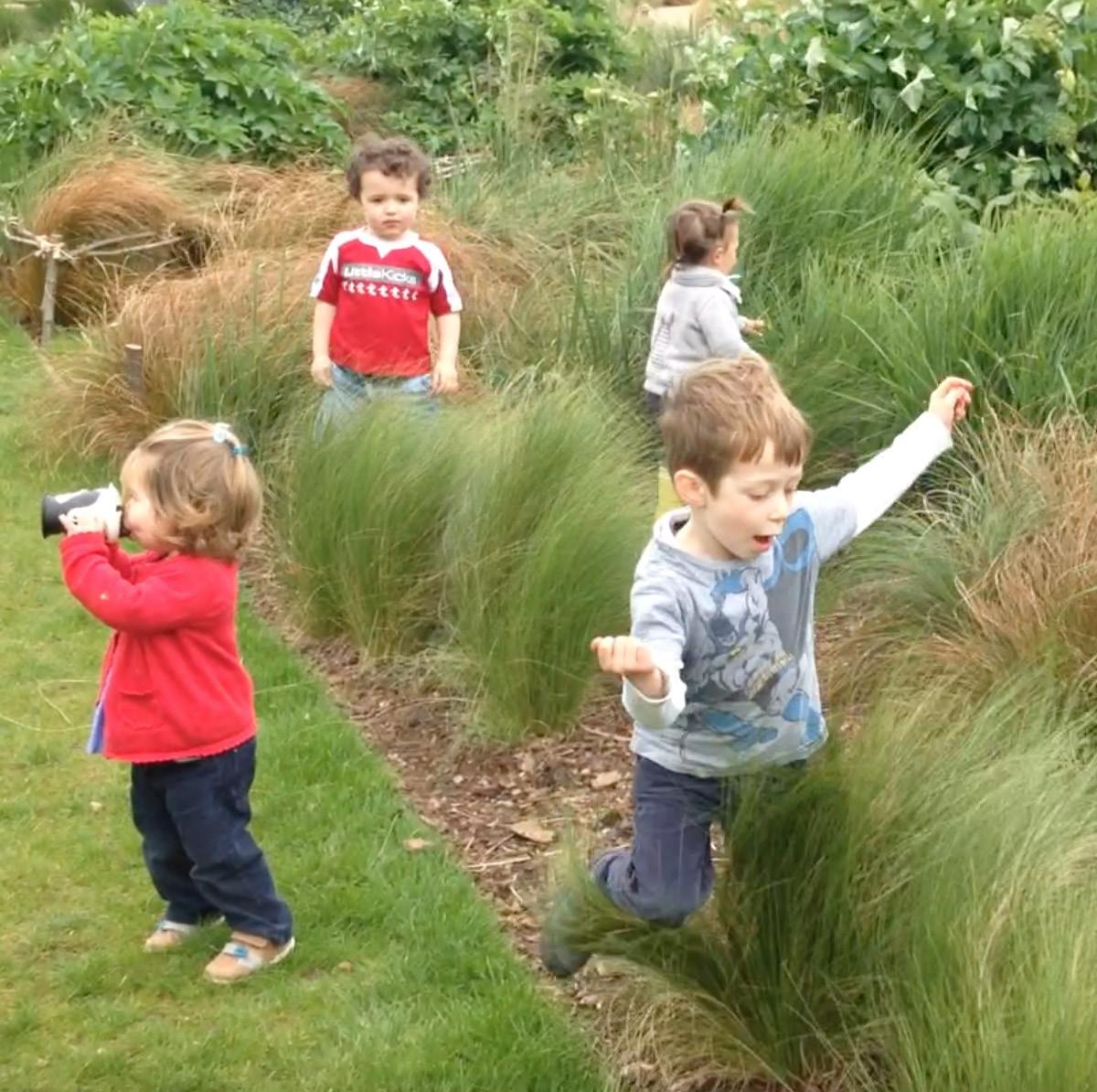
Choose materials such as sand, gravel, and bark to spark discovery and interaction
Utilize plants and natural materials to create cozy spaces for rest and imagination
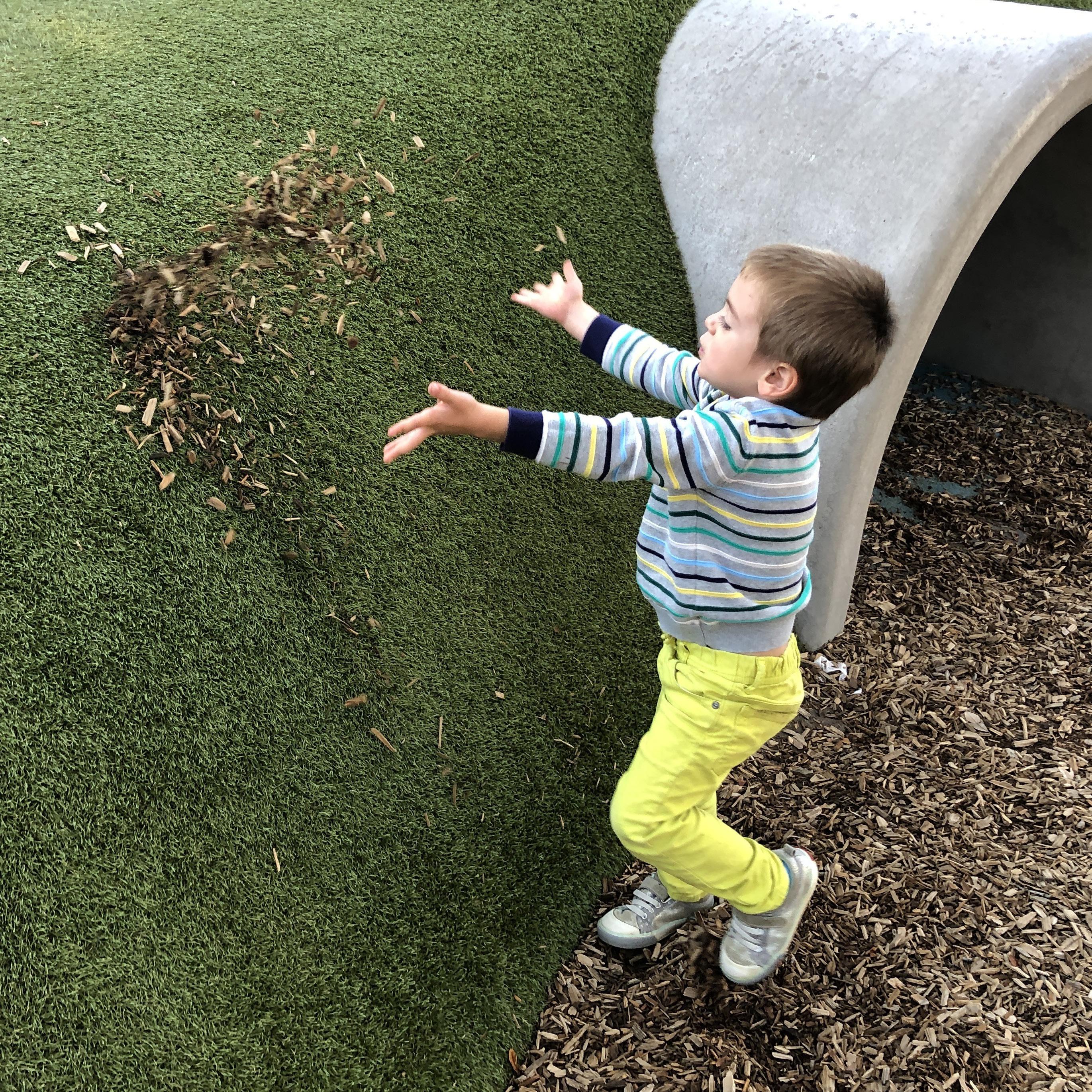
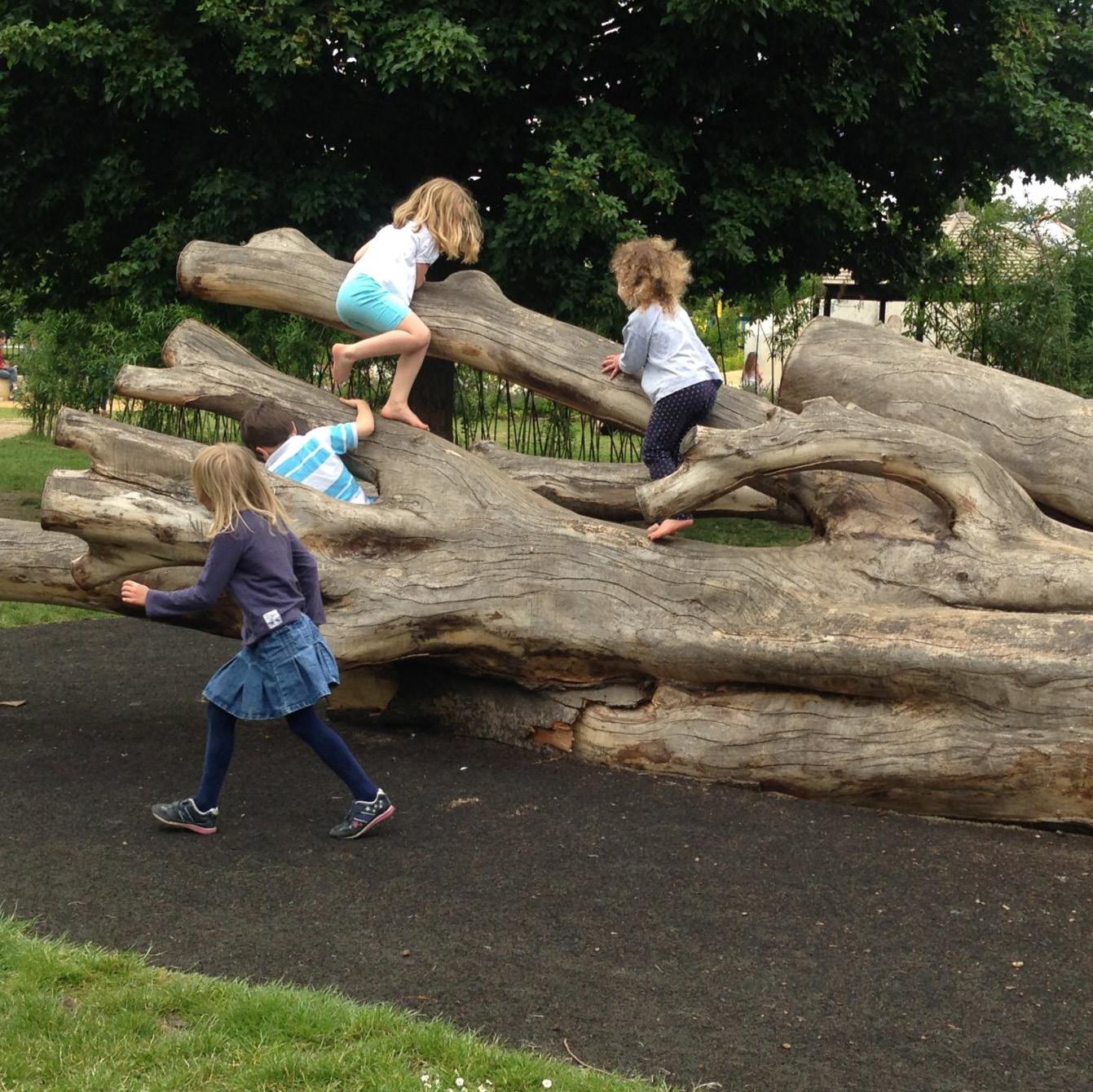
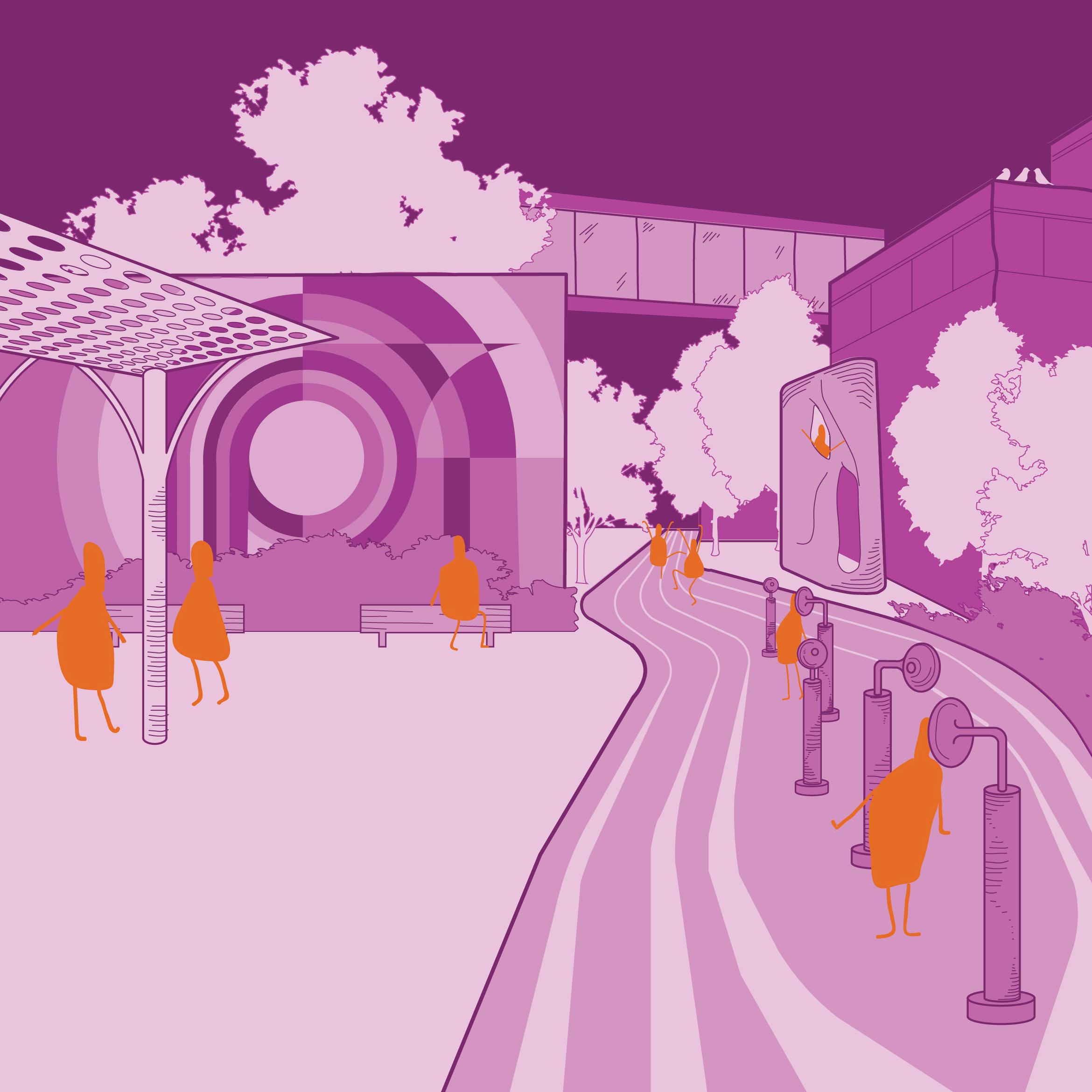
A play affordance is a physical object that invites interaction, and there is no better example than public art. Art is a visual delight and spark for physical and sensory play. Sculptures invite climbing, paving patterns encourage exploring, and sound installations foster social connection.
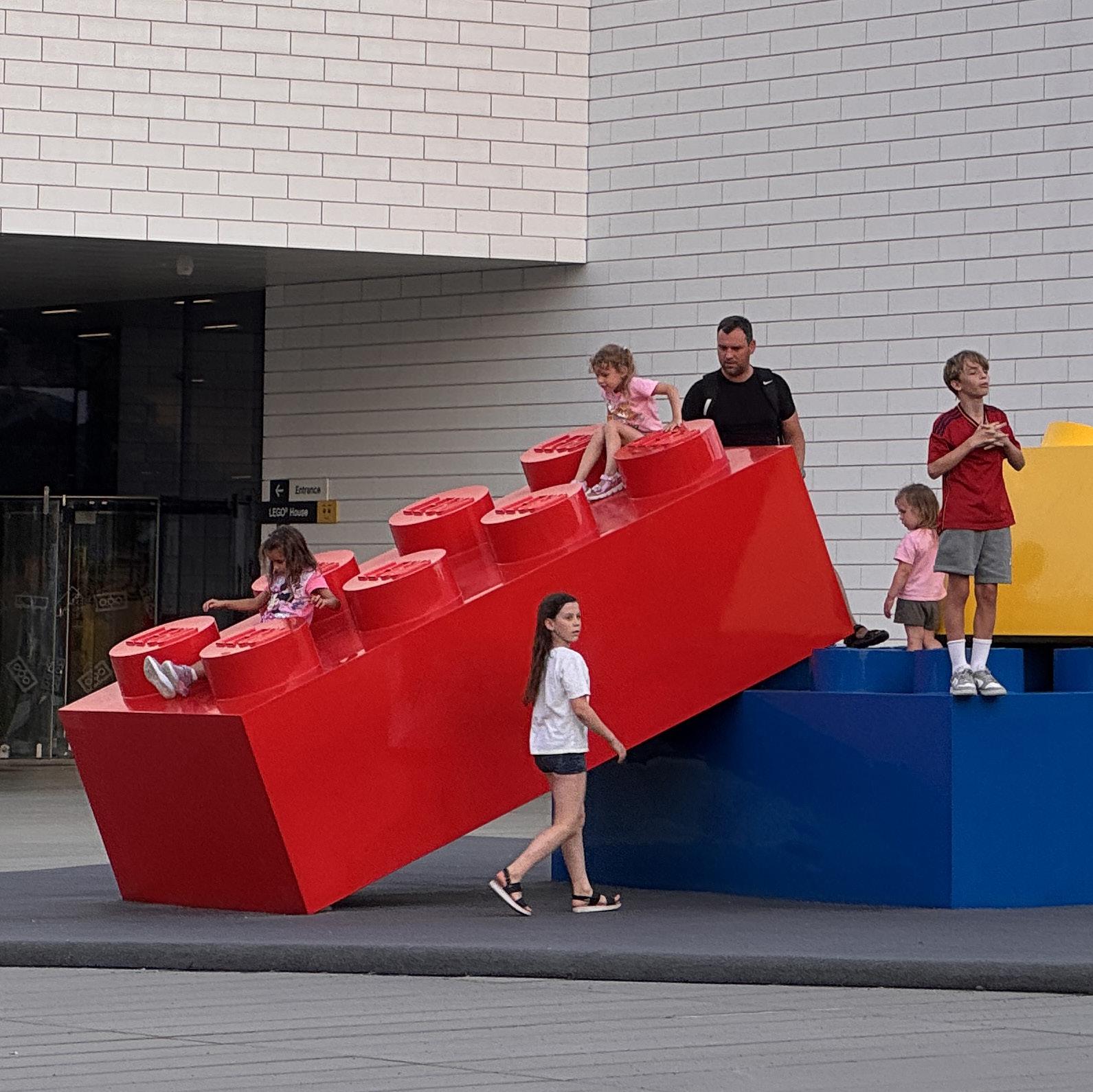
Include interactive art that encourages climbing, sliding, perching, and balancing
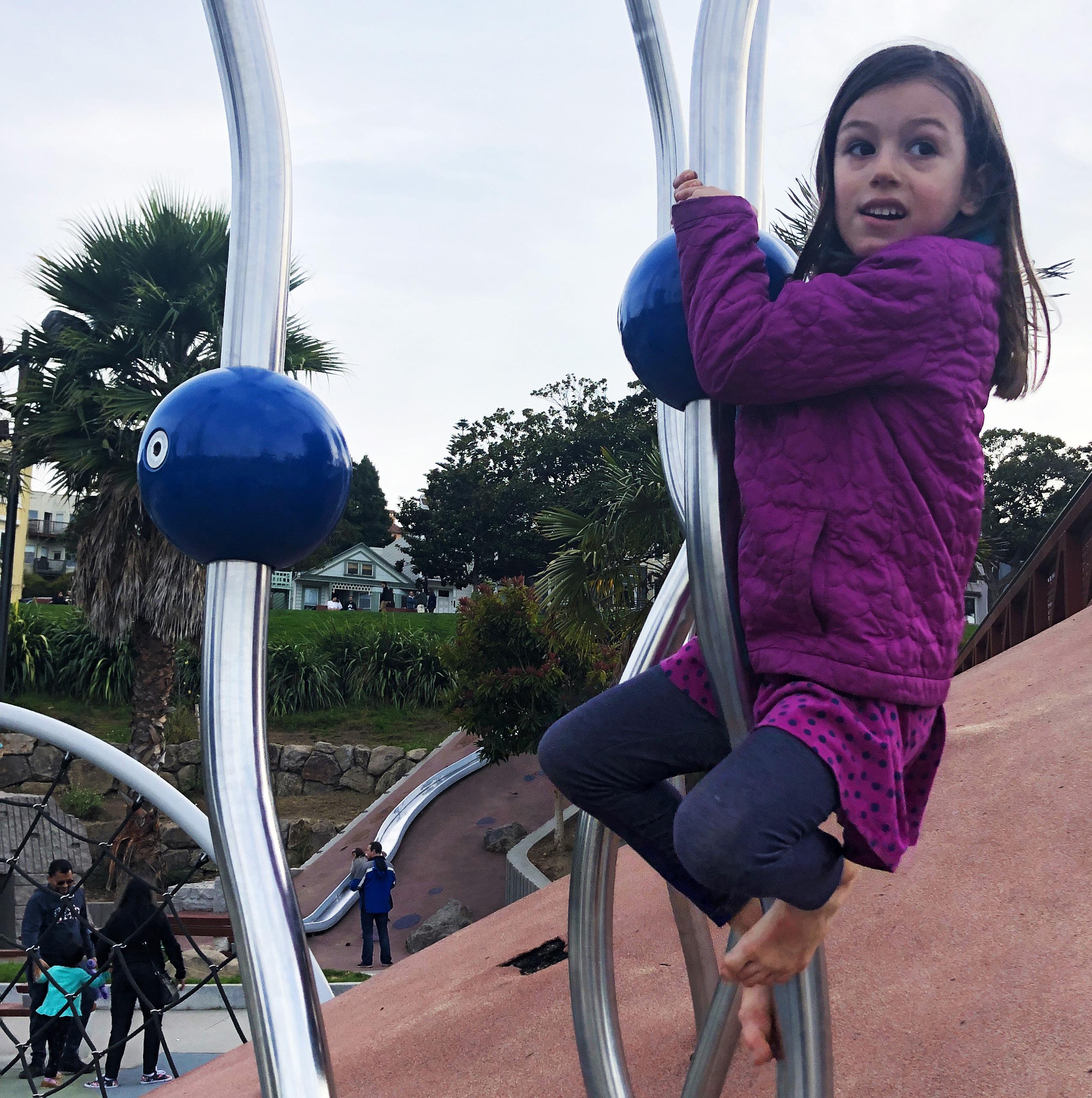
Select shade and light fixtures that create unique shadows and immersive experiences
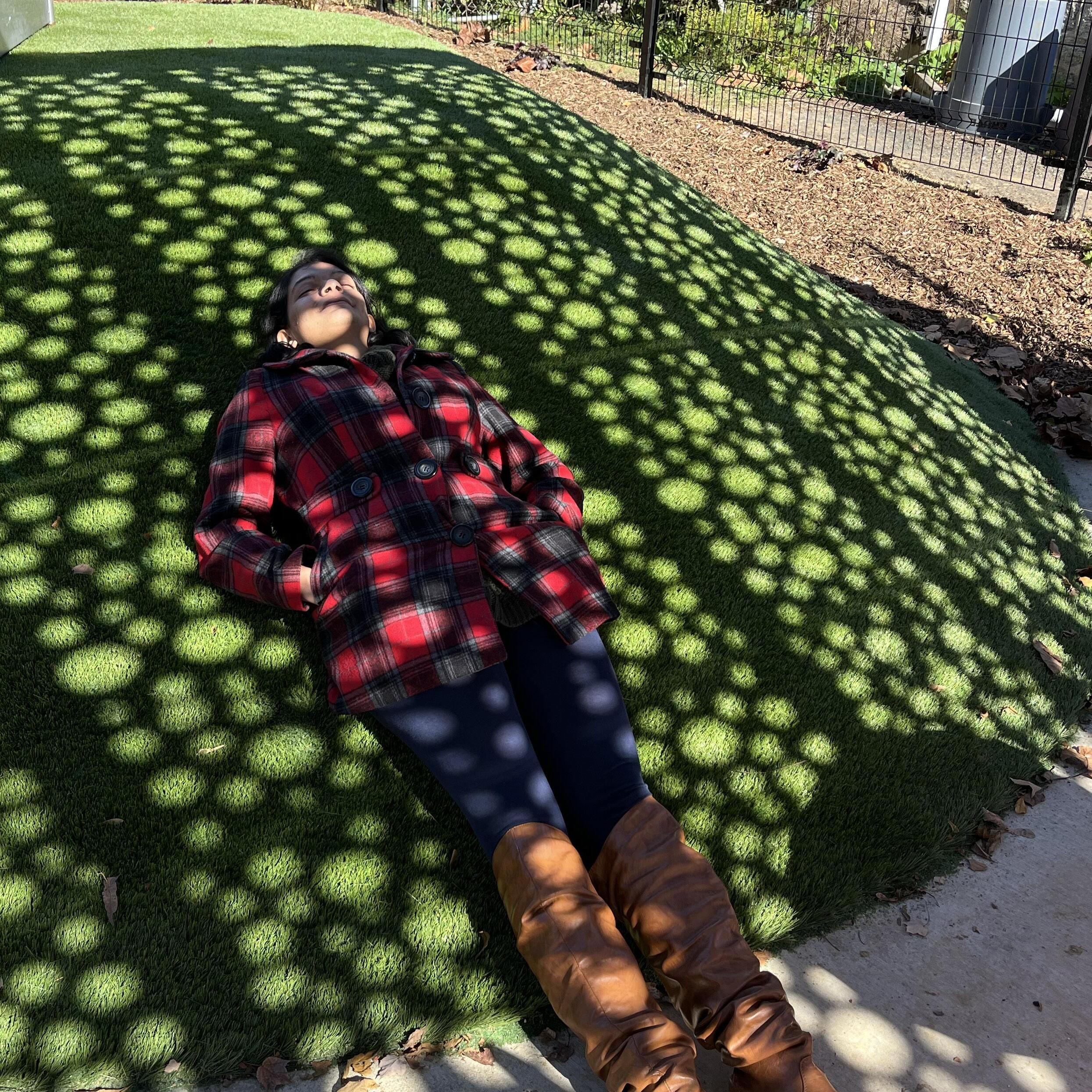
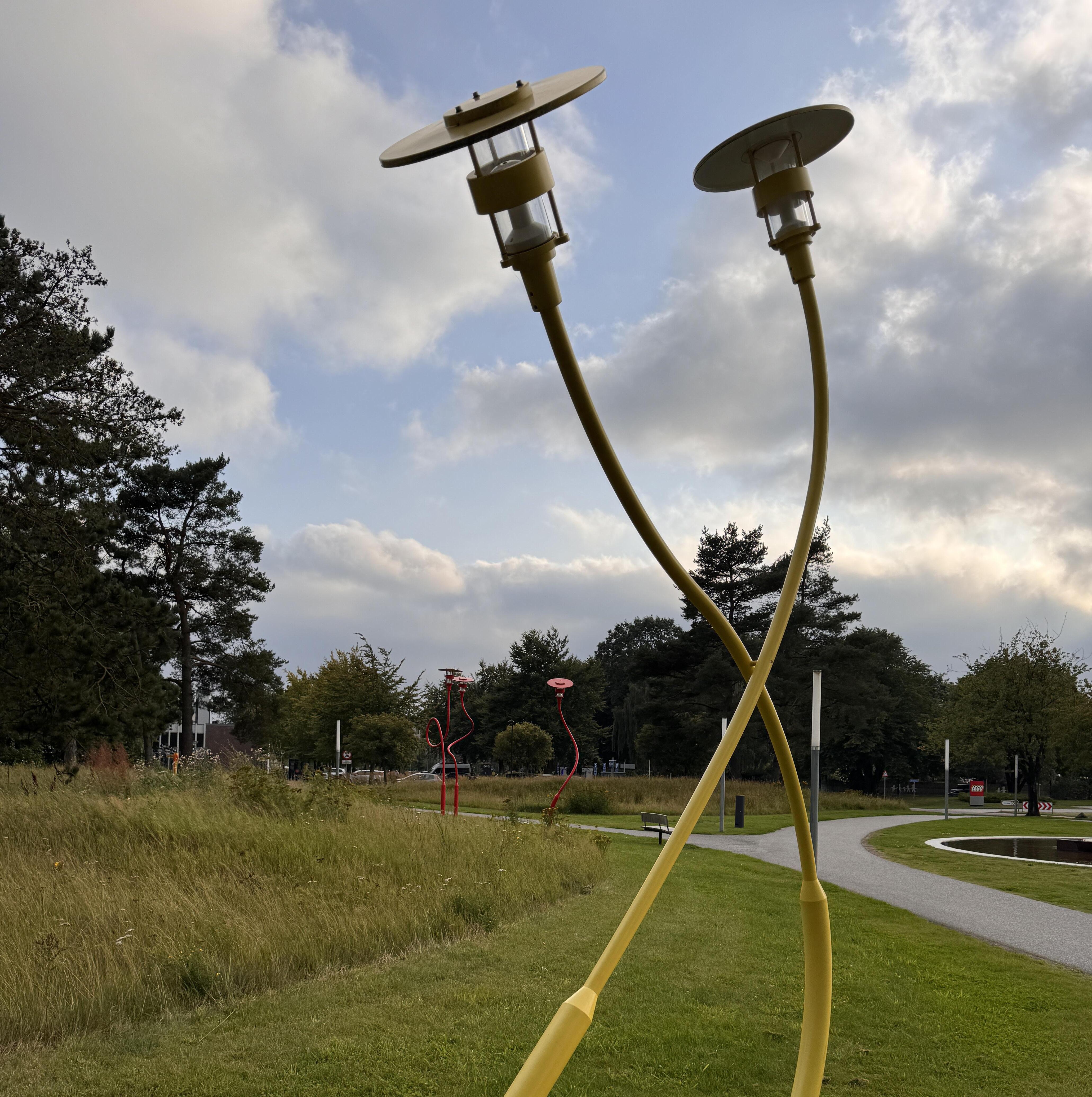
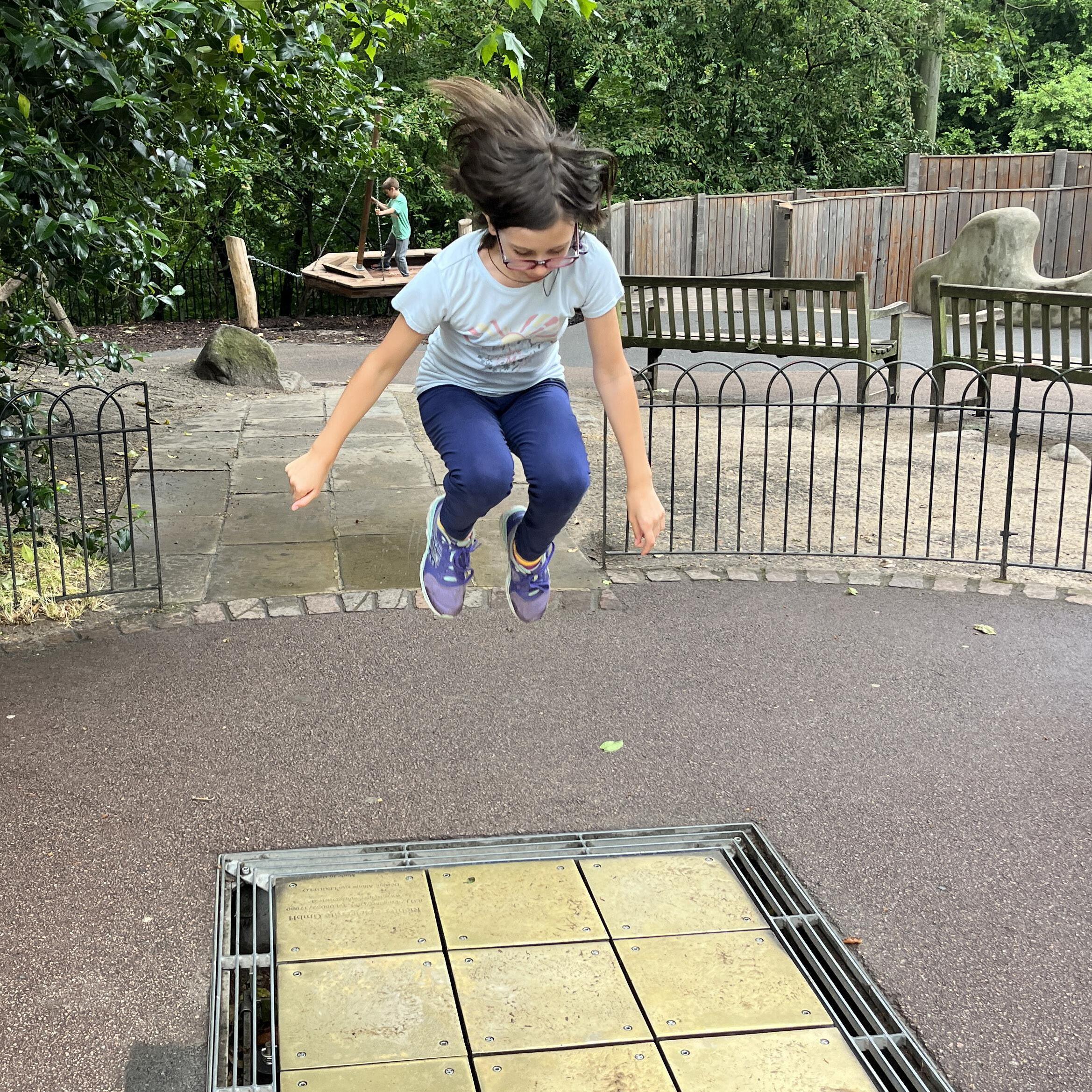
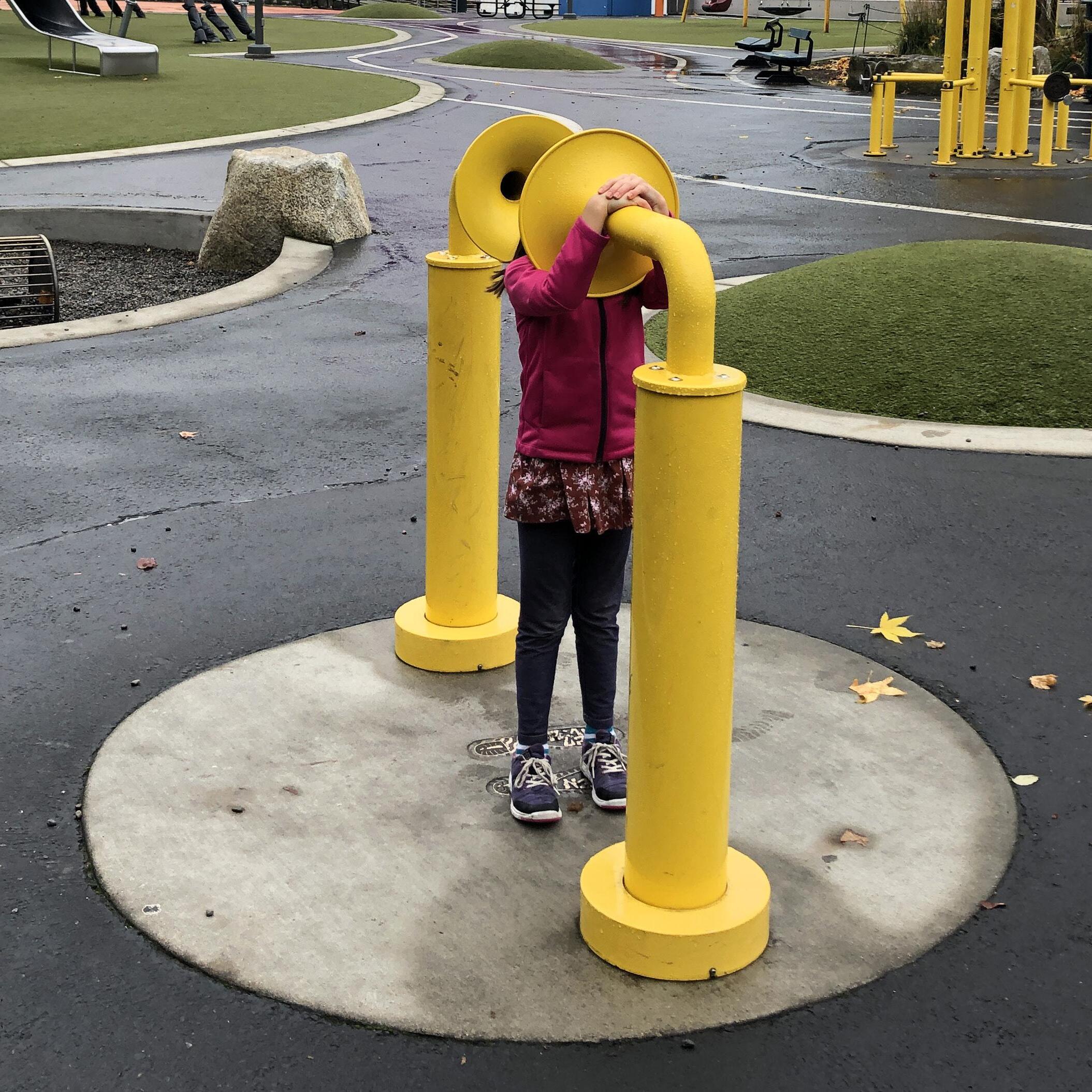
Add elements that create sound or resonance to delight visitors of all ages
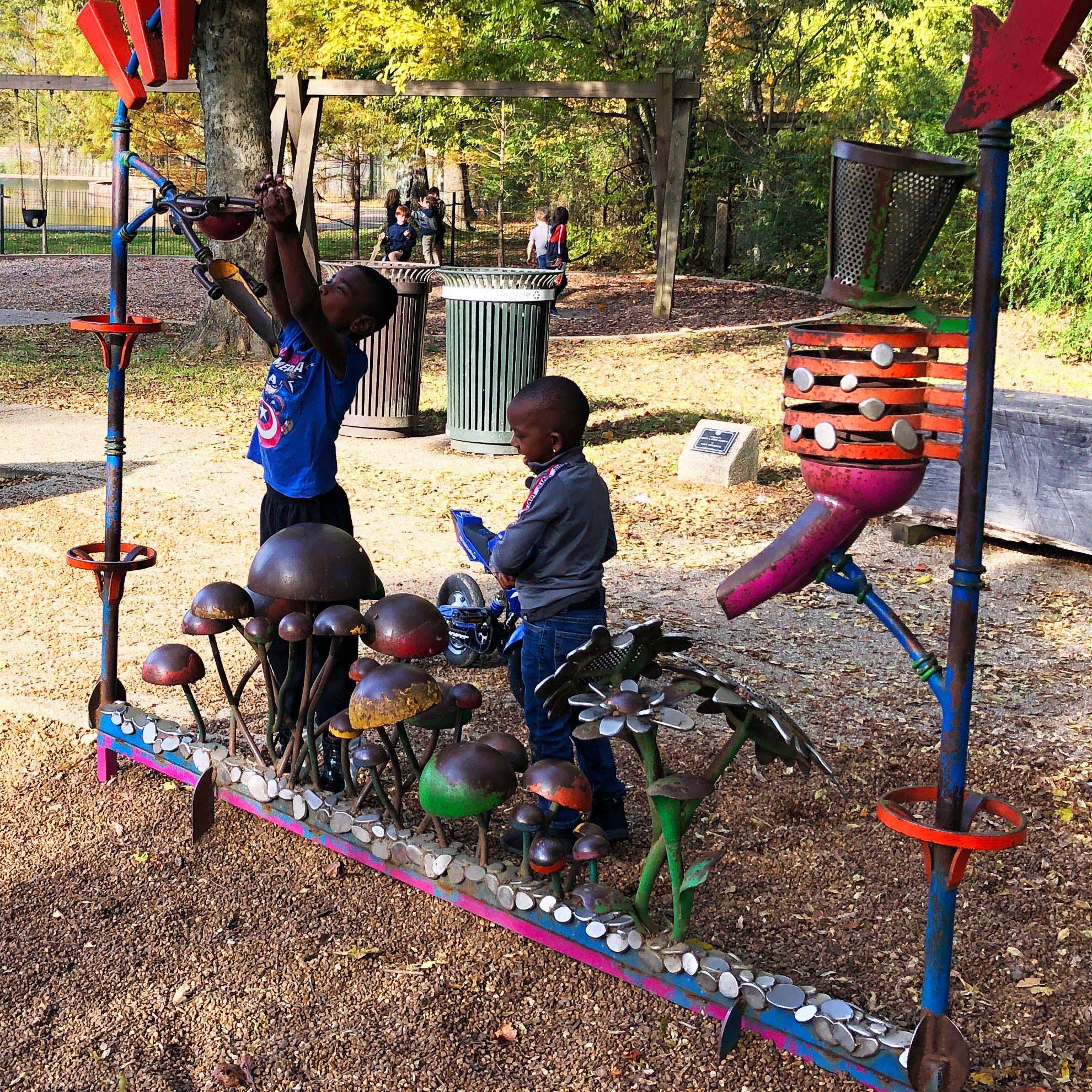
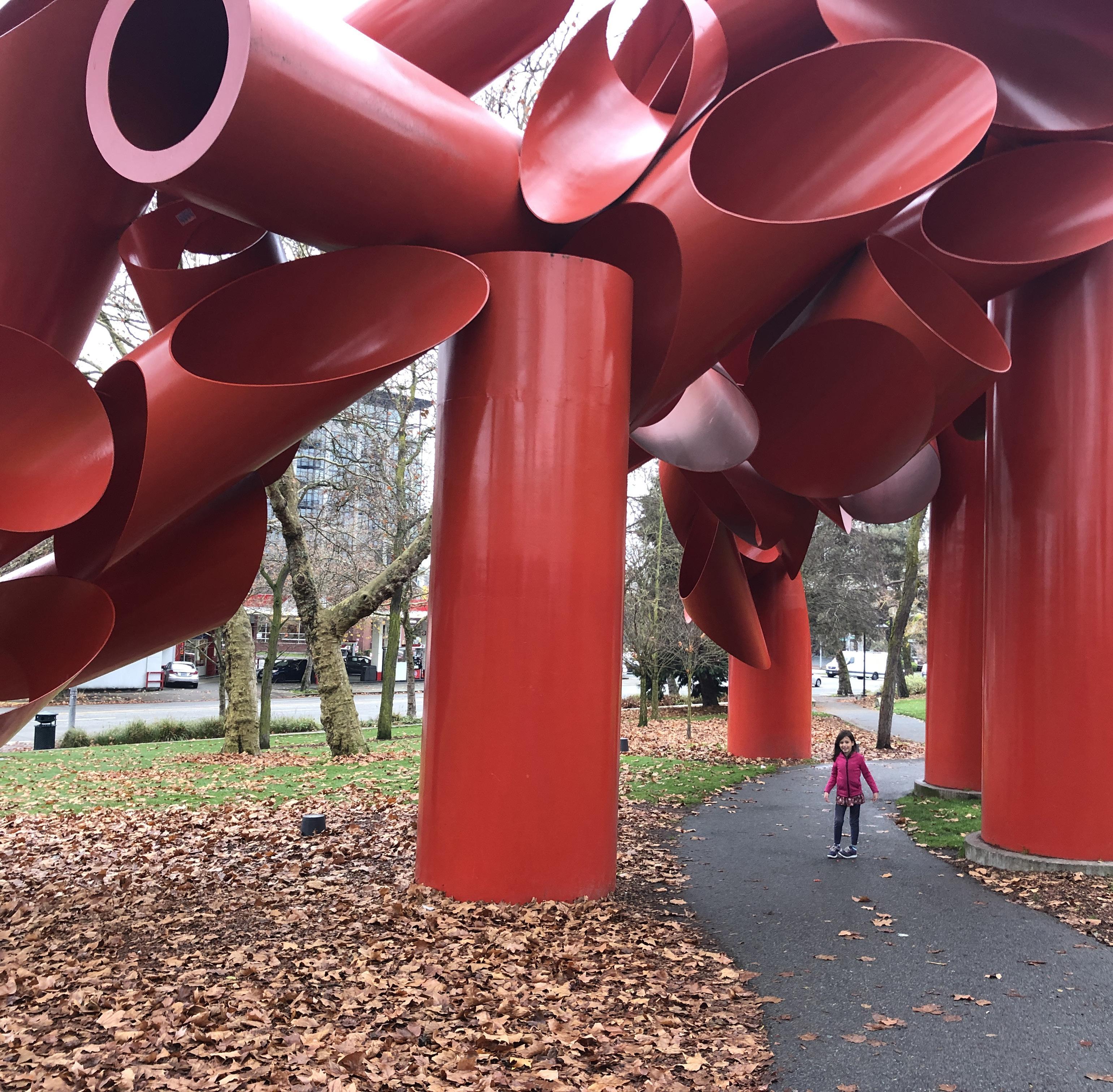
Place art on surrounding walls to create a playful, welcoming space
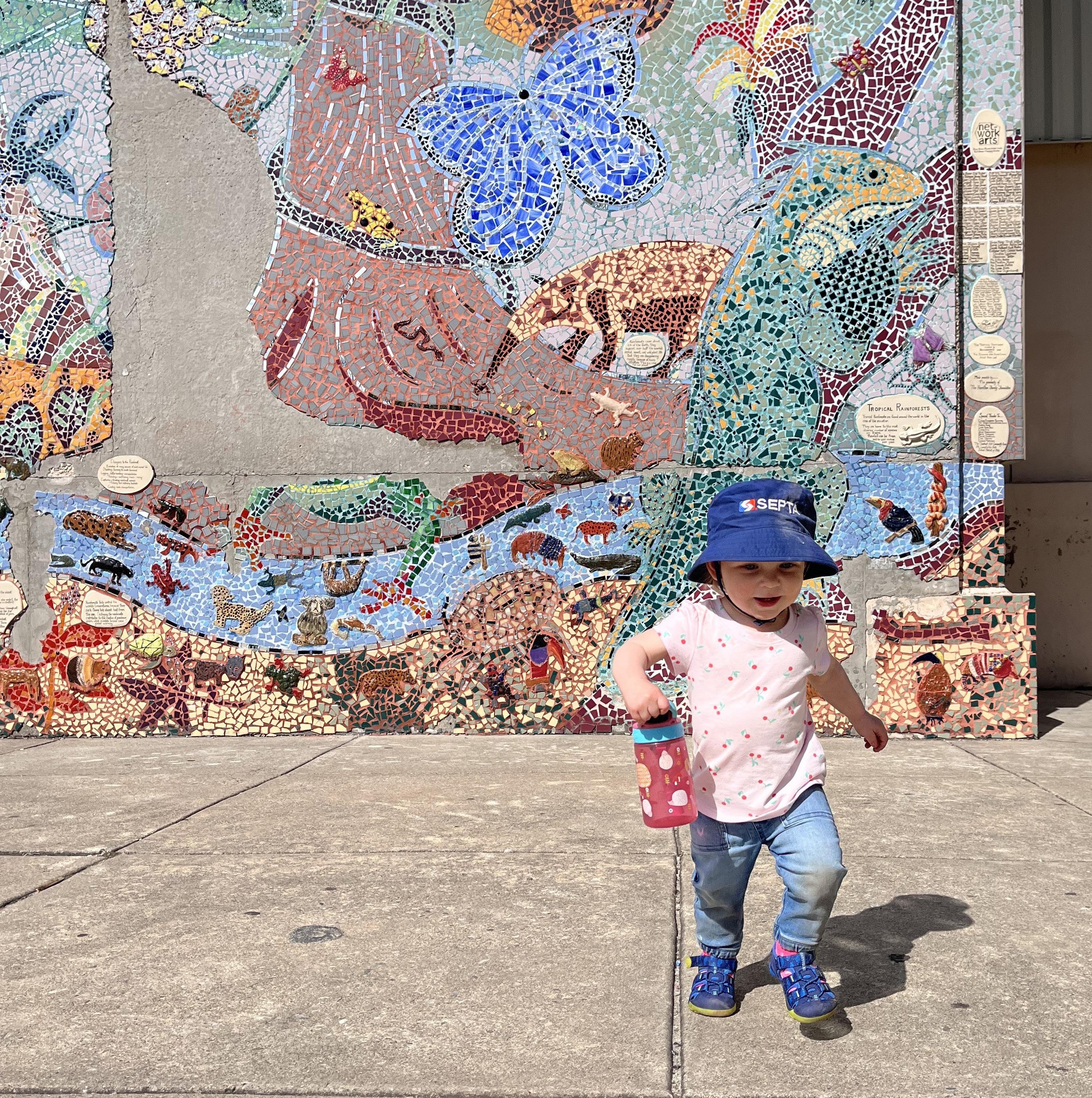
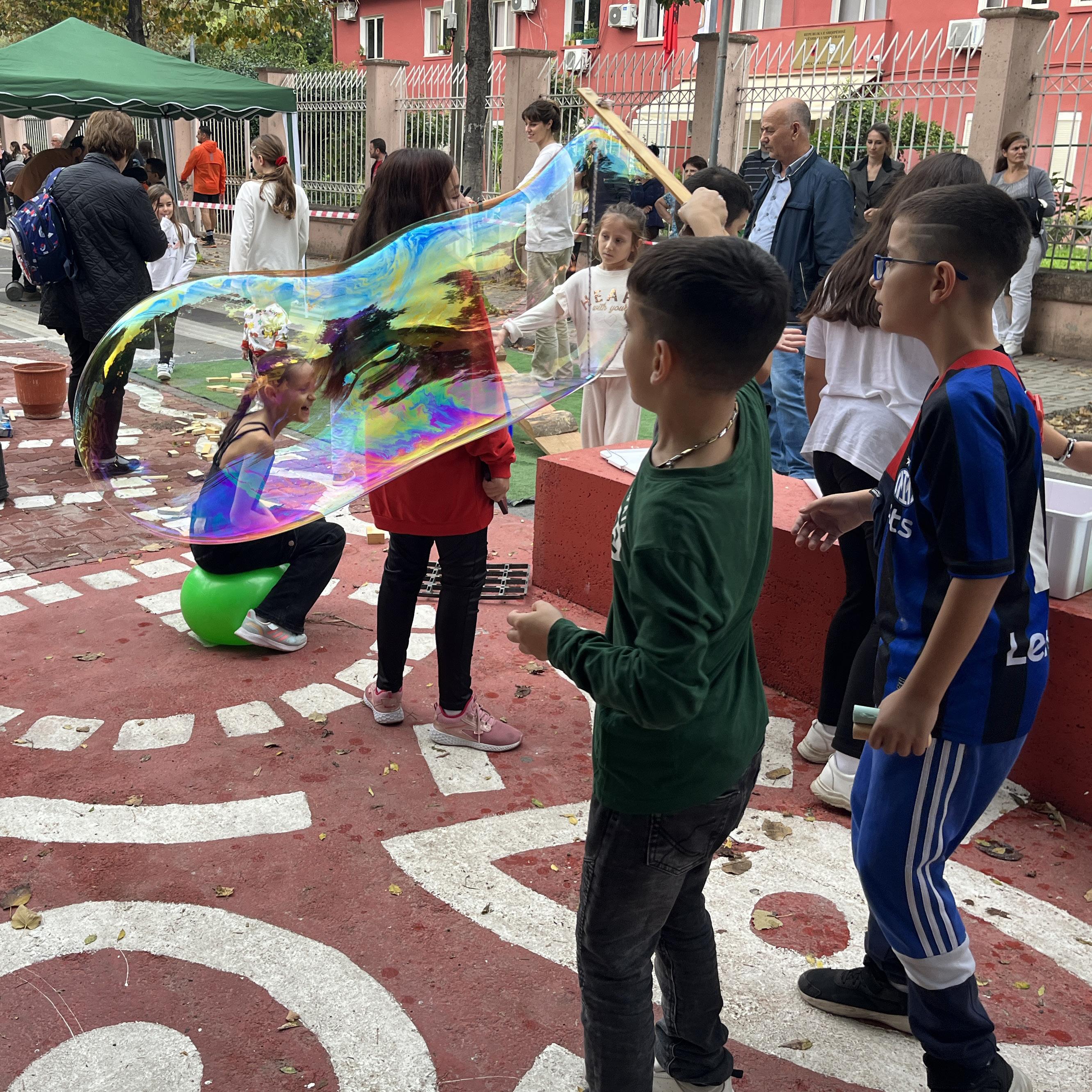
Activate paving to encourage wandering, invite interaction, and add whimsy
Invite visitors to build connections though interactive, immersive installations
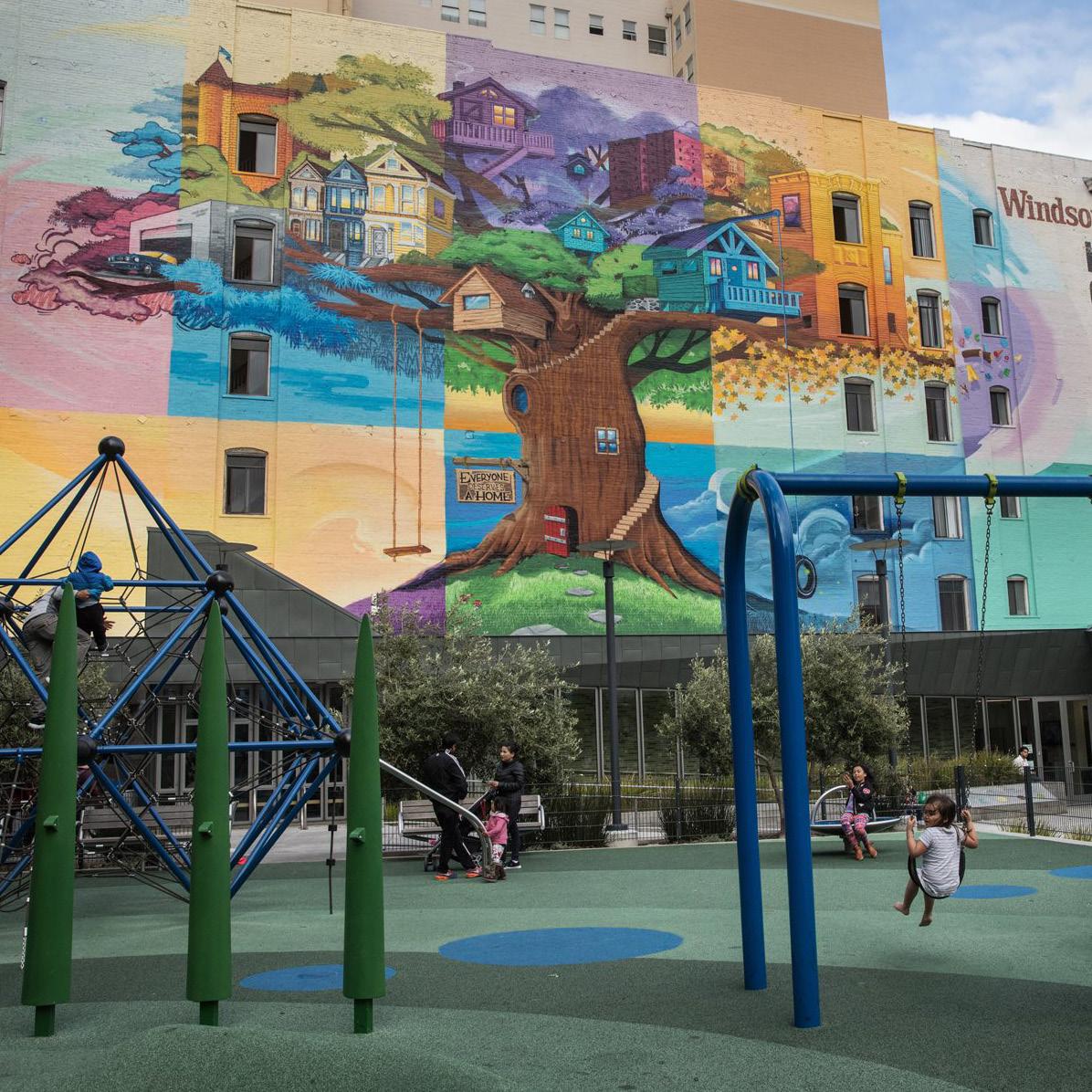
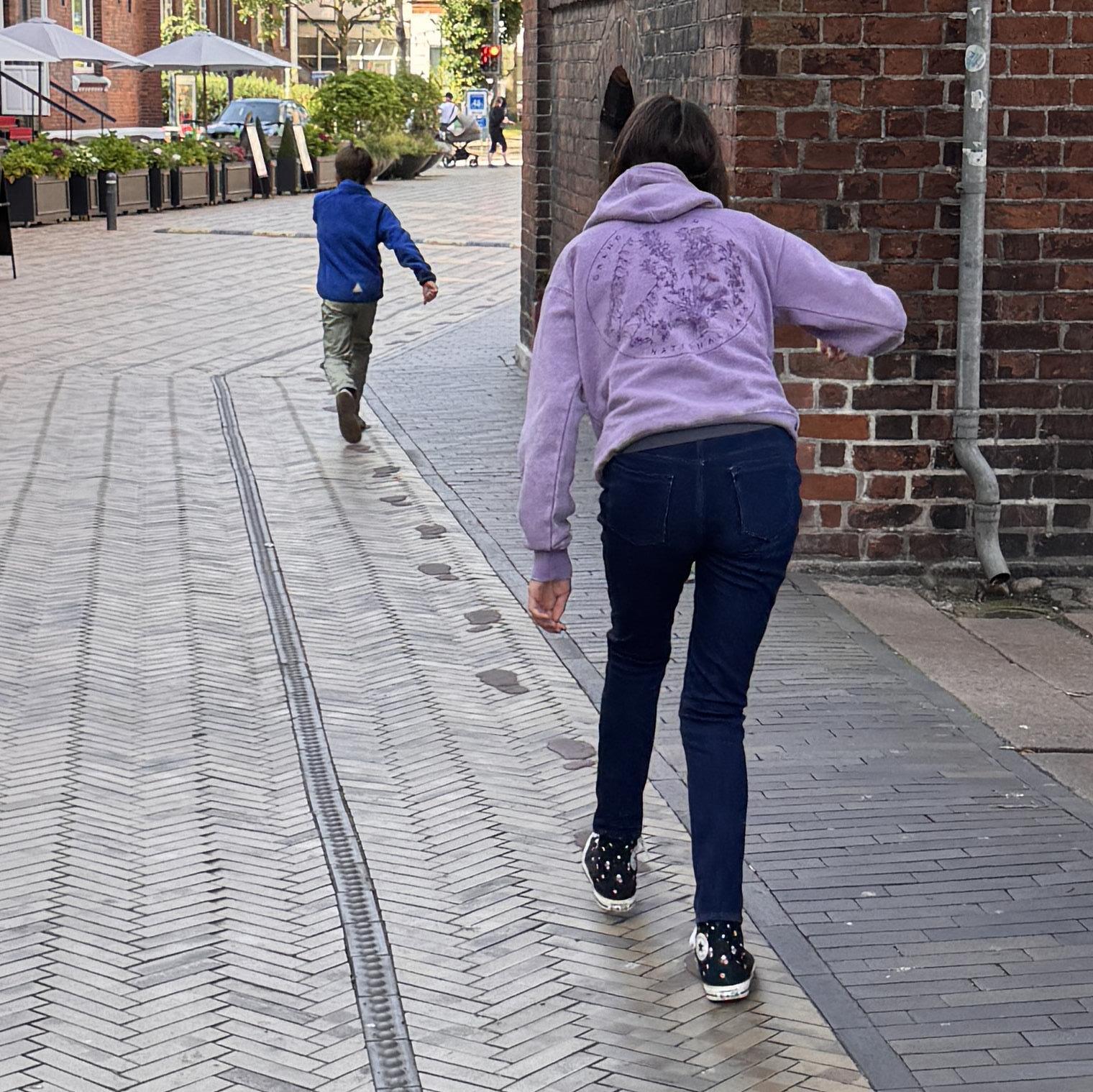
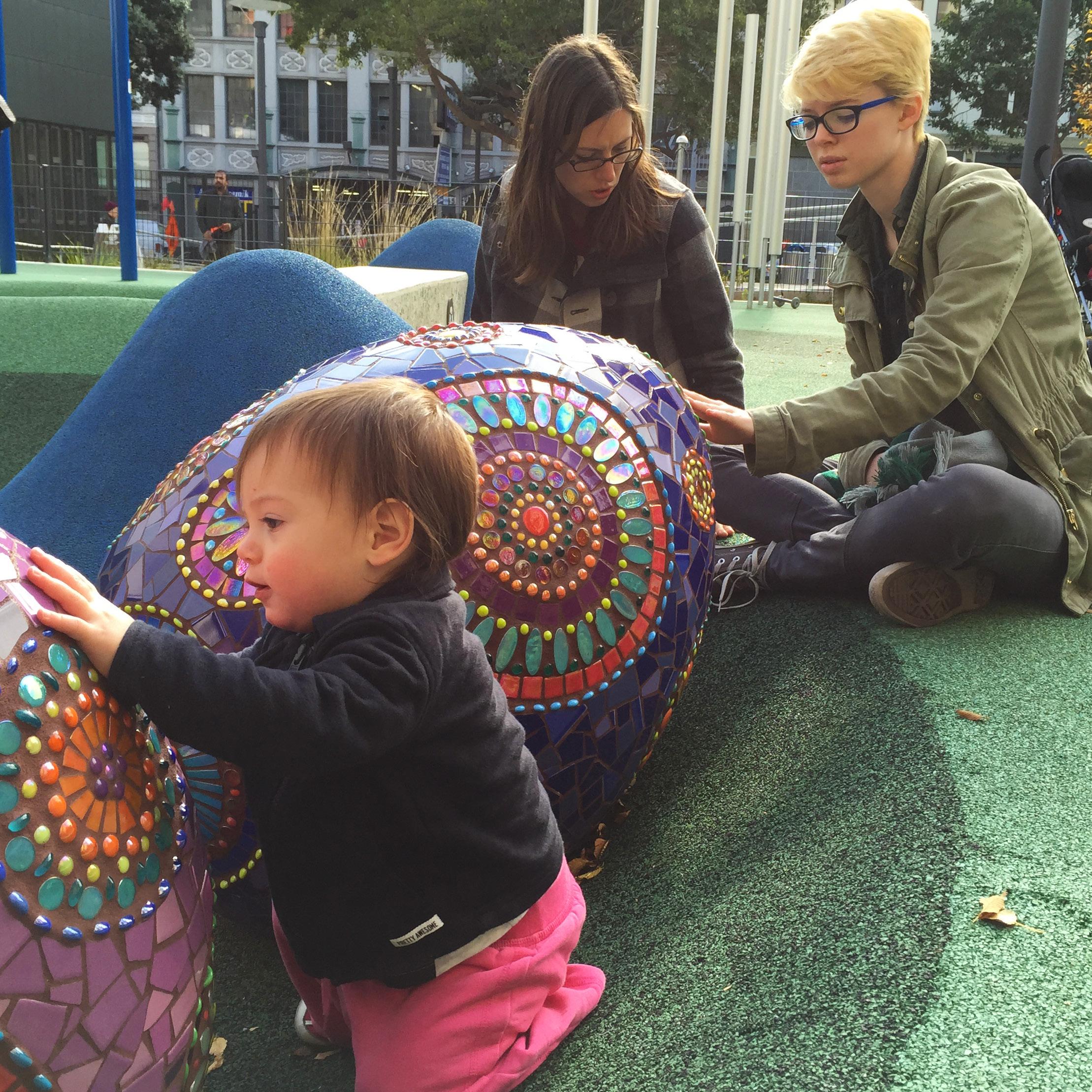
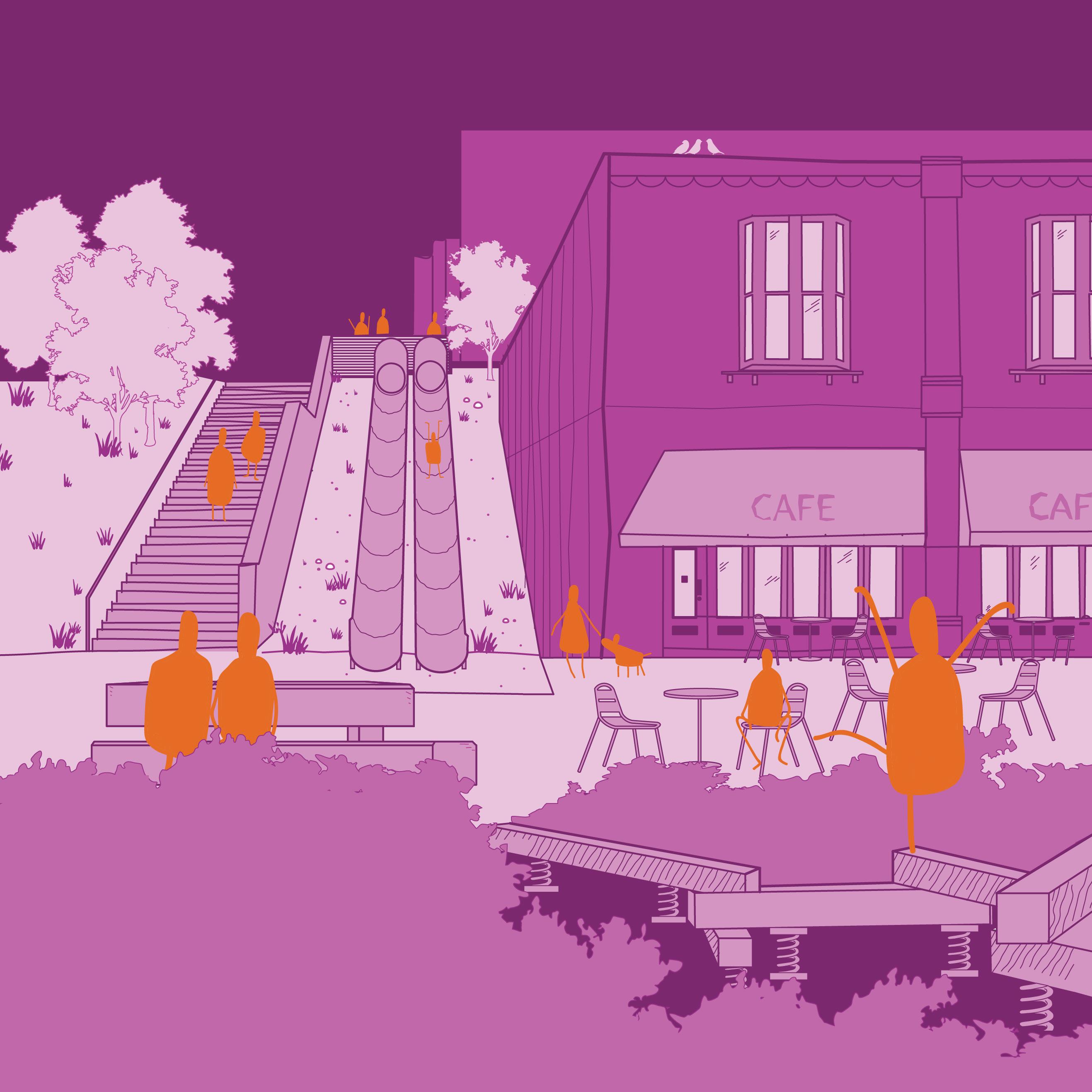
An unexpected slide, swing, or bouncer in public space is a play affordance that invites people of all ages to take a break, find their inner child, and play. Breaking equipment out of the traditional playground box makes cities more fun and playful for all.
Use slides as a playful way to activate grade changes and spark more ‘woohoo’
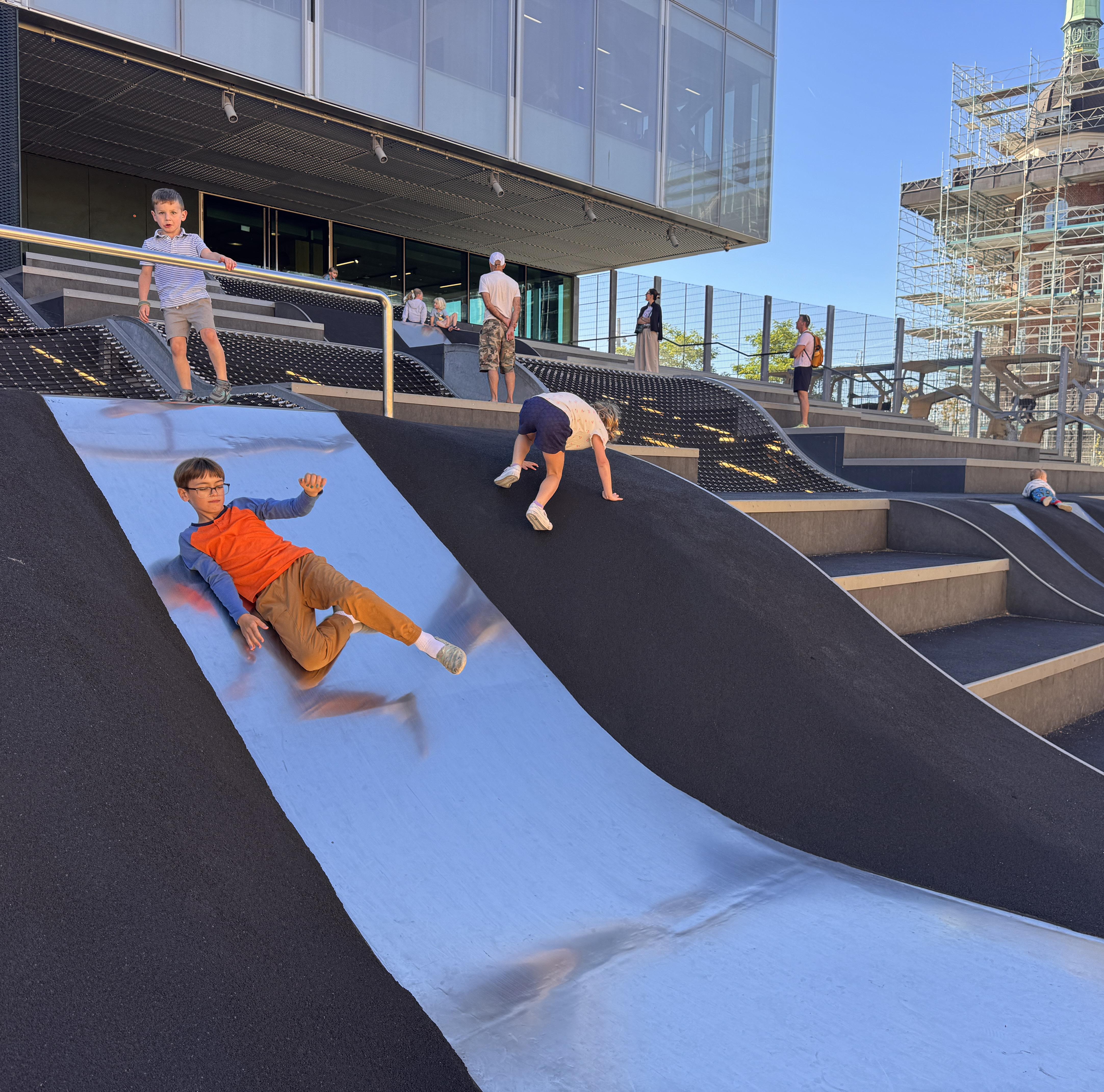
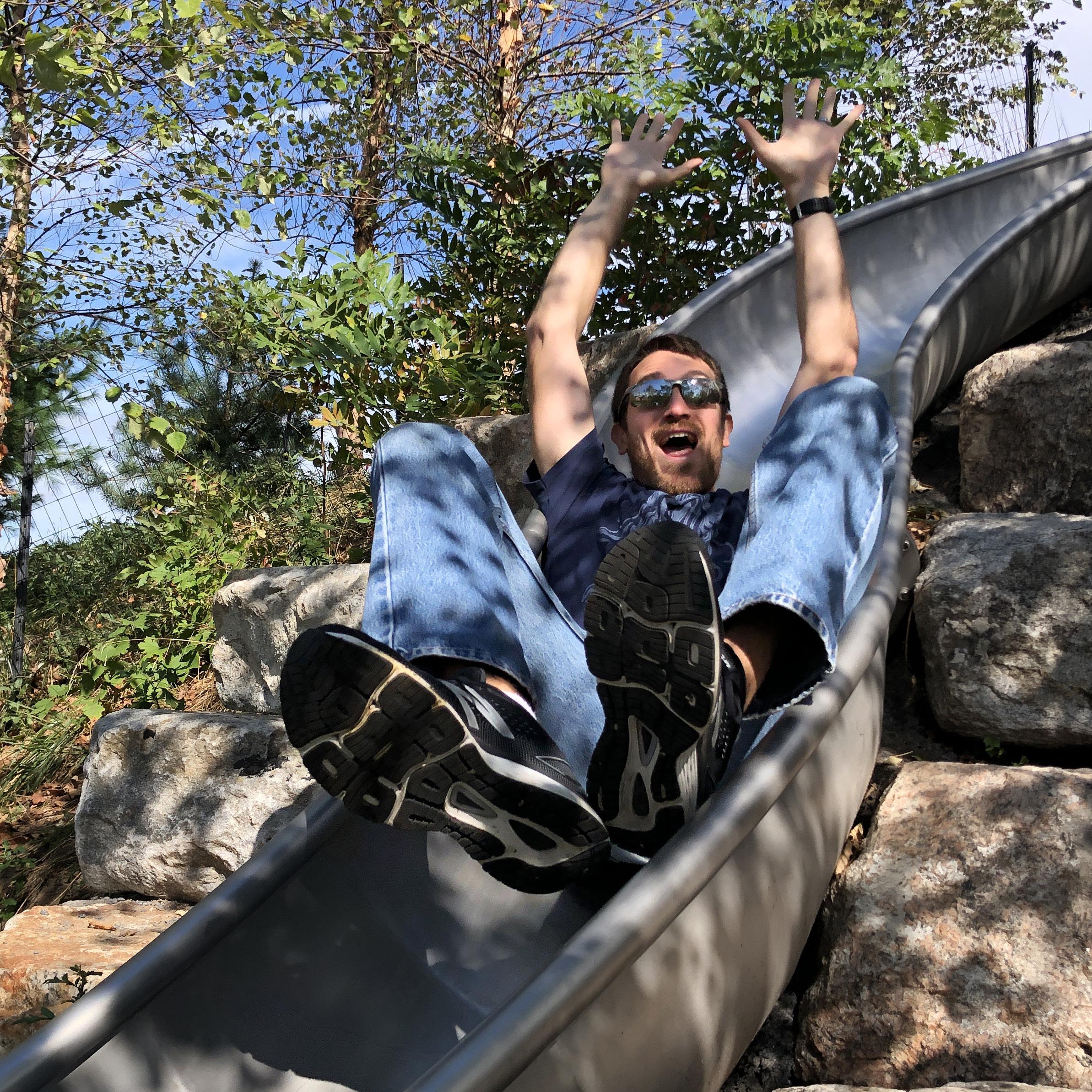
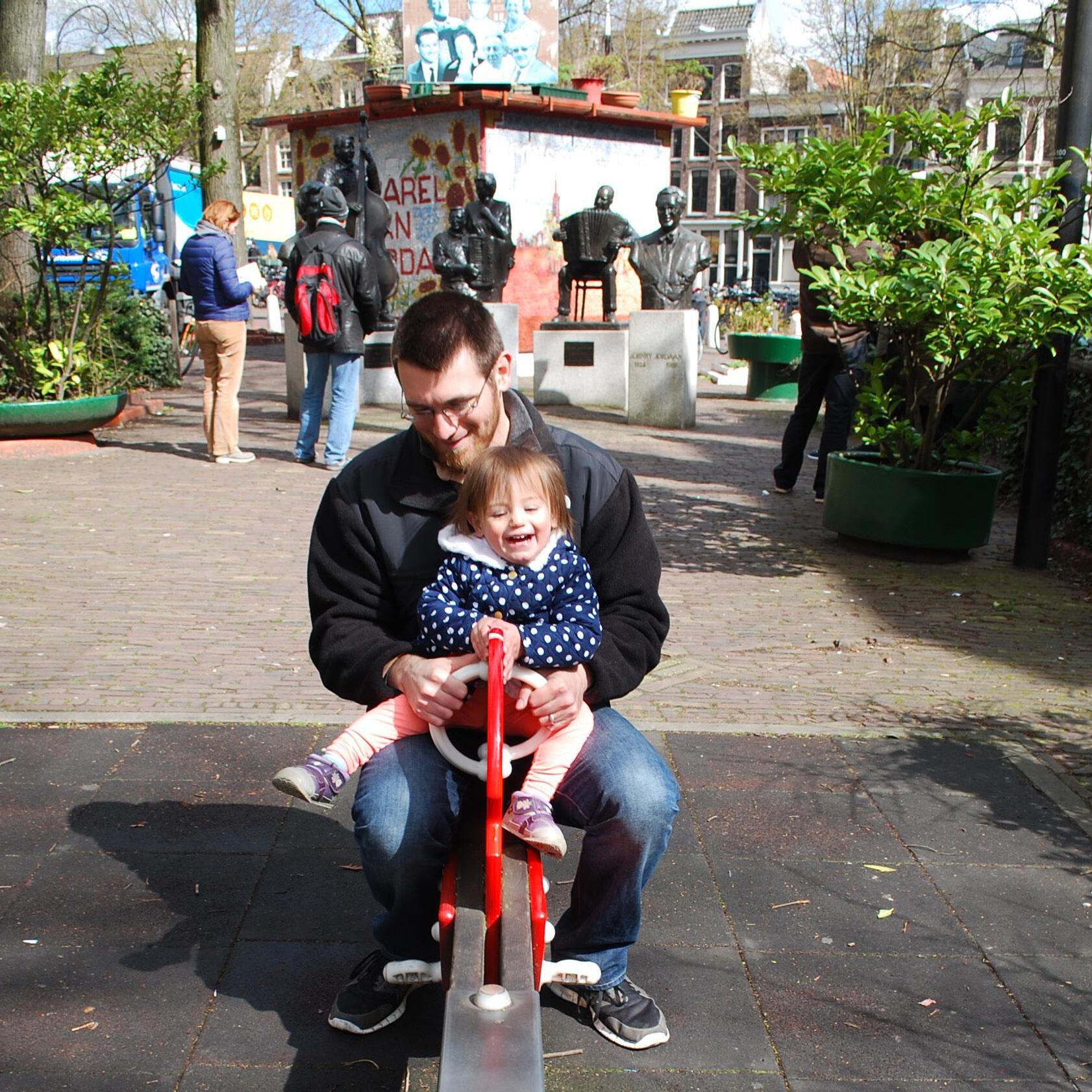
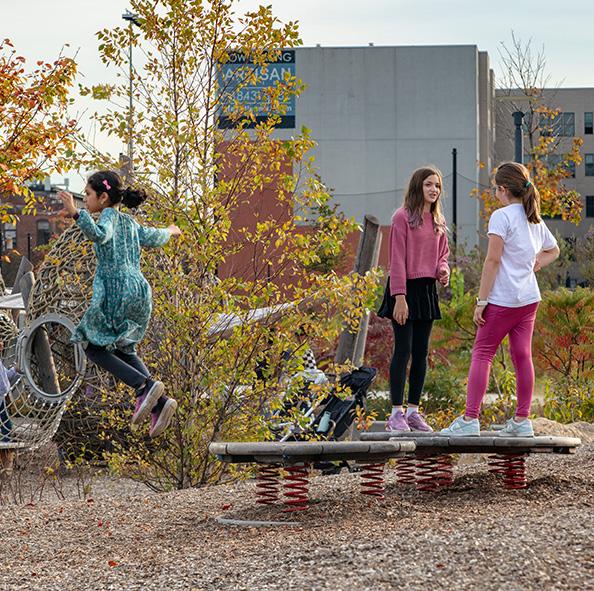
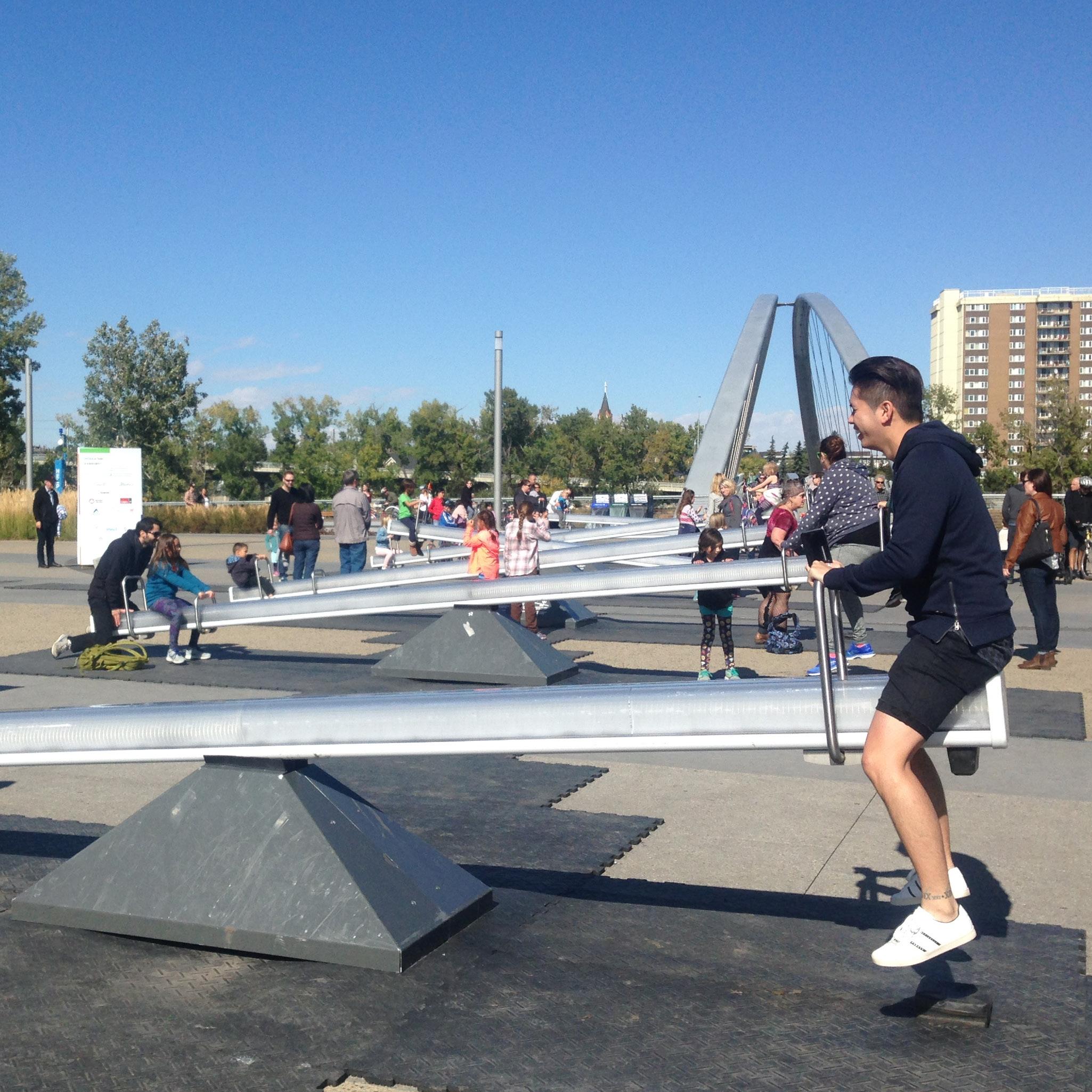
Encourage social interaction with friends or strangers by adding seesaws
Include bouncers as a small-footprint feature to invite movement and fun
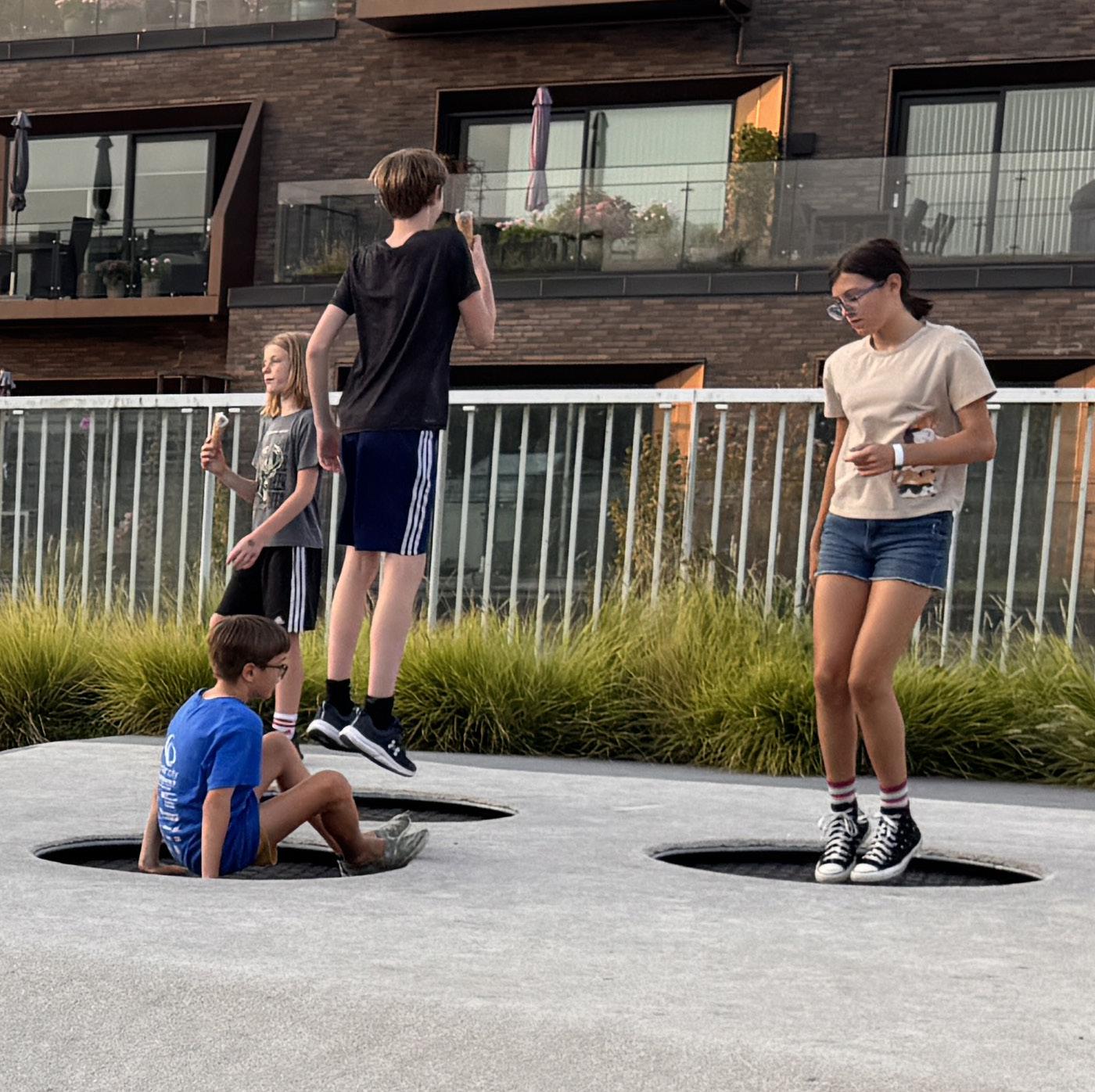
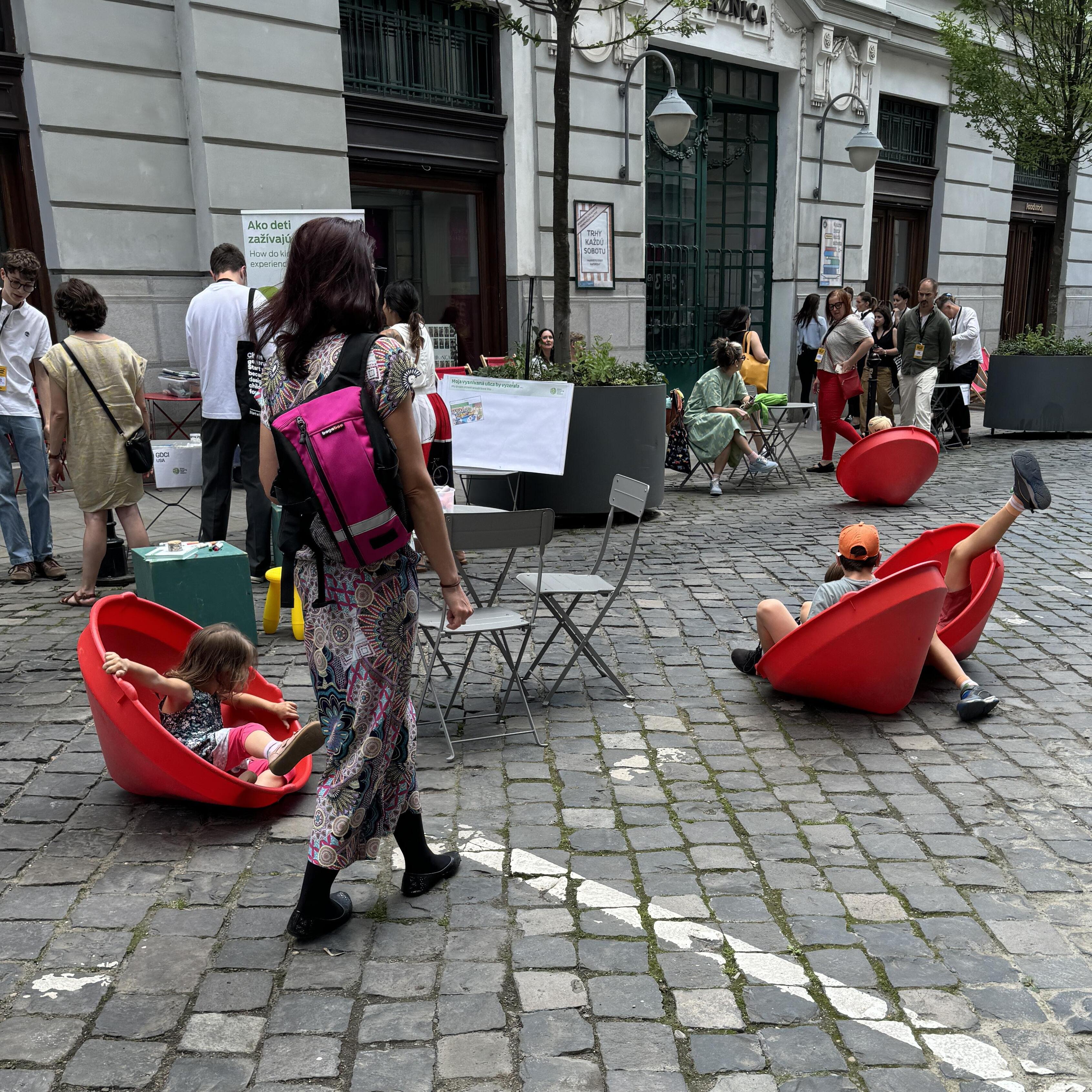
Introduce spinners, either fixed or moveable, for sensory stimulation and joy

Add sculptural, openended climbers for play experiences for all ages
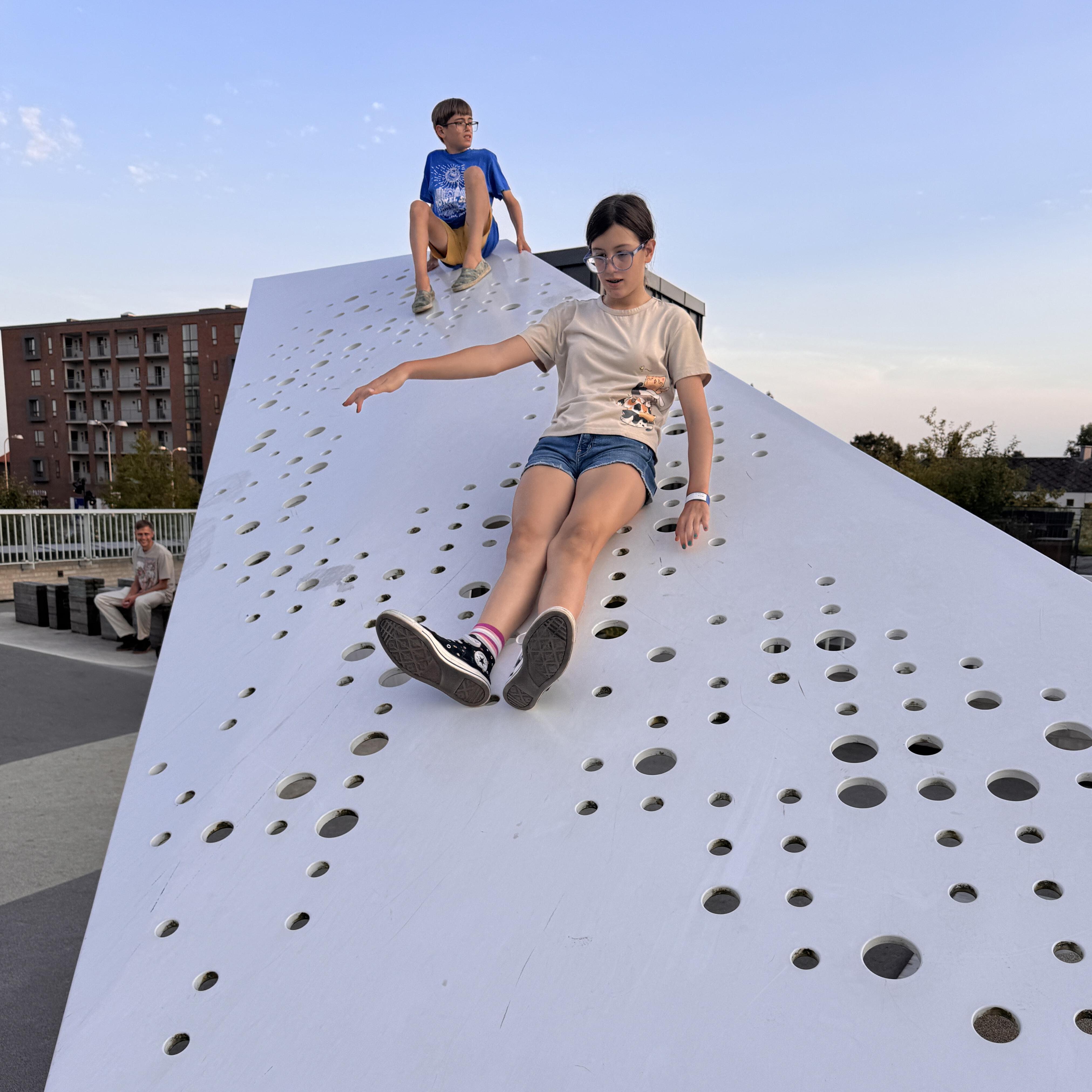
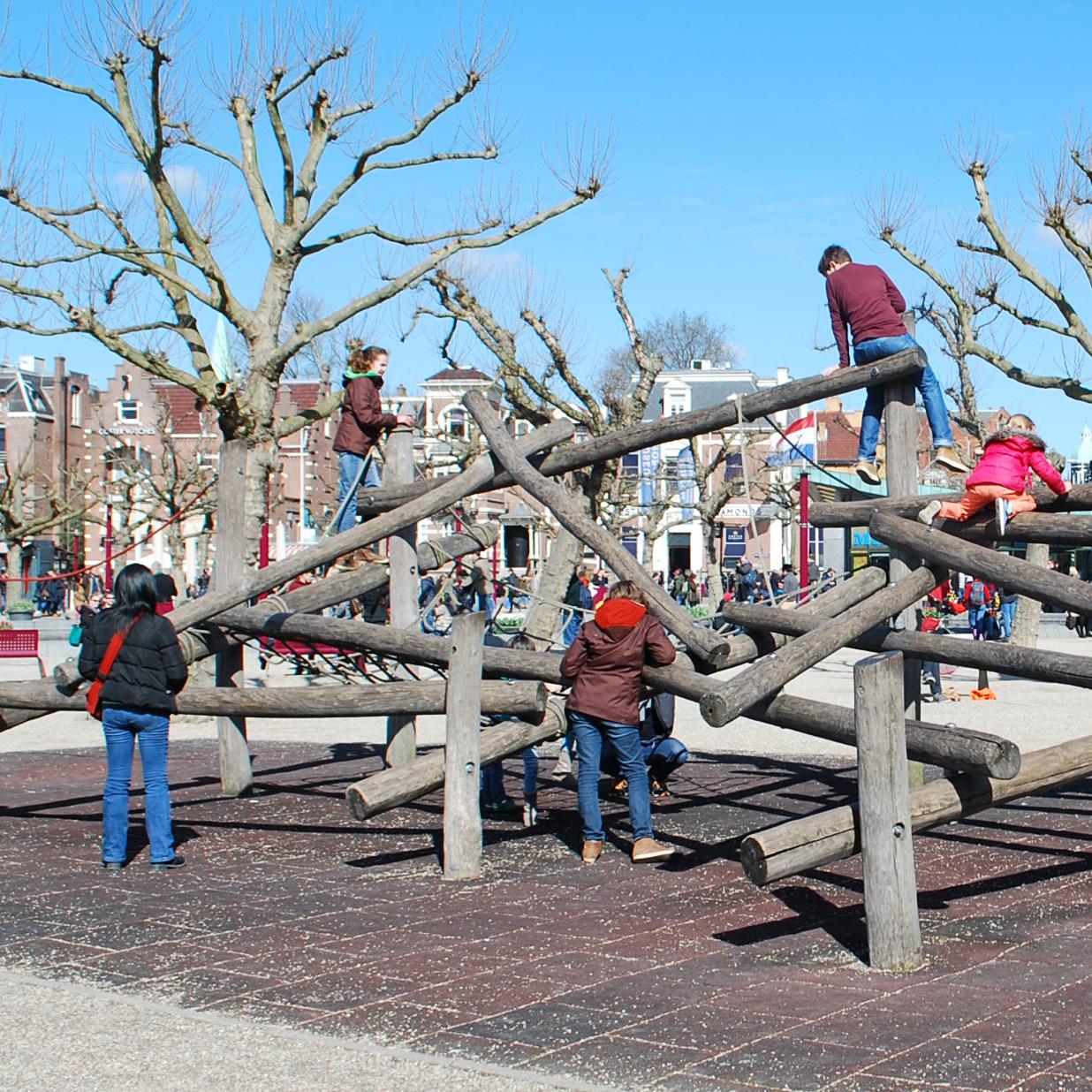
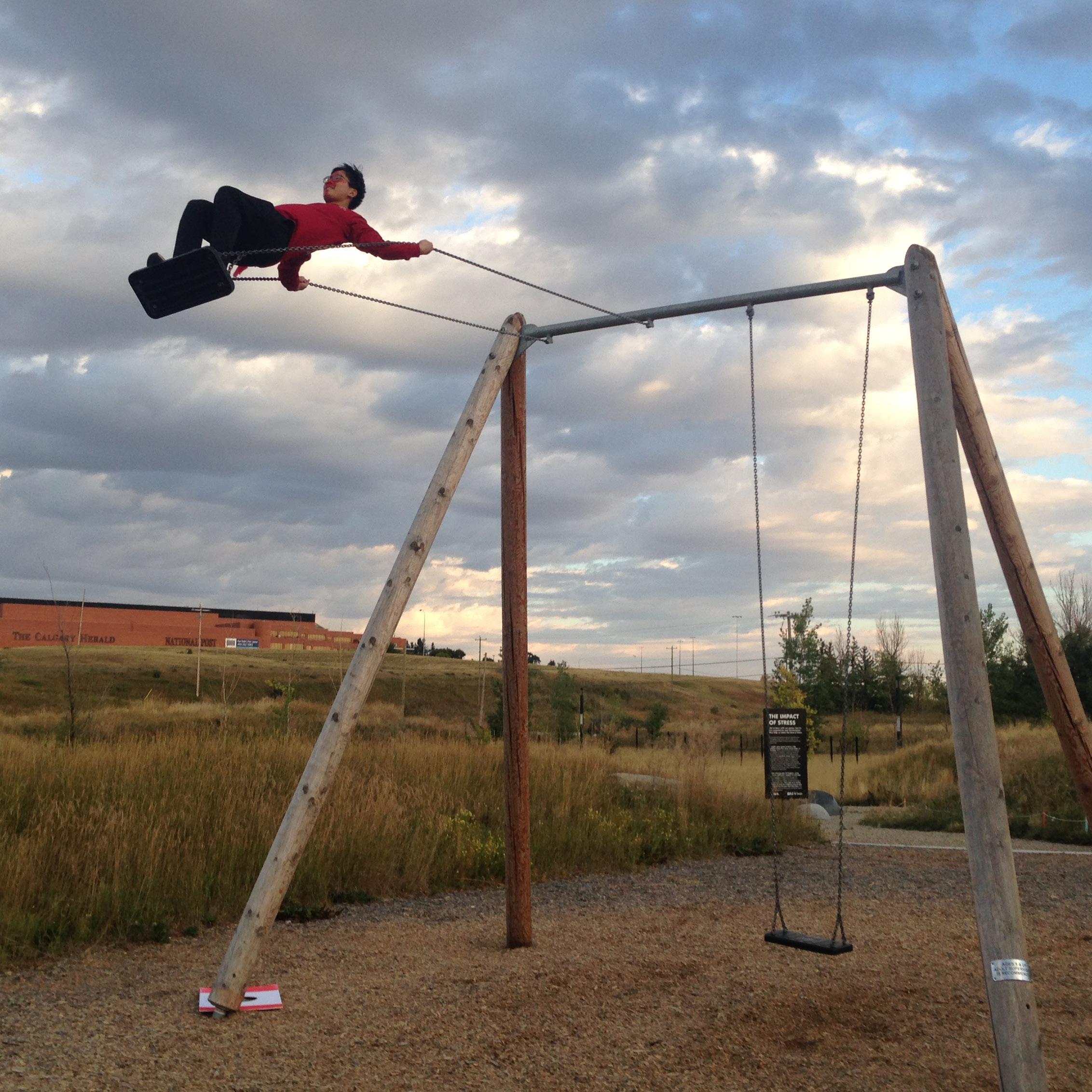
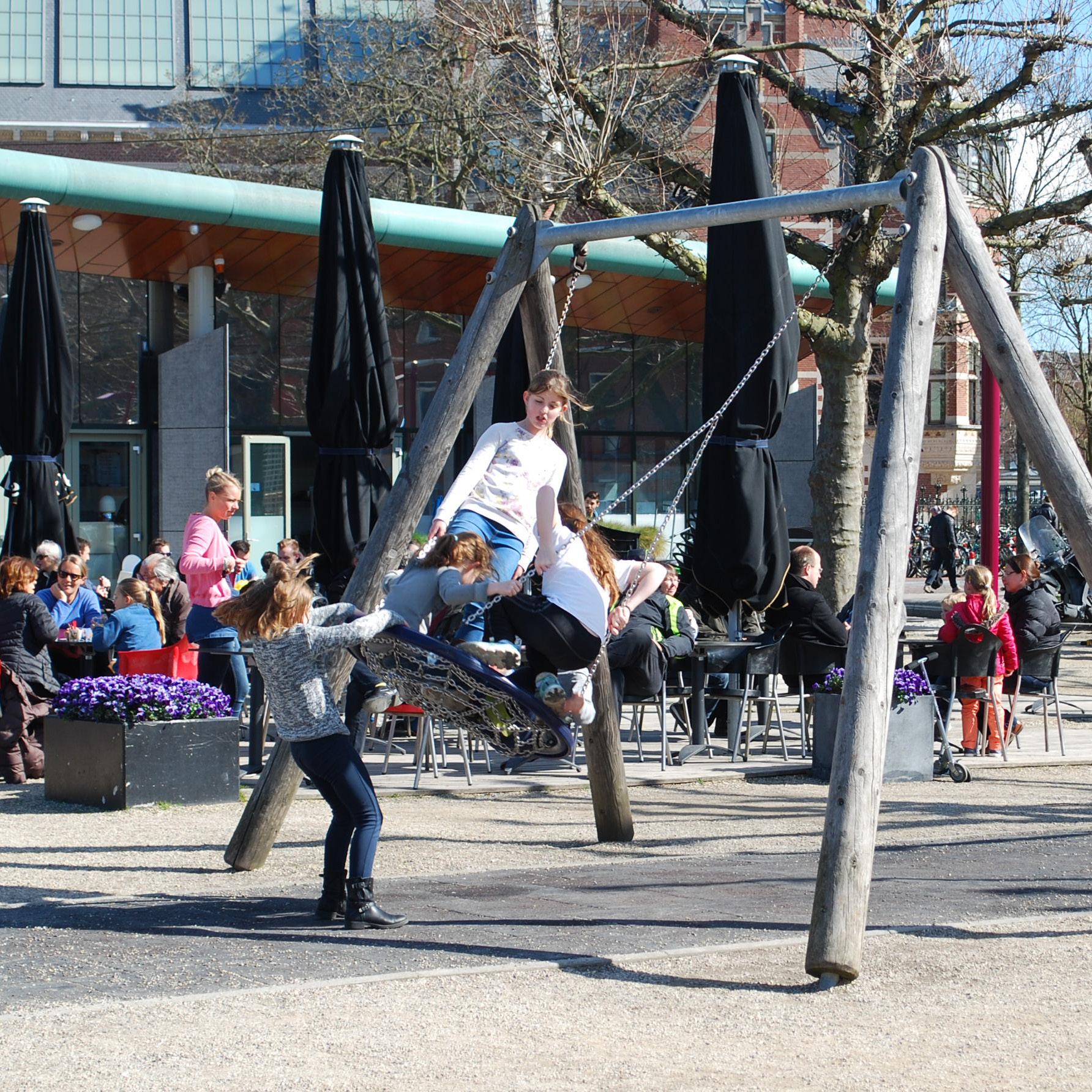
Integrate swings into every day spaces to foster and support intergenerational play
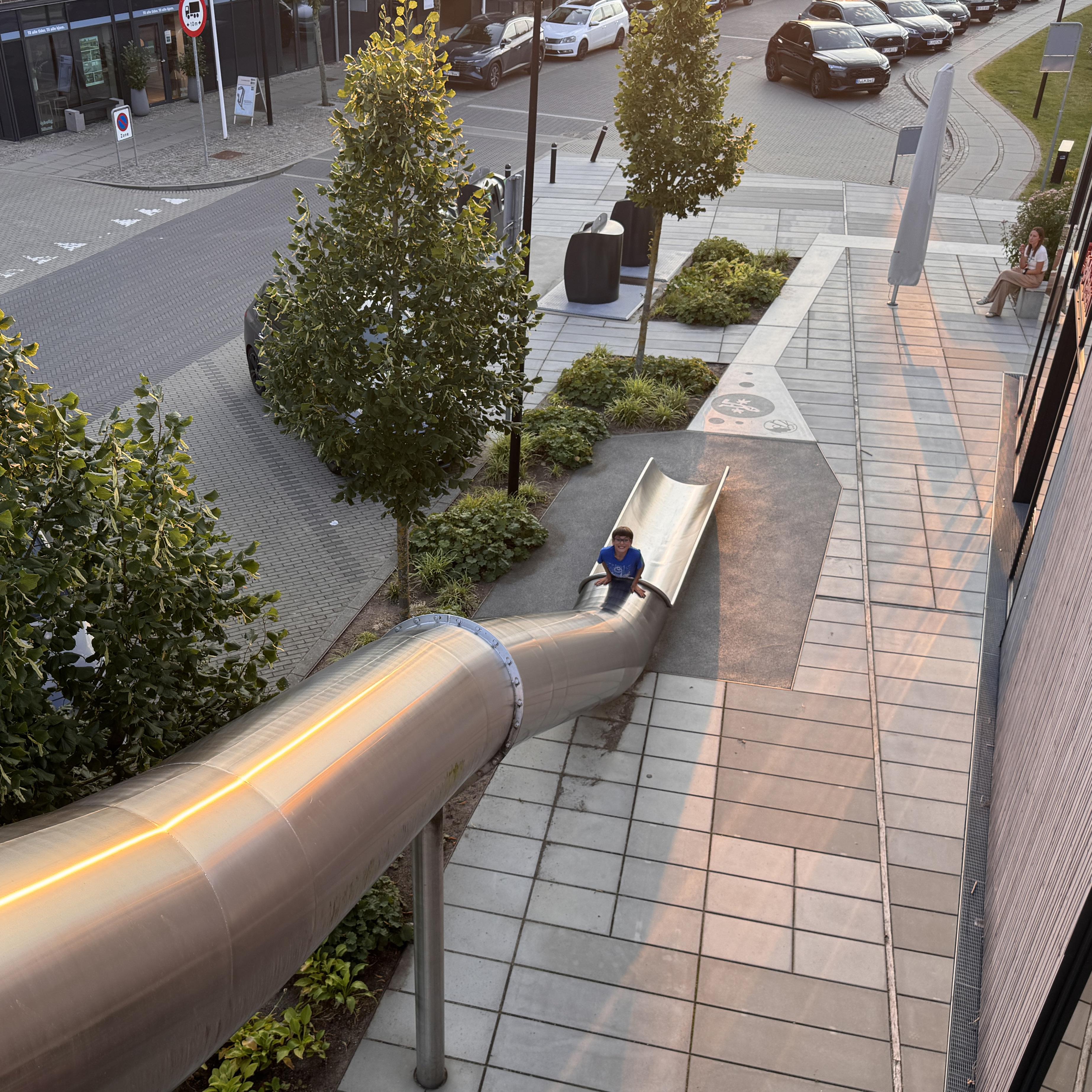
ROOFTOP PLAY INSTALLATION
BILLUND, DENMARK
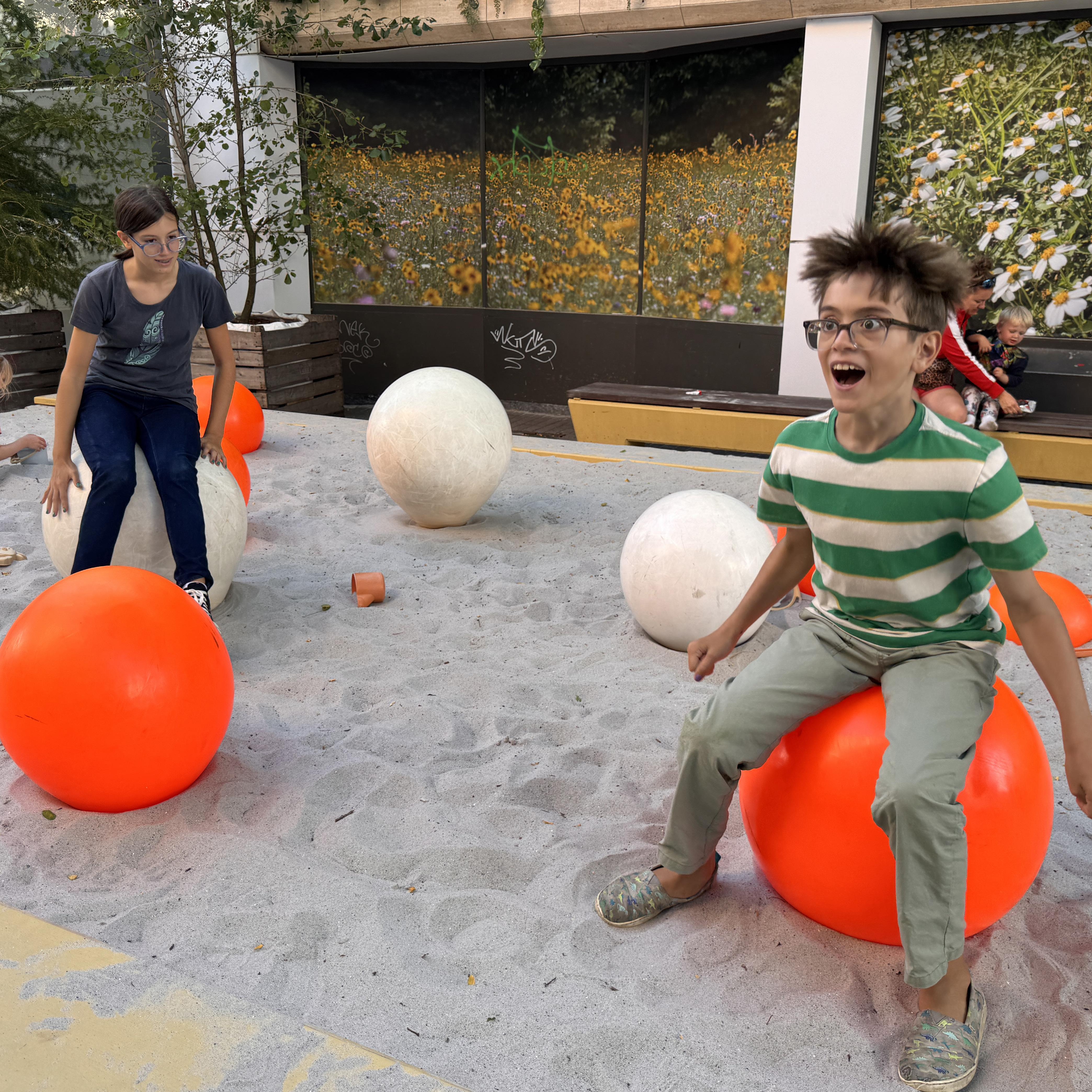
COVER
Rooftop Play Installation, Billund, Denmark, Photo Credit: Studio Ludo
PAGE 2
Pencoyd Landing, Philadelphia, PA, Photo Credit: Studio Ludo
PAGE 5
Rooftop Play Installation, Billund, Denmark, Photo Credit: Studio Ludo
PAGE 6
Hallgrímskirkja, Reykjavik, Iceland, Photo Credit: Studio Ludo
PAGE 9
Top Center - Street Play Installation, Odense, Denmark, Photo Credit: Studio Ludo
Top Right – South Park, San Francisco, CA, Photo Credit: Studio Ludo
Center Left – Pleasure Gardens Play Areas, Queen Elizabeth Olympic Park, London, UK, Photo Credit: Studio Ludo
Center – Southbank, London, UK, Photo Credit: Studio Ludo
Lower Left – Les Petits Bateaux de Tuileries, Paris, France, Photo Credit: Studio Ludo
Lower Right – Crown Fountain, Chicago, IL, Photo Credit: Studio Ludo
PAGE 10
Top Left – Les Berges de La Seine, Paris, France, Photo Credit: Studio Ludo
Top Right – Temporary Play Installation, Bath Spa Station, Bath, UK, Photo Credit: Studio Ludo
Center – Mountain Lake Playground, San Francisco, CA, Photo Credit: Studio Ludo
Center Right – Christiansborg Slot, Copenhagen, Denmark, Photo Credit: Studio Ludo
Lower Left – Clissold Park Playground, London, UK, Photo Credit: Studio Ludo
Lower Center – Childs Elementary School Playground, Philadelphia, PA, Photo Credit: Studio Ludo
PAGE 11
Lego House, Billund, Denmark, Photo Credit: Studio Ludo
PAGE 13
Top Left – Princess Diana Memorial Fountain, London, UK, Photo Credit: Studio Ludo
Top Center - Anna C Verna Playground at FDR Park, Philadelphia PA, Photo Credit: Sahar Coston-Hardy Center – Victoria and Alexandra Playground, Victoria Park, London, UK, Photo Credit: Studio Ludo
Center Right – St. James’s Park Playground, London, UK, Photo Credit: Studio Ludo
Lower Left – Hauser Plads Playground, Copenhagen, Denmark, Photo Credit: Studio Ludo
Lower Right –Exploration Park, Houston, TX, Photo Credit: Studio Ludo
PAGE 14
Top Center – Great Adventure Playground at Smale Riverfront Park, Cincinnati, OH, Photo Credit: Studio Ludo
Top Right – The Hills, Governors Island, New York, NY Photo Credit: Studio Ludo
Center Left - Moorestown Friends School, Moorestown NJ, Photo Credit: Peter Chollick
Center – Tumbling Bay Playground at Queen Elizabeth Olympic Park, London, UK, Photo Credit: Studio Ludo
Lower Left – Tumbling Bay Playground at Queen Elizabeth Olympic Park, London, UK, Photo Credit: Studio Ludo
Lower Right – Levy Park, Houston, TX, Photo Credit: Studio Ludo
PAGE 15
Marylebone Green Playground, London, UK, Photo Credit: Studio Ludo
PAGE 17
Top Left – Lego House, Billund, Denmark Photo Credit: Studio Ludo
Top Right – Helen Diller Playground, San Francisco, CA Photo Credit: Studio Ludo
Center – McKinley Park Tot Lot, Lansdowne PA, Photo Credit: Studio Ludo
Center Right – LEGO Campus, Billund, Denmark, Photo Credit: Studio Ludo
Lower Left – St. James’s Park Playground, London, UK,, Photo Credit: Studio Ludo
Lower Center – Artists at Play Playground, Seattle, WA, Photo Credit: Studio Ludo
PAGE 18
Top Left – Rainbow Lake Playground, Memphis, TN, Photo Credit: Studio Ludo
Top Center – “Olympic Iliad”, Kerry Park, Seattle, WA, Photo Credit: Studio Ludo
Center – Jenks Elementary School, Philadelphia PA, Photo Credit: Studio Ludo
Center Right – Boeddeker Park, San Francisco, CA, Photo Credit: Studio Ludo
Lower Left – Edith Durham School Street, Tirana, Albania, Photo Credit: Studio Ludo
Lower Right – Street Play Installation, Odense, Denmark, Photo Credit: Studio Ludo
PAGE 19
Boeddeker Park, San Francisco, CA, Photo Credit: Studio Ludo
PAGE 21
Top Center – BLOX Playground, Copenhagen, Denmark, Photo Credit: Studio Ludo
Top Right – The Hills, Governors Island, New York, NY, Photo Credit: Studio Ludo
Center Left – Street Play Installation, Amsterdam, Netherlands, Photo Credit: Studio Ludo
Center – Impulse Seesaws, Calgary, Canada, Photo Credit: Studio Ludo
Lower Left – Hoboken ResilienCity Park, Hoboken NJ, Photo Credit: OLIN
Lower Right – Rooftop Play Installation, Billund, Denmark, Photo Credit: Studio Ludo
PAGE 22
Top Left – Temporary Street Installation, Bratislava, Slovakia, Photo Credit: Studio Ludo
Top Right – Fælledparken Playground, Copenhagen, Denmark, Photo Credit: Studio Ludo
Center – Rooftop Play Installation, Billund, Denmark, Photo Credit: Studio Ludo
Center Right – Museumplein Play Installation, Amsterdam, Netherlands,, Photo Credit: Studio Ludo
Lower Left – Telus Spark Science Centre Brainasium, Calgary, Canada, Photo Credit: Studio Ludo
Lower Center – Museumplein Play Installation, Amsterdam, Netherlands,, Photo Credit: Studio Ludo
PAGE 23
Rooftop Play Installation, Billund, Denmark, Photo Credit: Studio Ludo
PAGE 24
Temporary Blomsterfestival Installation, Odense, Denmark, Photo Credit: Studio Ludo
PAGE 27
Wheaton Regional Park, Montgomery County, MD, Photo Credit: Studio Ludo
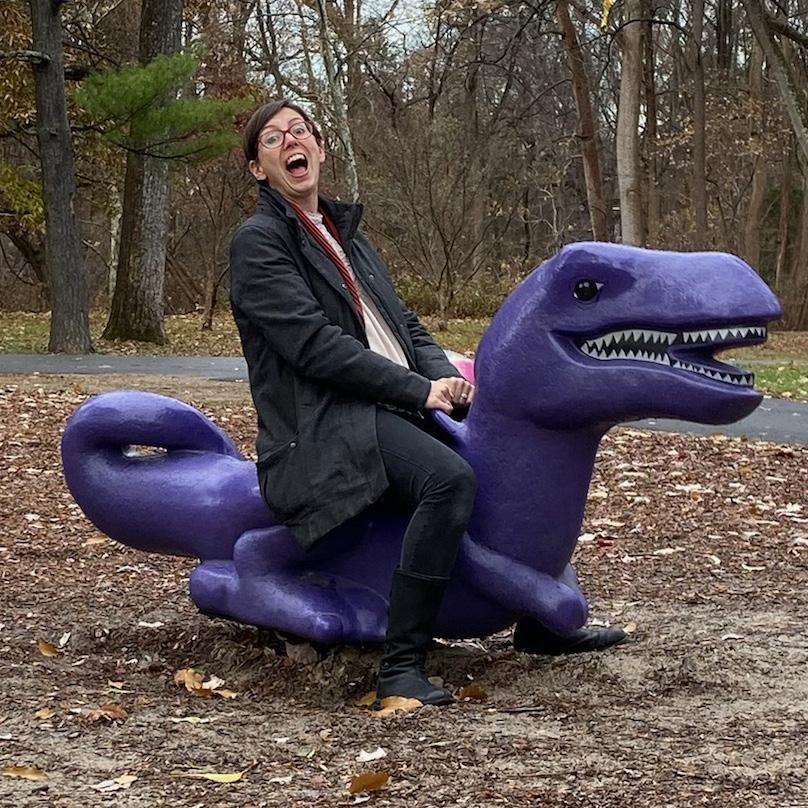
WHEATON REGIONAL PARK
MONTGOMERY COUNTY, MARYLAND
National Study of Playgrounds: The Influence of Design on Use and Physical Activity, in 60 Playgrounds in 10 US Cities, ISSUU, 2022. Studio Ludo, Cohen D, Talarowski M, Han B, Williamson S, Galfond E, Young D, Eng S, McKenzie T.
Playground Design and Physical Activity, American Journal of Preventive Medicine, 2022. Cohen D, Talarowski M, Han B, Williamson S, Galfond E, Young D, Eng S, McKenzie T.
Innovative Playgrounds: Use, Physical Activity and Implications for Health, Public Health, 2019. Talarowski M, Cohen DA, Williamson S, Han B.
The First National Study of Neighborhood Parks: Implications for Physical Activity, American Journal of Preventive Medicine, 2016. Cohen D, Han B, Nagel C, Harnik P, McKenzie T, Evenson K, Marsh T, Williamson S, Vaughan C, Katta S.
Playground Design: Contribution to Duration of Stay and Implications for Physical Activity, Environmental Research and Public Health, 2023. Cohen D, Talarowski M, Han B, Williamson S, Galfond E, Young D, Eng S, McKenzie T.
Playground Locations and Patterns of Use, Journal of Urban Health, 2023. Young D, McKenzie T, Eng S, Talarowski M, Han B, Williamson S, Galfond E, Cohen D.
United Nations, Department of Economic and Social Affairs, Population Division (2019). World Urbanization Prospects: The 2018 Revision (ST/ESA/SER.A/420). New York: United Nations.
“The Theory of Affordances” The Ecological Approach to Visual Perception, Boston: Houghton Mifflin, 1979. Gibson, James J.
Using the Theory of Affordances to Understand Environment–Play Transactions: Environmental Taxonomy of Outdoor Play Space Features—A Scoping Review, The American Journal of Occupational Therapy, 2024, Thomas Morgenthaler; Helen Lynch; Janet Loebach; Duncan Pentland; Christina Schulze
